Nomadic Matt's Travel Site
Travel Better, Cheaper, Longer

Brazil Travel Guide
Last Updated: August 30, 2023
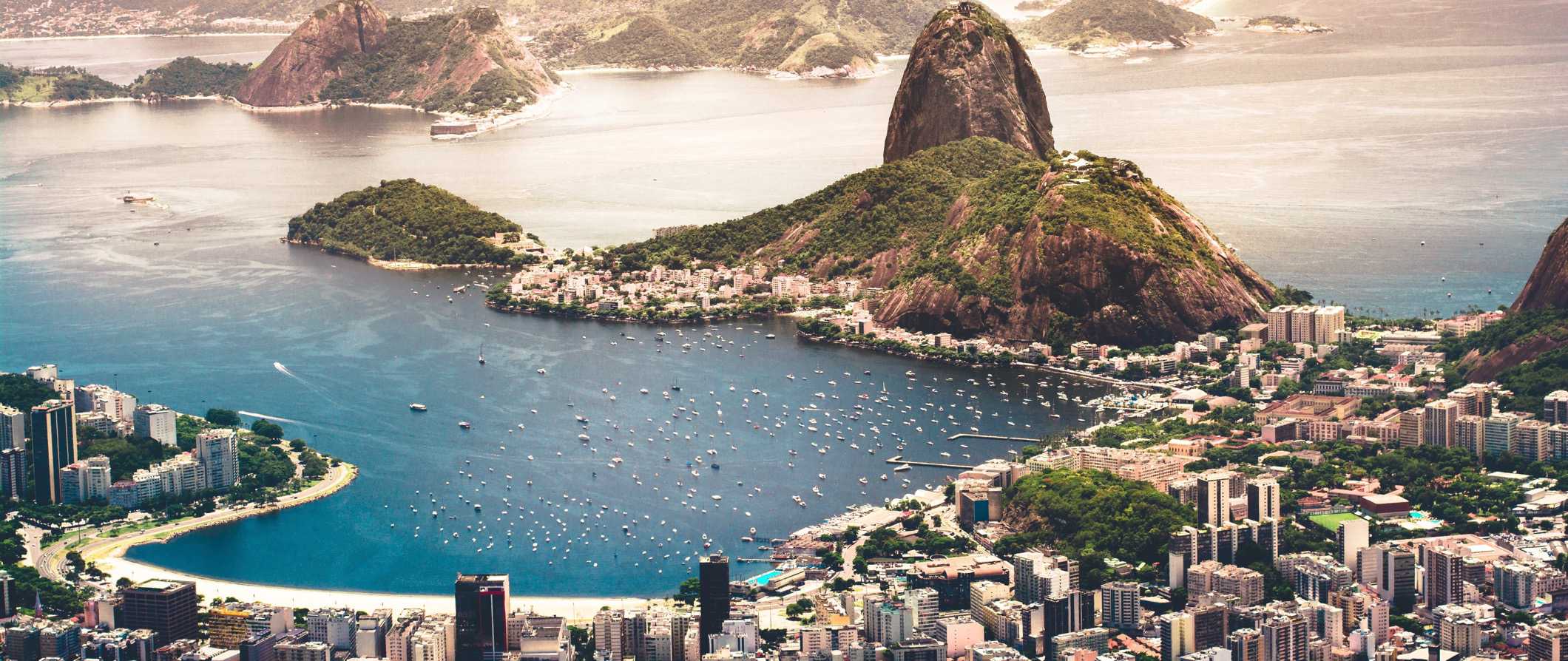
Brazil is impossible to summarize in just a few paragraphs. It’s the largest country in South America and home to cosmopolitan cities like Rio de Janeiro and its Wonder of the World Christ the Redeemer statue, the rambunctious and world-famous Carnival, the Amazon River and rainforest, and an abundance of lush and untamed nature.
Brazil has more plant and animal species than anywhere else in the world, making it a paradise for travelers who love the outdoors. It’s also home to the towering and awe-inspiring Iguazú Falls.
In other words, you’re going to need longer than a week to visit this massive, diverse country.
Meet the locals at Copacabana Beach in Rio or spend an evening learning how to dance the samba. Cruise the wetlands of the Pantanal or the Amazon River while keeping an eye out for exotic wildlife like toucans and pink dolphins. Gorge on a barbecue feast, and cool off with caipirinha , Brazil’s official cocktail of sugarcane liquor, sugar, and lime.
Throw in passionate fútbol (soccer) matches, beautiful people, and low prices, and it’s easy to see why Brazil is one of the most popular destinations in the world.
This travel guide to Brazil will help you plan your trip, save money, stay safe, and make the most of your time in this amazing country.
Table of Contents
- Things to See and Do
- Typical Costs
- Suggested Budget
- Money-Saving Tips
- Where to Stay
- How to Get Around
- How to Stay Safe
- Best Places to Book Your Trip
- Related Blogs on Brazil
Click Here for City Guides
Top 5 things to see and do in brazil.
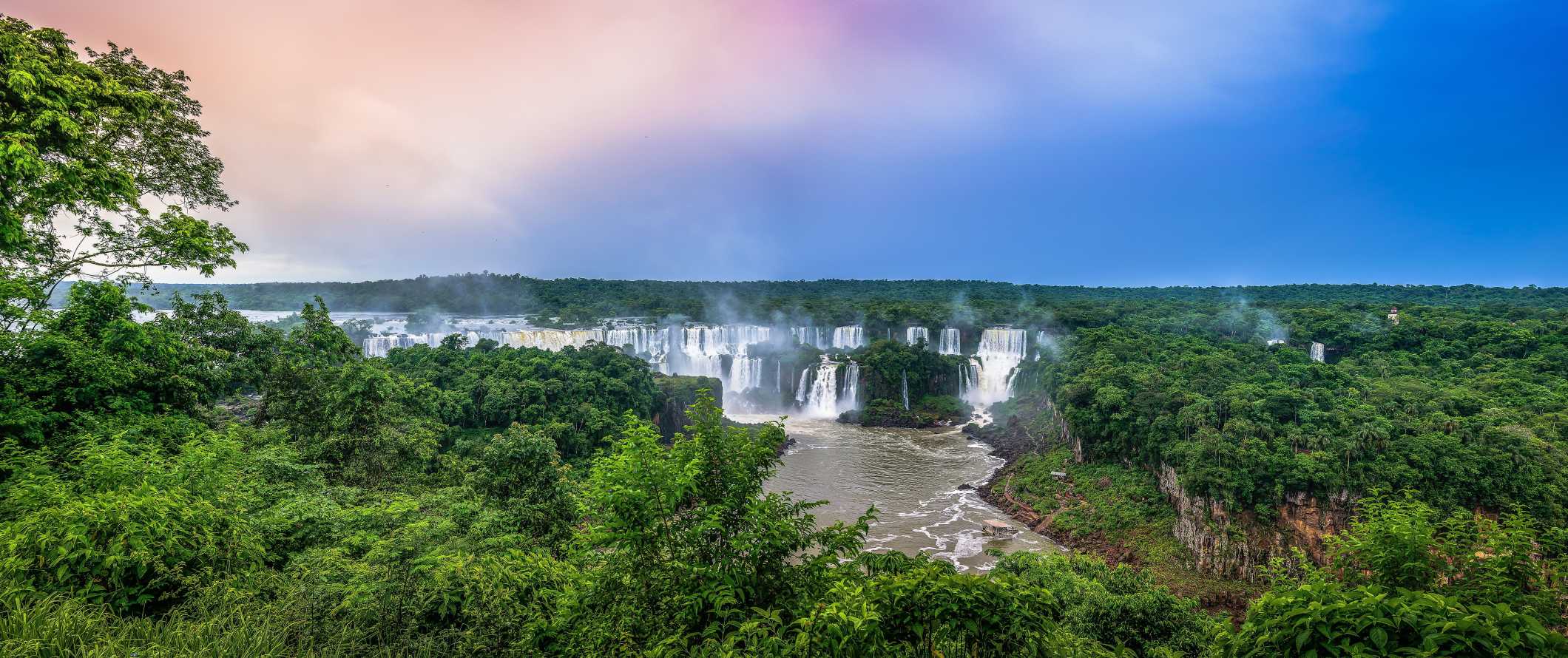
1. Visit Rio de Janeiro
Home to over 12 million people, Rio de Janeiro has dozens of museums, the world-famous sandy beaches of Copacabana and Ipanema, countless party spots, the towering Christ the Redeemer statue (a New Wonder of the World), Sugarloaf Mountain, Tijuca National Park (the largest urban rainforest in the world) right in the city’s backyard, and so much more. No visit to Brazil is complete without a stop here. It’s fun personified, especially if you come during Carnival!
2. Visit Florianópolis
Florianópolis is one of Brazil’s most popular coastal cities, (especially for surfers taking advantage of big waves). Brazilians love to vacation here, and it’s a big spot for backpackers too, thanks to its powdery beaches, cheap seafood, fantastic hiking, and awesome nightlife. Come here to party, lounge, hike, and enjoy the sunshine!
3. Spend time in the Amazon
The Amazon covers 8% of the earth’s surface and is home to 50% of its biodiversity. There are so many ways to experience it: take a jungle cruise down the Amazon River, do a guided multi-day trek , or join a wildlife tour. You can also visit indigenous communities and learn how they live in such a unique place.
4. Go to Fernando de Noronha
Fernando de Noronha was Brazil’s first national marine park and a UNESCO World Heritage Site. The sandy beaches with turquoise waters and excellent snorkeling (there are lots of dolphins here) will take your breath away. 70% of the island is protected, and less than 500 people are permitted at a time, meaning the island is largely empty. It’s one of the most gorgeous places in South America, though be prepared to pay for it in higher accommodation and food costs, as well as a daily visitor tax (87 BRL per day, plus a 330 BRL 10-day visitor pass).
5. See Iguazú Falls
Other things to see and do in brazil, 1. attend a fútbol match in rio.
Fútbol (soccer) is a religion here, and the chaos and excitement during a match are contagious! Maracanã in Rio de Janeiro is one of the largest stadiums in the world, and it seats 100,000 supporters. The best games are the local teams (Flamengo, Vasco, Botafogo, and Fluminese) because you’re guaranteed a game full of singing, cheering, and insult-slinging. You can buy tickets through the teams’ websites or the FutebolCard site. Tickets can be as low as 20 BRL. To learn even more about the sport and stadium, you can take a stadium tour for 77 BRL.
2. Enjoy Rio Carnival
The Rio Carnival is an epic festival of music, samba, and revelers dressed in elaborate, colorful regalia as they take to the streets by the thousands. It’s one of the biggest celebrations in the world (2 million people hit the streets every day during Carnival). The entire celebration is one last hurrah before the start of Lent’s quiet period. Prices for accommodations triple during Carnival (held every February) so be sure to book far in advance for the best deals. You can reserve your 2024 Carnival tickets in advance here (highly recommended – they sell out quickly)!
3. Visit Brasilia
Brasilia is the often-overlooked capital of Brazil. This futuristic city was established in 1960 and is a hub for modernist architecture, including the National Congress, with its odd bowl-shaped structures, and Santuário Dom Bosco church which boasts long, narrow windows made of blue-colored Murano glass that represents a starry sky. Visit the 60,000-acre Parque Nacional de Brasilia and walk the trails between tall Cerrado trees while looking for wildlife like anteaters and pampas deer.
4. Explore the Pantanal
Located in Western Brazil, the Pantanal is the largest wetland in the world, stretching into parts of Bolivia and Paraguay. Over 11,000 species of animal live here, including the rare marsh deer, the giant anteater, and the hyacinth macaw. The two main access points are Cuiabá and Campo Grande. I recommend the latter as it tends to offer more affordable accommodations and tour options. Most wildlife and sightseeing tours are multi-day and cost a minimum of about 1,325 BRL per day.
5. Relax in Recife
Located on the eastern tip of the country, Recife is the place to be if you want to relax and enjoy some of Brazil’s scenic beaches. Boa Viagem, the 7-kilometer (4-mile) stretch of sand between Pina to Piedade, is very developed with cabanas and sun chairs for rent. Piedade is equally as beautiful but less touristy, lined with restaurants and bars where the locals hang out. For an even more low-key beach area, head south to Porto de Galinhas, where the beach is virtually empty.
6. Visit Salvador
Salvador was Brazil’s first capital city, and today it remains the country’s cultural capital, thanks to its vibrant Afro-Brazilian community. Located down the coast from Recife, Nosso Senhor do Bonfim is a perfect example of this community’s unique spirit: it’s a church that peacefully combines Catholicism and Candomblé (a religion originating from West Africa). Furthermore, the pastel-painted colonial buildings and cobblestone scenes of the Pelourinho neighborhood are extremely photogenic, and if you stay in this area, you’ll have easy access to shopping, restaurants, bars, and live music. Local tour operator Your Tour Brazil offers many different tours to help you dig deeper into Salvador’s culture, including their African Heritage & Acarajé Tasting tour .
7. See São Paulo
São Paulo, the fourth-largest city in the world and the largest in South America, is home to over 23 million people. This sprawling metropolis is for anyone who loves wild nightlife, great museums, interesting street art, live samba music, and fine dining. Every area is like its own micro-city and it’s a completely different vibe than Rio (taking a walking tour is one of the best way to get a handle on this gigantic city). São Paulo also has a flourishing art community, which you can discover through its many experimental theaters and art-house cinemas (including CineSala, an independent street theater founded in 1959).
8. Try capoeira
Capoeira is a combination of dance, music, and martial arts created nearly 500 years ago by enslaved West Africans to disguise their combat training. It kind of looks like breakdancing, emphasizing flow over specific stances. In Brazil’s larger cities you can sign up for intro classes, including in Rio de Janeiro, where classes start from 70 BRL. Angola N’Golo is an affordable school to check out.
9. Unplug in Ilha Grande
You’d never know from the look of it that the tropical island paradise of Ilha Grande was once a pirate’s hideout, a leper colony, and a high-security prison. Nowadays people (especially locals from nearby Rio) come here on the weekends to hang out on the pristine beaches, like Aventura Beach and Palmas Cove. There are a handful of hostels and accommodations here, but mostly the island is made up of undeveloped jungles and beaches. Come here to lounge, disconnect, and chill out.
10. Visit Ouro Preto
Ouro Preto, a 17th-century colonial town, is one of Brazil’s most picturesque towns for its brightly painted houses, Baroque churches, and large leafy plazas. Located around 400 kilometers (250 miles) north of Rio, Ouro Preto sits in a valley at the foot of the Serra do Espinhaco, and up in the hills surrounding the town are 23 churches you can hike to visit.
11. Learn samba
Samba is a musical genre and dance born in Rio de Janeiro’s Afro-Brazilian communities in the early 20th century. Today, it’s an important Brazilian cultural symbol, but Rio remains one of the best places in Brazil to learn how to dance. Rio Samba Dancer is my favorite for its all-levels group classes, especially for the classes combined with social outings to samba clubs. Classes start from about 105 BRL.
12. Admire the Azorean fishing villages
Brazil has 7,400 kilometers (4,500 miles) of coastline with many historic fishing villages to explore. Florianópolis has a number of particularly beautiful ones, including Santo Antonio de Lisboa and Ribeirão da Ilha, where you can indulge in delectable oyster and seafood dishes and enjoy secluded beaches, cobbled streets, and jellybean-colored houses. Sights in Ribeirão da Ilha include the Acoriano Casario Church and museum Ecomuseu do Ribeirão da Ilha, where you can learn more about the natural and Azorean cultural history of the area. Museum admission is 5 BRL.
13. Hike in Tijuca National Park
Tijuca National Park is the largest urban rainforest in the world, stretching across 8,300 acres. The area is home to over 350 different species of mammals, birds, and reptiles, including howler monkeys, which only came back to the park recently after a 100-year hiatus. The Corcovado (Christo) hike through Parque Lage to the top of Corcovado is a steep climb, but it’s shaded and only takes about three hours. Another scenic hike is to Tijuca Peak, starting in Rio’s North Zone and going past waterfalls and through dense rainforest. This hike only takes about two hours, and you’ll be rewarded with views over Niteroi and Guanabara Bay. Entrance to the park is free. This is a place where it’s really worth it to go with a tour though. You’ll not only have a more in-depth experience, learning history of the rainforest as well as how to recognize native flora and fauna, but get round-trip transportation to/from your accommodation as well. There are tons of tours available, from the popular jeep tours to full-day adventure hikes that go to lesser visited sections of the rainforest.
14. Visit Paraty
This incredibly well-preserved Portuguese colonial town and UNESCO World Heritige site is located almost halfway between São Paulo and Rio, making it an excellent place to stop and unwind for a few days as you travel between Brazil’s two largest cities. The picturesque cobblestone-lined streets of the 16th-century town are lined with handicraft shops, bars with live music every night, and great restaurants (go to family-run Vinicius for a superb homecooked meal). Located on Brazil’s Costa Verde (Green Coast), there’s a lot of adventure activities to be had here too, including jungle tours of the Atlantic Forest (usually with stops to visit historic cachaca distilleries, as the area is famous for brewing Brazil’s most popular spirit), and boat tours with snorkeling and beach stops. You’ll be able to see and enjoy all the main things to do in about three days here.
For more information on specific cities in Brazil, check out these guides:
- Fernando de Noronha Travel Guide
- Florianópolis Travel Guide
- Sao Paulo Travel Guide
- Rio de Janeiro Travel Guide
Brazil Travel Costs
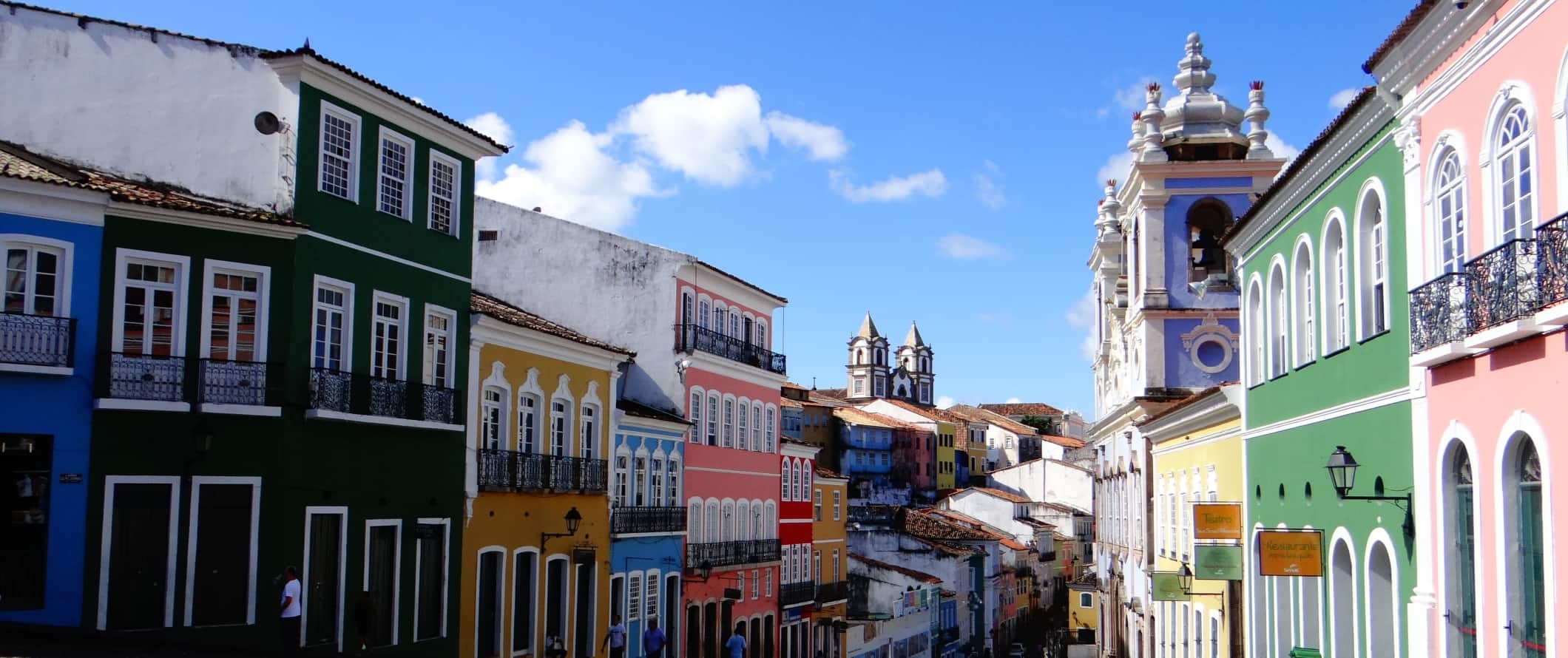
Accommodation – Brazil is a huge country (it’s the 7th-largest in the world) and accommodation prices fluctuate from city to city and from season to season (with huge increases during Carnival). Prices in places like Rio de Janeiro and Salvador are pretty consistent, but for beachy destinations like Florianópolis, prices change dramatically depending on the time of year.
A 4-6 person dorm costs about 75-85 BRL per night, while a bed in a 8-10 person dorm costs 60-70 BRL. More remote places like Fernando de Noronha have higher prices, with dorms costing up to 150 BRL per night.
A private double room in a hostel costs about 225-300 BRL, but sometimes you can find rooms for as low as 150 BRL per night.
A budget two-star hotel room in the center of town costs 200-300 BRL per night with air-conditioning and breakfast included. If you’re willing to leave the city center, you can sometimes find rooms for as low as 150 BRL per night.
Airbnb is another great budget option, with private rooms averaging around 100-150 BRL per night, while entire apartments or homes start around 275 BRL.
Campgrounds are plentiful by the beaches and national parks. Expect to pay around 40-70 BRL per night for a basic plot. Amenities generally include free Wi-Fi, bathroom facilities including hot showers, and charging stations.
Food – Brazilian cuisine — like the country itself — is a mix of many cultures, with European, Amerindian, African, and Japanese influences. As such a large country, food varies per region, with seafood plentiful on the coastlines and Brazilian barbeque dominating in the south. Rice and beans are a staple no matter where you are.
Common vegetables include tubers like cassava and yams, tomatoes, red peppers, okra, and more. Being a subtropical country, there’s a huge variety of fruits, with the most famous being the superfood açaí, though cupuaçu, mango, papaya, guava, orange, passion fruit, and pineapple are all common as well.
Feijoada , Brazil’s national dish, is a meaty bean stew that is traditionally eaten for Wednesday or Saturday lunch. Other popular dishes include moqueca (fish stew), polenta, and vatapá (a stew of bread, shrimp, coconut milk, and peanuts) among countless others.
Some popular street food snacks include pão de queijo (cheese bread rolls), acarajé (black eyed pea and shrimp fritters), coxinha (chicken croquettes), and pastéis (savory fried pies with assorted fillings).
All of this is to say that Brazil has such a variety of food and flavors that you never have to go far to find an affordable meal.
Street food like pastel (a deep-fried pastry with filling) or coxinha costs around 8-10 BRL. An açaí (served pureed and frozen, with toppings you can choose from) from a street stand or takeaway spot is 15-20 BRL. A sandwich and drink at a juice bar should be no more than 35-40 BRL, while a combo meal at a fast-food restaurant (think McDonald’s) is around 30-35 BRL. A meal at a Chinese takeout restaurant costs about the same, at 35 BRL for a dish like fried rice. Burgers cost 25-30 BRL and pizzas are around 50-60 BRL.
Buffets, where you pay by weight, are very common throughout Brazil. You usually pay around 65-80 BRL per kilo.
A meal at an inexpensive restaurant serving typical Brazilian dishes costs about 20-40 BRL, depending on the region and city. A meal with two courses at a casual restaurant starts from 60 BRL, though prices at restaurants along the beach can go much higher, often starting at 80 BRL for a dish.
If you want to splash out, a three-course meal at a mid-range restaurant costs about 150-180 BRL, but you can expect to pay nearly double this price at some places in Rio de Janeiro or São Paulo.
Dishes at higher-end seafood restaurants cost 150-225 BRL and up. At many restaurants in coastal areas, seafood dishes and platters are meant for two (often served with an entire fish) – it’s a huge portion of food that could easily be split between three people.
A domestic beer costs about 10-15 BRL, while a cocktail is 15-25 BRL. Wine is expensive (and not very good) in Brazil, so expect to pay at least 15-20 BRL per glass. A soda or juice is 5-8 BRL, and a cappuccino is 9-11 BRL.
Grocery shopping costs about 100-200 BRL per week for basic staples like fresh veggies, pasta, rice, and some meat or fish.
Backpacking Brazil Suggested Budgets
If you are backpacking Rio de Janeiro, expect to spend about 215 BRL per day. This covers staying in a hostel dorm, eating street food, cooking some of your meals, limiting your drinking, using public transportation to get around, and doing mostly free activities like enjoying the beach and hiking.
On a mid-range budget of about 420 BRL per day, you can stay in a private hostel or Airbnb room, eat out for all your meals at cheap local restaurants, take the occasional taxi to get around, take buses between destinations, enjoy a few drinks, and do more paid activities like surfing or samba lessons.
On a “luxury” budget of about 750 BRL per day or more, you can stay in a hotel, eat out for all your meals, enjoy more drinks, take taxis everywhere, fly between cities, and enjoy all the tours and activities you want. This is just the ground floor for luxury though. The sky is the limit!
If you’re coming during Carnival, expect prices for accommodations and activities to increase significantly (sometimes triple or even quadruple) — especially if you’re booking last minute.
If you’re staying in Fernando de Noronha, budget double the above suggestions.
You can use the chart below to get an idea of how much you need to budget daily, depending on your travel style. Keep in mind these are daily averages – some days you’ll spend more, some days you’ll spend less (you might spend less every day). We just want to give you a general idea of how to make your budget. Prices are in BRL.
Brazil Travel Guide: Money-Saving Tips
Brazil is one of the most expensive countries in South America, but prices depend on where in the country you are and what kind of activities you’re doing. Brazil’s main cities like Rio de Janeiro and Sao Paulo are more expensive than rural areas (unless you’re seeking out less touristy locales, like Fernando do Noronha). Here are some money-saving tips to help you get started:
- Agree on taxi prices – Agree on the price for your journey with the taxi driver before setting off. Many drivers refuse to use their meters and try to rip you off. It’s much better to take a bus most of the time.
- Stay with a local – Couchsurfing connects you with locals who can give you a free place to stay and share their insider tips and advice. It’s the best way to meet locals and save money.
- Visit off-season – December to March is a pretty busy time as people from the Northern hemisphere escape the winter. Try to avoid these dates if you want to keep prices low.
- Skip Carnival – Carnival might be fun, but it’s also super expensive. If you’re on a budget, avoid visiting during Carnival.
- Get an Airpass – If you book your domestic flights in advance, the Airpass can save you money on flights. It’s the cheapest way to fly around the country (more on this below).
- Cook your meals – Eating out here can easily blow your budget so try and stay somewhere with a kitchen so you can do some cooking. It’s not glamorous, but if you live like the locals you’ll save a fortune.
- Pack a water bottle – The tap water here isn’t safe to drink so bring a water bottle with a filter to save money and reduce your single-use plastic usage. My preferred bottle is LifeStraw as it has a built-in filter to ensure your water is always clean and safe.
Where to Stay in Brazil
Hostels are widespread all over Brazil. You’ll also find a ton of B&Bs and cool Airbnbs. Basically, there are a lot of budget options here. My suggested places to stay in Brazil are:
- Joy Hostel (Brasilia)
- Barra Beach Club Oceanfront Hostel (Florianópolis)
- Submarino Hostel (Florianópolis)
- The Search House Beachfront Hostel (Florianópolis)
- Tucano House Summer Hostel (Florianópolis)
- Hostel e Pousada El Shaddai (Iguacu)
- Hostel Bambu (Iguacu)
- Books Hostel (Rio)
- Selina Lapa Rio de Janeiro (Rio)
- Mango Tree Hostel Ipanema (Rio)
- Bamboo Rio Hostel (Rio)
- O de Casa Hostel Bar (São Paulo)
- Hostel Galeria 13 (Salvador)
How to Get Around Brazil
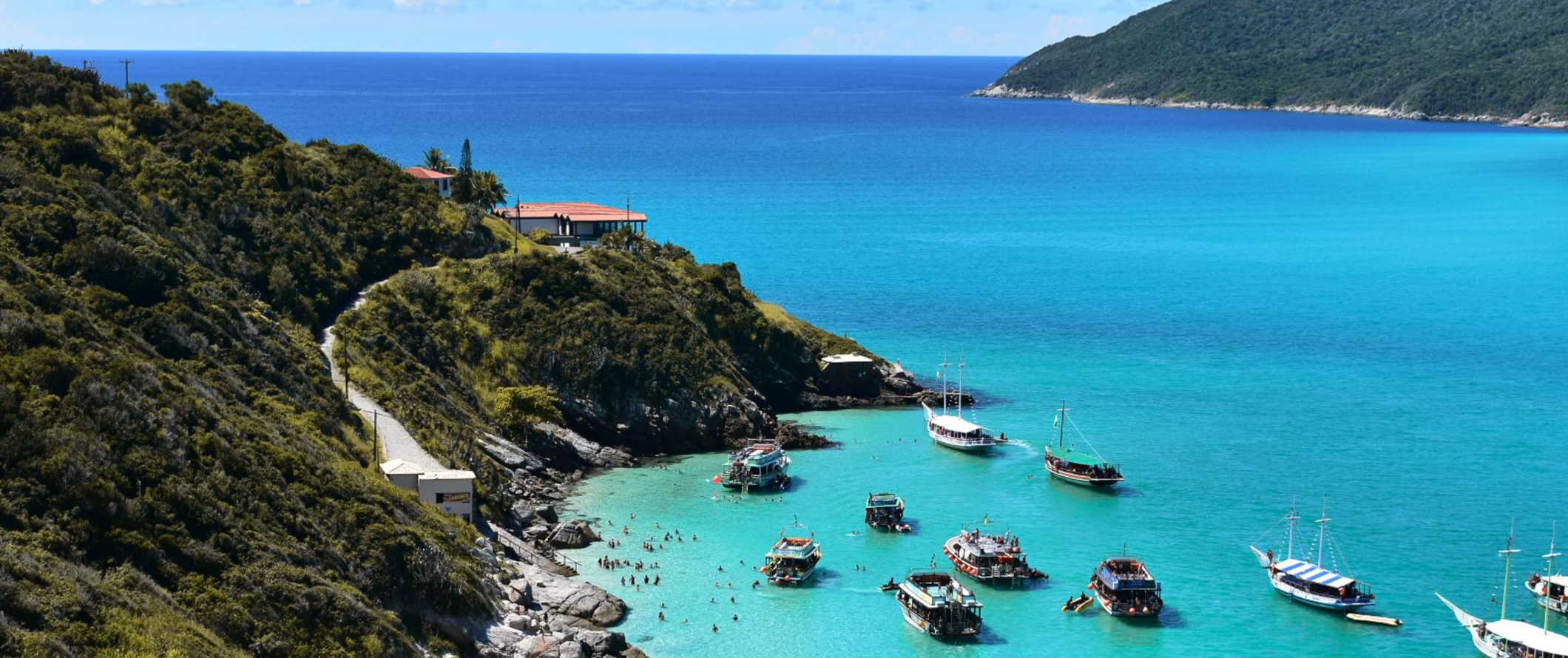
Public transportation – City transportation in Brazil is efficient and modern. Many places (like Rio and São Paulo) have an extensive subway system. Fares cost around 5 BRL per one-way ticket. In most places, you can pick up a multi-day metro card to save money.
Buses are everywhere. A one-way ticket costs about 3-5 BRL, and as with the subway, there are usually multi-day metro cards available.
Taxis – Taxis are recommended in the evening when public transportation may not be as safe. Fares start at 6-8 BRL and then go up to about 3-6 BRL per kilometer. Use an app like 99 (formerly 99Taxis) to ensure you get a licensed taxi. Ridesharing like Uber is also available and common here.
Bus – Long-distance buses are a convenient, economical, and comfortable way to travel in the country. There are hundreds of routes. You can use Brazil Bus Travel to check schedules and book your tickets.
A bus from Rio to São Paulo takes 6.5 hours and costs about 180 BRL, or you can book a sleeper bus with a bed for 420 BRL. Rio to Florianópolis is a 20-hour journey that costs about 520 BRL for a regular seat or 1,050 for a bed.
Train – Train service is limited to the tourist-oriented steam train that offers transport in between São Joao del Rei and Tiradentes. It’s expensive, so I don’t recommend doing this.
Flying – Air travel is useful if you’re trying to get around the country on limited time (especially if you’re traveling between the big cities, or between places like Rio and the Amazon). The country’s major airlines are:
If you’re booking a flight two months in advance from Rio de Janeiro to Manaus (the easiest way to reach the Amazon), you can find airfare for as low as 1,700 BRL (round-trip). Rio to Salvador is about 360 BRL (one-way), while flights between Brasilia and São Paulo can be as little as 155 BRL (one-way).
An Airpass is a practical option if you’re going to take a lot of flights within 30 days (especially if you’re going to the Amazon, which is far and expensive to get to). With GOL you can get a 90-day pass with four domestic flights in its network for 2,600 BRL. Azul offers something similar with four flights within three weeks for the same price. Brol.com can help you find the right pass.
Just keep in mind that you have to book in advance for these passes so this doesn’t allow for flexible travel. You also cannot use these passes during popular time periods, like during Carnival and Christmas/the New Year.
Car rental – Car rentals cost around 65-90 BRL per day for a multi-day rental. However, the road conditions aren’t great here and drivers are aggressive. Moreover, since break-ins and carjackings are common, I’d likely skip the rental here just to be safe.
When to Go to Brazil
Brazil covers such a large territory that the country is broken up into different climate areas. The “coldest” part is in the far south and southeast, with the winter season lasting from June to September. Brazilians will complain about the cold here, but it rarely dips below freezing. The summer months from December to March are hot.
If you’re sticking to Brazil’s coastal areas, the weather is warm year-round. During the winter (December to March), the temperature is always higher than 25°C (77°F). There’s near-constant sunshine, but there is also a rainy season, which lasts from October-January. The rainy season often starts earlier in Salvador and Recife.
The northeast (around the Amazon) is always hot, with temperatures often climbing to 40°C (104°F). There’s no real winter season. In Manaus and the central Amazon, the dry season is from July-October. This period is also the best time to visit wildlife in the Amazon as the water recedes and animals gather at watering holes. The same goes for the Pantanal.
If you come during the Brazilian winter, you’ll find much fewer crowds and lower prices. I consider this the best time to be here, but only if you’re not trying to escape the North American winter.
If you’re super budget-minded, don’t come during February when it’s Carnival and prices skyrocket!
How to Stay Safe in Brazil
Travelers need to be vigilant in Brazil . Pick-pocketing and other petty crimes are common here, especially in Rio. Don’t flash expensive belongings and always keep your phone and wallet secure and out of reach. Don’t bring anything valuable to the beach either. Be sure to lock up your valuables before leaving your accommodation, whether you’re staying in a hostel dorm or in a private hotel/Airbnb room.
Avoid going out alone in the evenings after dark. If you do need to travel at night to get back to your accommodation, take a taxi (use the 99 app to call one) or an Uber.
Solo female travelers will want to exercise caution here. Avoid walking around alone when possible and definitely avoid walking around at night. Always keep an eye on your drink (even when it’s being poured) and never accept drinks from strangers.
Use ATMs inside a bank or have a friend with you to keep an eye out while you withdraw cash.
To learn which scams to be on the lookout for, read about this post about common travel scams .
Carjacking and break-ins are common, so I’d probably avoid renting here just to be safe.
When hiking, always bring a lot of water and sunscreen. Be sure to check the weather before you depart and dress accordingly. Don’t pick fruit off a tree and eat it without knowing what it is (it might be poisonous). There is also a risk of the Zika virus and/or Malaria in certain areas. Carry bug spray and use it often.
Always trust your gut instinct. Make copies of your personal documents, including your passport and ID. Forward your itinerary along to loved ones so they’ll know where you are.
If you experience an emergency, dial 190 for assistance.
For more in-depth coverage of how to stay safe in Brazil, check out this post that answers some frequently asked questions and concerns.
The most important piece of advice I can offer is to purchase good travel insurance. Travel insurance will protect you against illness, injury, theft, and cancellations. It’s comprehensive protection in case anything goes wrong. I never go on a trip without it as I’ve had to use it many times in the past.
Brazil Travel Guide: The Best Booking Resources
These are my favorite companies to use when I travel. They consistently have the best deals, offer world-class customer service and great value, and overall, are better than their competitors. They are the companies I use the most and are always the starting point in my search for travel deals.
- Skyscanner – Skyscanner is my favorite flight search engine. They search small websites and budget airlines that larger search sites tend to miss. They are hands down the number one place to start.
- Hostelworld – This is the best hostel accommodation site out there with the largest inventory, best search interface, and widest availability.
- Booking.com – The best all around booking site that constantly provides the cheapest and lowest rates. They have the widest selection of budget accommodation. In all my tests, they’ve always had the cheapest rates out of all the booking websites.
- Get Your Guide – Get Your Guide is a huge online marketplace for tours and excursions. They have tons of tour options available in cities all around the world, including everything from cooking classes, walking tours, street art lessons, and more!
- SafetyWing – Safety Wing offers convenient and affordable plans tailored to digital nomads and long-term travelers. They have cheap monthly plans, great customer service, and an easy-to-use claims process that makes it perfect for those on the road.
- LifeStraw – My go-to company for reusable water bottles with built-in filters so you can ensure your drinking water is always clean and safe.
- Unbound Merino – They make lightweight, durable, easy-to-clean travel clothing.
- Top Travel Credit Cards – Points are the best way to cut down travel expenses. Here’s my favorite point earning credit cards so you can get free travel!
Brazil Travel Guide: Related Articles
Want more info? Check out all the articles I’ve written on backpacking/traveling Brazil and continue planning your trip:
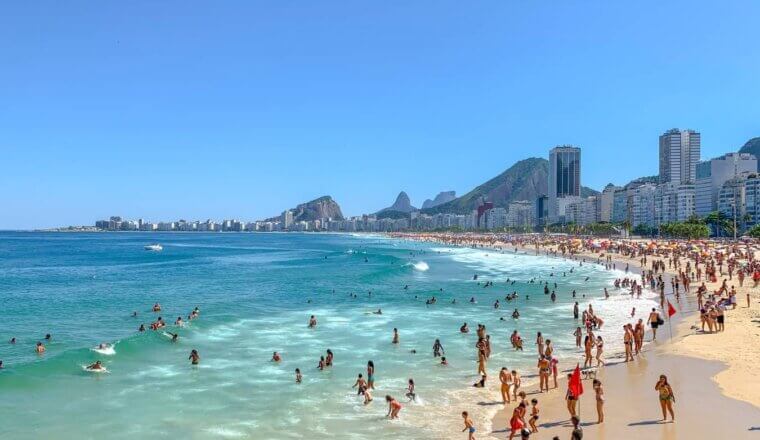
The 6 Best Hostels in Rio de Janeiro
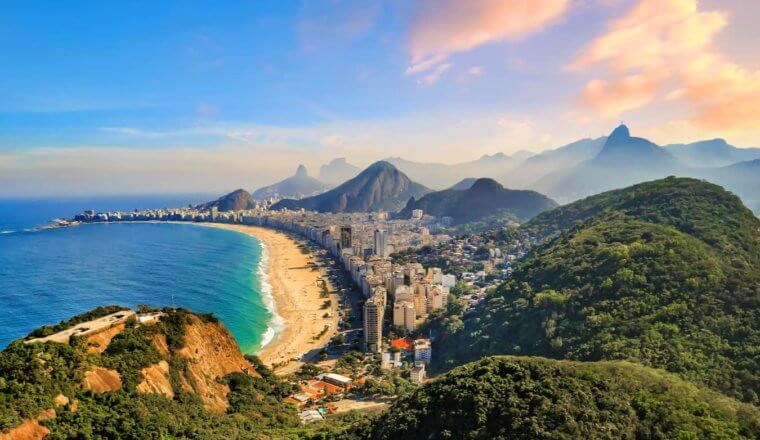
Is Brazil Safe to Visit?
Get my best stuff sent straight to you, pin it on pinterest.
- Where To Stay
- Transportation
- Booking Resources
- Related Blogs
Cost of a Trip to Brazil & the Cheapest Time to Visit Brazil
The average price of a 7-day trip to Brazil is $1,488 for a solo traveler, $2,637 for a couple, and $1,076 for a family of 4 . Brazil hotels range from $36 to $182 per night with an average of $56, while most vacation rentals will cost $60 to $430 per night for the entire home. Average worldwide flight costs to Brazil (from all airports) are between $1,021 and $1,602 per person for economy flights and $3,206 to $5,030 for first class. Depending on activities, we recommend budgeting $29 to $59 per person per day for transportation and enjoying local restaurants.
See below for average , budget , and luxury trip costs. You can also look up flight costs from your airport for more tailored flight pricing.
The Cheapest Times to Visit Brazil
On average, these will be the cheapest dates to fly to Brazil and stay in a Brazil hotel:
- January 29th to February 11th
- March 5th to April 1st
- May 14th to June 3rd
- August 6th to December 2nd
The absolute cheapest time to take a vacation in Brazil is usually early September .
Average Brazil Trip Costs
Average solo traveler.
The average cost for one person to visit Brazil for a week is $1,018-$2,243 ($145-$320 per day)
Food, Travel, and Sightseeing : $29 to $59 per day for one person’s daily expenses
Flights : $545 to $1,416 for economy
Lodging : $45 to $61 per night for one 2 or 3-star hotel room
or $57 to $69 per night for a 1-bed vacation rental
Average Couple’s Trip
The average cost for a couple to visit Brazil for a week is $1,760-$4,078 ($251-$583 per day)
Food, Travel, and Sightseeing : $57 to $119 per day for two people’s daily expenses
Flights : $1,091 to $2,831 for economy
Average Family Vacation
The average cost for 4 people to visit Brazil for a week is $3,496-$8,061 ($499-$1,152 per day)
Food, Travel, and Sightseeing : $115 to $238 per day for four people’s daily expenses
Flights : $2,181 to $5,663 for economy
Lodging : $89 to $122 per night for two 2 or 3-star hotel rooms
or $85 to $104 per night for a 2-bed vacation rental
Traveling Cheap to Brazil
How cheap can you make a vacation to Brazil? The cheapest trip to Brazil is about $118 per person per day for travelers willing to take standby flights, deal with inconvenience, and otherwise limit travel expenses. About 21% of rentals are available in the $0 to $100 range for an entire place, and vacation rentals can be booked for as low as $16 per night. These inexpensive rentals must be booked as early as possible and may not be in the most desirable areas. 1-star hotels are more likely to be available, with rooms starting at around $31.
Even cheaper trips are possible depending on where you live and whether you can drive. Check the cheapest times to fly for more saving ideas.
Budget Solo Traveler
The lowest cost for one person to visit Brazil for a week is $829-$1,997 ($118-$285 per day)
Food, Travel, and Sightseeing : $14 to $29 per day for one person’s daily expenses
Lodging : $31 to $36 per night for one 1-star hotel room
or $33 to $63 per night for a 1-bed vacation rental
Budget Couple’s Trip
The lowest cost for a couple to visit Brazil for a week is $1,480-$3,615 ($211-$516 per day)
Food, Travel, and Sightseeing : $29 to $58 per day for two people’s daily expenses
Budget Family Vacation
The lowest cost for 4 people to visit Brazil for a week is $2,887-$7,032 ($412-$1,005 per day)
Food, Travel, and Sightseeing : $58 to $115 per day for four people’s daily expenses
Lodging : $61 to $72 per night for two 1-star hotel rooms
or $50 to $94 per night for a 2-bed vacation rental
Overall it is easy to travel to Brazil cheaply.
The Cost of a Luxury Brazil Trip
There is no true ceiling on the cost of a luxury trip, so our estimates are based on what most people do in Brazil.
Luxury Solo Traveler
The high-end price for one person to visit Brazil for a week is $2,308-$9,420 ($330-$1,346 per day)
Food, Travel, and Sightseeing : $57 to $119 per day for one person’s daily expenses
Flights : $1,357 to $3,517 for first class
Lodging : $92 to $182 per night for one 4 or 5-star hotel room
or $424 to $845 per night for a preferred vacation rental
Luxury Couple’s Trip
The high-end price for a couple to visit Brazil for a week is $4,071-$13,770 ($582-$1,967 per day)
Food, Travel, and Sightseeing : $115 to $238 per day for two people’s daily expenses
Flights : $2,714 to $7,034 for first class
Luxury Family Vacation
The high-end price for 4 people to visit Brazil for a week is $8,135-$25,015 ($1,162-$3,574 per day)
Food, Travel, and Sightseeing : $229 to $477 per day for four people’s daily expenses
Flights : $5,428 to $14,068 for first class
Lodging : $184 to $364 per night for two 4 or 5-star hotel rooms
or $635 to $1,268 per night for a preferred vacation rental
Brazil Hotel Prices
The cost of staying in Brazil is lower than the average city. On average vacation rentals are less expensive than hotels. Luxury hotels are more expensive in Brazil due to hotel employees. The graphs below show how much cost can vary depending on the type of experience you’re looking for.
Brazil Lodging Cost by Star Status
The average price for the class of hotel is on the (y) axis. The hotel class (out of 5 stars) is on the (x) axis.
Prices are based on Brazil hotel averages and may not reflect current prices. In some cases, we extrapolate prices to estimate costs, and hotels with your desired star rating may not be available.
Vacation Rental Prices
The percent of vacation rentals in the price range is on the left (y) axis. Price range is on the bottom (x) axis.
There are a healthy amount of vacation rentals serving all budgets in Brazil.
Flight Costs to Brazil
Averaging flights around the world, prices go from a high of $1,602 average in late December to a low of $1,021 in early September. Median flight price is $1,149. These prices are based on millions of flights. For Brazil our data includes thousands of originating airports, and hundreds of airlines. The area has more variance in price compared with other locations.
Average Flight Cost by Season
Average flight cost by day of week.
The cheapest day to fly in is typically Tuesday, and the cheapest day to fly back is usually Tuesday. Click here to see data for the cost of flights from your airport. In Brazil, the difference between the cheapest and the most expensive week is about $581, so you can easily save about 57% simply by using our free flight guides and booking in advance.
Daily Expenses Budget
Daily vacation expenses vary more based on what you’re interested in doing. A fine dining restaurant with drinks around Brazil can easily cost $216 per person or more, while a standard nice meal might be about $14 per person. Private tours can cost $432 per day, but self-guided tours to see the outdoor sights can be free. Costs vary wildly, so recommendations are made based on the cost of living and averages we see for this type of vacation.
Other Brazil Guides
Travel costs nearby.
- Sete Lagoas, Brazil
- Esmeraldas, Brazil
- Confins, Brazil
- Santana do Riacho, Brazil
- Ribeirão das Neves, Brazil
- Lagoa Santa, Brazil
- Vespasiano, Brazil
- Betim, Brazil
- Divinopolis, Brazil
- Contagem, Brazil
Travel Costs in Popular Places
- San Antonio, TX, US
- New Delhi, India
- Colombo, Sri Lanka
Update April 12, 2024
Information for u.s. citizens in the middle east.
- Travel Advisories |
- Contact Us |
- MyTravelGov |
Find U.S. Embassies & Consulates
Travel.state.gov, congressional liaison, special issuance agency, u.s. passports, international travel, intercountry adoption, international parental child abduction, records and authentications, popular links, travel advisories, mytravelgov, stay connected, legal resources, legal information, info for u.s. law enforcement, replace or certify documents.
Before You Go
Learn About Your Destination
While Abroad
Emergencies
Share this page:
Travel Advisory October 19, 2023
Brazil - level 2: exercise increased caution.
Reissued with updates to Country Summary.
Exercise increased caution in Brazil due to crime . Some areas have increased risk. Read the entire Travel Advisory.
Do not travel to:
- Any areas within 150 km/100 miles of Brazil’s land borders with Venezuela, Colombia, Peru, Bolivia, Guyana, Suriname, French Guiana, and Paraguay due to crime . (Note: This does not apply to the Foz do Iguacu National Park or Pantanal National Park.)
- Informal housing developments (commonly referred to in Brazil as favelas, vilas, comunidades, and/or conglomerados) at any time of day due to crime (see additional information below).
- Brasilia’s administrative regions (commonly known as “satellite cities”) of Ceilandia, Santa Maria, Sao Sebastiao, and Paranoa during non-daylight hours due to crime (see additional information below).
Country Summary: Violent crime, such as murder, armed robbery, and carjacking, is common in urban areas, day and night. Gang activity and organized crime is widespread. Assaults, including with sedatives and drugs placed in drinks, are common. U.S. government personnel are discouraged from using municipal buses in all parts of Brazil due to an elevated risk of robbery and assault at any time of day, and especially at night.
If you decide to travel to Brazil:
- Be aware of your surroundings.
- Do not physically resist any robbery attempt.
- Do not accept food or drinks from strangers.
- Use caution when walking or driving at night.
- Avoid going to bars or nightclubs alone.
- Avoid walking on beaches after dark.
- Do not display signs of wealth, such as wearing expensive watches or jewelry.
- Be extra vigilant when visiting banks or ATMs.
- Use caution at, or going to, major transportation centers or on public transportation, especially at night. Passengers face an elevated risk of robbery or assault using public, municipal bus transportation throughout Brazil.
- Use increased caution when hiking in isolated areas.
- Enroll in the Smart Traveler Enrollment Program (STEP) to receive Alerts and make it easier to locate you in an emergency.
- Follow the Department of State on Facebook and Twitter .
- Review the Country Security Report for Brazil.
- Prepare a contingency plan for emergency situations. Review the Traveler’s Checklist .
- Visit the CDC page for the latest Travel Health Information related to your travel.
International Borders – Level 4: Do Not Travel
U.S. government personnel are not permitted to travel to areas within 150 km/100 miles of the international land borders with Venezuela, Colombia, Peru, Bolivia, Guyana, Suriname, French Guiana, and Paraguay without advance approval from security officials due to crime. Travel to the Foz do Iguacu National Park and Pantanal National Park is permitted.
Visit our website for Travel to High-Risk Areas .
Informal Housing Developments (commonly known as “Favelas”) – Level 4: Do Not Travel
Do not travel to informal housing developments (commonly referred to in Brazil as favelas, vilas, comunidades, and/or conglomerados), even on a guided tour. Neither the tour companies nor the police can guarantee your safety when entering these communities. Even in these communities that the police or local governments deem safe, the situation can change quickly and without notice. While some informal housing developments have clear boundaries or gates, or even names such as “favela”, “vila”, “comunidade”, or “conglomerado”, other such developments may be less obvious, and may be identified by crowded quarters, poorer conditions, and/or irregular construction. In addition, exercise caution in areas surrounding these communities, as occasionally, inter-gang fighting and confrontations with police move beyond the confines of these communities. Except under limited circumstances and with advance approval, U.S. government personnel are not permitted to enter any informal housing developments in Brazil. Read the Safety and Security Section on the country information page and consult the maps on the Embassy’s website for further information regarding favelas.
Visit our website for Travel High-Risk Areas .
Brasilia’s Administrative Regions (commonly known as “Satellite Cities”) – Level 4: Do Not Travel
Without advance approval from security officials, U.S. government personnel are not permitted to travel to Brasilia’s Administrative Regions of Ceilandia, Santa Maria, Sao Sebastiao, and Paranoa between the hours of 6:00 p.m. and 6:00 a.m. (non-daylight hours) due to crime.
Embassy Messages
View Alerts and Messages Archive
Quick Facts
Must be valid on the date of entry
One page required for entry stamp
Yes, beginning April 10, 2025
None required, but see Health section
More than 10,000 BR must be declared to Customs
Embassies and Consulates
U.S. Embassy Brasilia SES 801- Avenida das Nacoes, Lote 03 70403-900 - Brasilia, DF Brazil Telephone: 011-55-61-3312-7000 Emergency After-Hours Telephone: 011-55-61-3312-7400 Fax: (61) 3312-7651 Email: [email protected]
Embassy Branch Office in Belo Horizonte Avenida do Contorno, 4520 / 2nd floor – Funcionários 30110-028 Belo Horizonte, MG – Brazil Telephone: +55 (31) 3338-4000 E-mail: [email protected] Emergency After-Hours Telephone: Please contact the U.S. Embassy in Brasilia
Consular Agency in Brasilia’s Consular District Manaus Consular Agency Edificio Atrium, Suite 306 Rua Franco de Sá, 310 69.079-210 Manaus, AM Brazil Telephone: 011-55-92-3611-3333 Emergency After-Hours Telephone: Please contact the U.S. Embassy in Brasilia
U.S. Consulate General Porto Alegre Avenida Assis Brasil, 1889 Passo d' Areia 91010-004 - Porto Alegre, RS Brazil Telephone: 011-55-51-3345-6000 Email: [email protected]
U.S. Consulate General Recife Rua Goncalves Maia, 163, Boa Vista 50070-125 - Recife, PE Brazil Telephone: 011-55-81-3416-3050 or 011-55-81-3416-3080 Emergency After-Hours Telephone: 011-55-81-3416-3060 or 011-55-81-9916-9470 Email: [email protected]
Consular Agency in Recife’s Consular District U.S. Consular Agency Fortaleza Avenida Santos Dumont 2828, Aldeota, Suite 708 60150-162- Fortaleza, CE Brazil Telephone: 011-55-85-3223-4902 Emergency After-Hours Telephone: Please contact the U.S. Consulate General in Recife
U.S. Consulate General Rio de Janeiro Avenida Presidente Wilson, 147, Castelo 20030-020, Rio de Janeiro, RJ Brazil Telephone: 011-55-213823-2000 Emergency After-Hours Telephone: 011-55-21-3823-2029 Email: [email protected]
Consular Agency in Rio de Janeiro’s Consular District U.S. Consular Agency Salvador da Bahia Avenida Tancredo Neves, 1632, Caminho das Arvores Salvador Trade Center-Torre Sul, Room 1401 41820-020 - Salvador, Bahia Brazil Telephone: 011-55-71-3113-2090/2091/2092 Emergency After-Hours Telephone: Please contact the U.S. Consulate General in Rio de Janeiro: (21) 3823-2029
U.S. Consulate General Sao Paulo Rua Henri Dunant, 500 Chacara Santo Antonio 04709-110 - Sao Paulo, SP Brazil Telephone: 011-55-11-3250-5000 Emergency After-Hours Telephone: 011-55-11-3250-5373 Email: [email protected]
Destination Description
See the Department of State’s Fact Sheet on Brazil for information on U.S.-Brazil relations.
Entry, Exit and Visa Requirements
There are no COVID-related entry requirements for U.S. citizens.
Effective midnight on April 10, 2025 , a visa will be required for U.S. citizens to travel to Brazil, regardless of the purpose of travel. For more information about visa requirements, visit the Brazilian government-authorized website, https://brazil.vfsevisa.com
You will need:
- A valid U.S. passport.
- A valid Brazilian visa or e-visa, beginning April 10, 2025 for tourists and currently for all other types of travel.
- Visit the Brazilian government-authorized website to obtain your e-visa: https://brazil.vfsevisa.com
Find a Brazilian consulate abroad .
Brazilian law requires any minor who is a Brazilian citizen (even dual nationals who are both U.S. and Brazilian citizens) to have permission from each parent to travel within Brazil or exit the country. When a minor travels with both parents, no written authorization is needed. When the minor travels with only one parent or without either parent, s/he must have two original written authorization letters from each absent parent and carry a copy* of the child’s birth certificate or have an annotation in his/her Brazilian passport authorizing travel alone or with only one parent. Brazilian citizen minors without authorization letters and a birth certificate* or an annotated Brazilian passport likely will not be allowed by authorities to pass through immigration or to board a flight departing Brazil.
The U.S. Embassy and its consulates cannot intervene in Brazilian immigration matters or request that this requirement be waived for U.S. citizen travelers.
Written Authorization Letter: If the absent parent is in Brazil, written authorization letters must be in Portuguese and notarized by a Brazilian notary. If the absent parent is in the United States or elsewhere outside of Brazil, the authorization must be done at the nearest Brazilian Embassy or Consulate using the form provided by that office. Again, please note that Brazilian law requires two original authorizations for each absent parent. This is important, because Federal Police may request and retain one authorization upon the minor’s entry into Brazil. Authorities may then request the second original document upon the minor’s departure. Authorizations written in English or executed before a U.S. (or any non-Brazilian) notary public are not accepted by the Brazilian Federal Police. Similarly, birth certificates issued outside of Brazil that are not apostilled * and translated by a certified translator may not be accepted.
Brazilian Passport Annotation: In lieu of carrying authorization letters, parents of dual U.S.-Brazilian citizen minors may instead request an annotation be placed in the minor’s Brazilian passport authorizing the minor to travel with only one parent, or to travel alone or with a third party. This annotation replaces the requirement for written authorization letters until the passport expires. Parents residing in Brazil should contact the Brazilian Federal Police for details on obtaining an annotated passport. Parents residing abroad should contact the nearest Brazilian Embassy or Consulate. The annotated Brazilian passport must not be expired and must be carried along with the minor’s U.S. passport at all times for Brazilian Federal Police to accept it in lieu of an authorization letter. There is no comparable annotation available in U.S. passports.
Children who are not dual citizens of Brazil: Please note that, while Brazilian law related to travel authorization does not explicitly apply to non-citizens of Brazil, Federal Police have, at times, delayed the travel of non-Brazilian minors who lack appropriate authorization from both parents. For this reason, we recommend that families of non-Brazilian minors who may travel through Brazil without one or both parents execute written authorizations (following the instructions in the preceding paragraph) in advance of travel and ensure that the minor, or the minor’s traveling companion, carries the original or notarized copy** of the minor’s birth certificate.
An exemplar of the form used by Brazilian authorities to document parental permission for minors to travel without one or both parents may be found here.
*There is a useful pamphlet published by the Hague Conference called “ The ABCs of Apostilles .” The Brazilian competent authority that issues apostilles is the Conselho Nacional de Justiça .
**If the birth certificate was issued in Brazil, copies must be notarized by a Brazilian notary. If issued outside of Brazil, copies must be apostilled and translated by a certified translator into Portuguese.
HIV/AIDS Restrictions: The U.S. Department of State is unaware of any HIV/AIDS entry restrictions for visitors to or foreign residents of Brazil.
Find information on dual nationality , prevention of international child abduction , and customs regulations on our websites.
Safety and Security
Crime: The violent crime rate is high in most Brazilian urban centers. Public transportation, hotel sectors, and tourist areas report high crime rates, but these incidents can happen anywhere and at any time. Be aware of your surroundings.
- Informal housing developments in Brazil (commonly referred to in Brazil as favelas, vilas, comunidades, and/or satellite cities), even on a guided tour, at any time of day due to crime. Neither the tour companies nor the police can guarantee your safety when entering these areas. Even in favelas that the police or local governments deem safe, the situation can change quickly and without notice. In addition, exercise caution in areas surrounding favelas, as occasionally, inter-gang fighting and confrontations with police move beyond the confines of these communities.
- Brasilia’s administrative regions (commonly known as “satellite cities”) of Ceilandia, Santa Maria, Sao Sebastiao, and Paranoa during non-daylight hours due to crime.
- Any areas within 150 km of Brazil’s land borders with Venezuela, Colombia, Peru, Bolivia, Guyana, Suriname, French Guiana, and Paraguay due to crime. (Note: This does not apply to the Foz do Iguacu National Park or Pantanal National Park.)
- Consider avoiding the use of public, municipal buses in Brazil at any time of day, and especially at night. Crime trends indicate an elevated risk of robbery or assault on public bus systems throughout Brazil. The U.S. government recommends against personnel using public, municipal buses in all parts of Brazil.
- Avoid going to bars or nightclubs alone and avoid leaving with strangers.
- Before going on a date with someone you met on a dating app, tell a loved one who you are meeting, where you are going, and the details of the dating application account.
- Be wary about inviting individuals to your residence. If inviting a new acquaintance to your residence, speak to your door attendant in advance about your invited guest.
- Trust your instincts – if something does not feel right or if you suddenly feel ill, walk away from the situation.
- If you believe you may have been drugged, seek immediate medical attention. Some people can have life-threatening reactions to these drugs. After that, report the crime to local police and contact us at the numbers listed below.
- Traveling Outside Metropolitan Areas After Dark: Travelers are encouraged to organize their trips so that they can travel during daylight hours. Road conditions throughout Brazil can vary widely, and travelers must exercise caution due to debris in the road, horse-drawn carriages, unmarked speed bumps, and other infrastructure deficiencies.
- Armed hold-ups of pedestrians and motorists can happen, including at or near public beaches. Personal belongings, left unattended even for a moment, are often taken. If you are robbed, hand over your personal belongings without resisting. Resisting will increase your risk of injury.
- Carjackings and hold-ups can occur at any time of the day or night, especially at intersections and in tunnels. Some robberies involve individuals robbed at gunpoint and taken to make purchases or to withdraw as much money as possible from one or more ATMs.
- Crime on public transportation occurs. Registered taxis have red license plates and openly display company information and phone numbers.
- Credit card fraud and ATM scams are common in Brazil. Work closely with your financial institutions to monitor accounts and keep your credit card in view while it is scanned at a point of sale.
- Avoid using ATMs in unfamiliar, secluded, or lightly protected areas. Be aware that criminals often target ATMs and businesses in the early hours of the morning when there are fewer witnesses and law enforcement response times may be delayed. If you opt to use an ATM, select those that are located inside of secure facilities, such as an airport, hospital, bank, or government building.
- Avoid openly displaying your cell phone. When using a ride share service or taxi, wait for its arrival in a secure area.
- Avoid large groups or events where crowds have gathered. Public events of any nature, including concerts and sporting events, can unexpectedly turn violent.
- Travel to any areas within 150 km of the international borders with Venezuela, Colombia, Peru, Bolivia, Guyana, Suriname, French Guiana, and Paraguay, except in limited circumstances with the appropriate U.S. Department of State approvals. Individuals with ties to illegal criminal networks operate along Brazilian borders. Travel to the Foz do Iguaçu National Park and Pantanal National Park is permitted.
- Enter any informal housing developments in Brazil (commonly referred to in Brazil as favelas, vilas, comunidades, and/or satellite cities), except in limited circumstances with the appropriate approvals.
- Enter Brasilia’s administrative regions (commonly known as “satellite cities”) of Ceilandia, Santa Maria, Sao Sebastiao, and Paranoa during non-daylight hours.
To reduce the chance of becoming the victim of a crime, in addition to the above recommendations, please review the below precautions:
- Limit the personal belongings you carry with you. Carry your money in your front pockets and limit the number of credit cards you carry. Make copies of all of your personal documents – including your credit cards, license, passport, etc. – and keep them in a safe place. This will be helpful if you lose your documents.
- Do not carry or wear valuable items that will attract the attention of thieves. If you need to wear expensive jewelry or carry a camera, conceal it until you arrive at your destination.
- Be aware of the street environment and avoid contact with those who may be looking for robbery targets. Seek a safer location. Go into a store, bank, or simply cross the street.
- Do not walk on beaches after dark. Assaults are common.
- Use increased caution when hiking in isolated areas, particularly near popular tourist locations in the city of Rio de Janeiro.
Demonstrations and strikes are common in urban areas, may occur unexpectedly, disrupt transportation, and may escalate into violence.
- Even demonstrations intended to be peaceful can turn confrontational and possibly become violent.
- Avoid areas around protests and demonstrations.
- Check local media for updates and traffic advisories.
- Check the website of the Embassy or Consulate nearest you for current information on demonstrations.
International Financial Scams: See the Department of State and the FBI pages for information.
Victims of Crime:
U.S. citizen victims of crime should contact the local authorities to file a Brazilian police report before departing Brazil. In most instances, you can report crimes to the tourist or civil police. U.S. citizens should also inform the nearest U.S. Embassy or Consulate, but local authorities are responsible for investigating and prosecuting the crime.
- Police number - 190
- the U.S. Embassy at 011-55-61-3312-7000
- the U.S. Consulate General in Porto Alegre at 011-55-51-3345-6000
- the U.S. Consulate General in Recife at 011-55-81-3416-3050 or 011-55-81-3416-3080
- the U.S. Consulate General in Rio de Janeiro at 011-55-21-3823-2000
- the U.S. Consulate General in Sao Paulo at 011-55-11-3250-5000
See our webpage on help for U.S. victims of crime overseas .
- Replace a lost or stolen passport
- Contact relatives or friends with your written consent
- Help you find appropriate medical care
- Assist you in reporting a crime to the police
- Provide an emergency loan for repatriation to the United States and/or limited medical support in cases of destitution
- Help you find accommodation and arrange flights home
- Provide information on victims' compensation programs in the U.S .
- Provide a list of local lawyers who speak English
The local equivalent to the “911” emergency line in Brazil is divided among four services:
- 190 - Policia (Police)
- 191 - Policia Rodoviaria (on interstate roads)
- 192 - Ambulancia (Ambulance)
- 193 - Bombeiros (Fire Department)
Victims of Domestic Violence or Sexual Assault: Contact the nearest Embassy or Consulate for assistance after contacting local authorities.
Tourism: The tourism industry is unevenly regulated, and safety inspections for equipment and facilities are inconsistent. Inquire with property management about the presence and functionality of safety equipment, such as fire alarms and carbon monoxide detectors. Hazardous areas/activities are normally identified with appropriate signage in major urban centers but may not be in other locations. Tourism industry staff may not be trained or certified either by the host government or by recognized authorities in the field. In the event of an injury, appropriate and timely medical treatment is consistently available only in or near major cities. First responders can face delays accessing areas outside of major cities to quickly provide urgent medical treatment. U.S. citizens are encouraged to purchase medical evacuation insurance. See our webpage for more information on insurance providers for overseas coverage
Local Laws & Special Circumstances
Criminal Penalties: You are subject to local laws. If you violate local laws, even unknowingly, you may be expelled, arrested, or imprisoned. Individuals establishing a business or practicing a profession that requires additional permits or licensing should seek information from the competent local authorities, prior to practicing or operating a business.
Furthermore, some laws are also prosecutable in the United States, regardless of local law. For examples, see our website on crimes against minors abroad and the Department of Justice website.
Arrest Notification: If you are arrested or detained, ask police or prison officials to notify the U.S. Embassy or Consulate immediately. See our webpage for further information.
Firearms: Brazil forbids importing, exporting, and possessing firearms without prior authorization of the Brazilian Government. U.S. citizens are subject to arrest and prosecution in Brazil for possession of unauthorized firearms or firearm components anywhere in the country, including airports. This prohibition extends to spent shell casings or ammunition, even if inside luggage during transit, regardless of whether those items were legally purchased in the United States or elsewhere.
Counterfeit and Pirated Goods: Although counterfeit and pirated goods are prevalent in many countries, they may still be illegal according to local laws. You may also pay fines or have to give them up if you bring them back to the United States. See the U.S. Department of Justice website for more information.
Water Hazards: Many of Brazil’s beaches have very dangerous riptides, even if the water looks safe. Ocean currents and waves are unpredictable, even in popular beaches frequented by tourists. Shark attacks are reported in the waters of some beaches in northeastern Brazil, particularly near Recife. Always observe posted warnings and never swim while under the influence of alcohol. Follow local authorities’ guidance and refrain from swimming alone in areas marked with red warning signs or at beaches where there are no municipal lifeguards or first responder services.
Electricity Blackouts: Power failures in large urban centers are common and sometimes followed by increased crime. Most tourist hotels are equipped with generators, minimizing the impact of a blackout, but you should remain cautious.
Natural Disasters: Flooding and mudslides occur throughout the country and can be fatal. Monitor news and weather reports and adhere to municipal advisories before traveling to areas prone to flooding or landslides. Many of Brazil’s larger cities have frequent heavy rainstorms that cause flash flooding and can disrupt traffic.
Customs Restrictions : Contact the Brazilian Embassy in Washington, D.C. or one of Brazil's consulates in the United States for specific information regarding import and export regulations. Please also refer to our information on customs regulations .
- Brazilian customs authorities may enforce strict regulations concerning temporarily importing or exporting items such as firearms, antiquities, mineral samples, tropical plants, wildlife, medications, and business and communication equipment.
- In the Amazon region, there is special scrutiny of exporting biological material. People raising, growing, or exporting biological materials without permits can be charged with “biopiracy.”
Faith-Based Travelers: See our following webpages for details:
- Faith-Based Travel Information
- International Religious Freedom Report – see country reports
- Human Rights Report – see country reports
- Hajj Fact Sheet for Travelers
- Best Practices for Volunteering Abroad
LGBTI Travelers: Brazil does not have legal restrictions on same-sex marriage, relations, or events coordinated by LGBTI organizations. However, according to the 2019 Human Rights Report, violence against lesbian, gay, bisexual, transgender, and intersex (LGBTI) individuals was a serious concern, with local NGOs reporting 297 LGBTI persons were victims of hate killings. See our LGBTI Travel Information page and section 6 of our Human Rights report for further details.
Travelers Who Require Accessibility Assistance: Brazilian law prohibits discrimination against persons with physical and mental disabilities in employment, education, and access to health care. However, accessibility to public transportation and the ability to accommodate the needs of physically disabled persons are limited in most areas.
Students: See our Students Abroad page and FBI travel tips .
Women Travelers: See our travel tips for Women Travelers .
COVID-19 Testing: Brazil is a very large, diverse country with varying medical resources, both private and public, throughout the country. Many private labs perform COVID-19 testing at various prices, typically between $20 and $100. PCR, serology-based antibody tests, and antigen tests are available. Turn-around time varies widely depending upon location. Please verify turn-around time with your chosen lab before taking the test. Express results within 2-4 hours are available in many locations at an increased fee, including in the Guarulhos International Airport in São Paulo and Galeão International Airport in Rio de Janeiro. Testing is available in the private sector without a doctor’s prescription, but a prescription may be required for insurance payment.
In the public healthcare system, each Brazilian state has its own COVID-19 testing plan. We recommend that you contact local/state authorities for more information. Typically, a COVID-19 test is ordered by an emergency room physician and then sent to a public lab. Turnaround time is much slower and can take up to seven days, but tests are generally free. Information on testing sites and procedures is available through the official app of the Ministry of Health.
COVID-19 Vaccines: The COVID-19 vaccine is available for U.S. citizens to receive in Brazil once they register with the public Unified Health System (SUS) . According to the Ministry of Health, available vaccines include AstraZeneca/Oxford (Fiocruz), CoronaVac (Butantan), Janssen (Johnson & Johnson), and Pfizer (BioNTech). For more information on local availability of COVID-19 vaccines, please see the Brazilian Ministry of Health’s website and also contact local health authorities .
For emergency services in Brazil, dial 192.
Ambulance services are not present throughout the country or are unreliable in most areas except in state capitals and other large cities.
We do not pay medical bills. Be aware that U.S. Medicare/Medicaid does not apply overseas. Most hospitals and doctors overseas do not accept U.S. health insurance.
Medical Insurance: Make sure your health insurance plan provides coverage overseas. Most care providers overseas only accept cash payments. See our webpage for more information on overseas insurance coverage. Visit the U.S. Centers for Disease Control and Prevention for more information on type of insurance you should consider before you travel overseas.
We strongly recommend supplemental insurance to cover medical evacuation.
If traveling with prescription medication, check with the Government of Brazil to ensure the medication is legal in Brazil. Always carry your prescription medication in original packaging, along with your doctor’s prescription.
Vaccinations: Be up-to-date on all vaccinations recommended by the U.S. Centers for Disease Control and Prevention.
Though the yellow fever vaccine is not required to enter Brazil, travelers wishing to be vaccinated should consider receiving it prior to travel, as local supplies are limited. Please note that the yellow fever vaccine should be administered ten days prior to travel for it to be effective.
Also note that, while yellow fever vaccine is not required to enter Brazil, some neighboring countries (French Guiana, Suriname, Guyana, Bolivia, and Paraguay) do require travelers with recent entries in Brazil to show proof of yellow fever vaccination.
All travelers to the country are advised to carry documentation, such as a vaccination card, that they have been appropriately vaccinated for yellow fever.
The following diseases are prevalent in Brazil:
- Chikungunya
- Leishmaniasis
- Travelers' diarrhea
- Tuberculosis
- Schistosomiasis
In recent years, outbreaks of these diseases have also been detected in certain areas of Brazil:
- Yellow fever
Elective Surgery : Although Brazil has many elective/cosmetic surgery facilities that are on par with those found in the United States, the quality of care varies widely. If you plan to undergo surgery in Brazil, make sure that emergency medical facilities are available and professionals are accredited and qualified. Some “boutique” plastic surgery operations offer luxurious facilities but are not hospitals and are unable to handle emergencies.
Visit the U.S. Centers for Disease Control and Prevention website for information on Medical Tourism, the risks of medical tourism, and what you can do to prepare before traveling to Brazil.
Non-traditional Medicine: Several U.S. citizens have died while seeking medical care from non-traditional “healers” and practitioners in Brazil. Ensure you have access to licensed emergency medical facilities if seeking such services.
Further health information:
- World Health Organization
- U.S. Centers for Disease Control and Prevention (CDC)
Travel and Transportation
Public Transportation: Consider avoiding the use of public, municipal buses in Brazil at any time of day, and especially at night. Crime trends indicate an elevated risk of robbery or assault on public bus systems throughout Brazil. The U.S. government recommends against personnel using public, municipal buses in all parts of Brazil.
Public buses are one of the main modes of inter-city road travel. Buses can range (depending on route and price) from luxurious and well-maintained to basic and mechanically unsound. Bus hijacking can occur at random.
Road Conditions and Safety: Driving on Brazil's roads poses significant risks. Poor driving skills, bad roads, and high-density traffic make road travel more hazardous than in the United States. Road maintenance is inadequate in many areas and some long-distance roads through the Amazon forest are impassable much of the year due to flooding.
Apart from toll roads, which generally have their own services, roadside assistance is available only sporadically and informally through local mechanics. The fastest way to summon assistance in an emergency anywhere in the country is to dial 193, a universal number staffed by local fire departments. This service is in Portuguese only.
Traffic Laws: Travelers planning on staying for more than 180 days should obtain an Inter-American Driving Permit to carry with their valid U.S. license if they plan to drive in Brazil. Such permits can be obtained through AAA or other sources. Please note:
- Everyone in the vehicle must wear a seatbelt. Brazilian federal law requires child seats for all children under the age of 7 ½. From age 7 ½ years to 10, children must only ride in the back seat.
- Drivers must yield the right of way to cars on their right. Compliance with stop signs is rarely enforced, so many motorists treat them as yield signs. It is common for drivers to turn or cross one or more lanes of traffic without warning.
- Drivers often flash their lights or wave their hand out the window to signal other drivers to slow down.
- Pedestrian crossings are only observed in some places, such as Brasilia.
- Drivers must have their daytime running lights on during the day and headlights on at night on Federal Highways.
- Under Brazil’s Lei Seca (“Dry Law”), you cannot operate a vehicle with any measurable blood-alcohol level. Checkpoints are often set up in urban areas, and randomly chosen drivers are required to perform a breathalyzer test. Those in violation are subject to legal penalties and having their vehicle impounded.
See our Road Safety page for more information. Visit the website of Brazil’s national tourist office and national authority responsible for road safety .
Aviation Safety Oversight: The U.S. Federal Aviation Administration (FAA) has assessed the government of Brazil’s Civil Aviation Authority as being in compliance with International Civil Aviation Organization (ICAO) aviation safety standards for oversight of Brazil’s air carrier operations. Further information may be found on the FAA’s safety assessment page .
Maritime Travel: Mariners planning travel to Brazil should also check for U.S. maritime advisories and alerts . Information may also be posted to the U.S. Coast Guard homeport website , and the NGA broadcast warnings .
For additional travel information
- Enroll in the Smart Traveler Enrollment Program (STEP) to receive security messages and make it easier to locate you in an emergency.
- Call us in Washington, D.C. at 1-888-407-4747 (toll-free in the United States and Canada) or 1-202-501-4444 (from all other countries) from 8:00 a.m. to 8:00 p.m., Eastern Standard Time, Monday through Friday (except U.S. federal holidays).
- See the State Department’s travel website for the Worldwide Caution and Travel Advisories .
- Follow us on Twitter and Facebook .
- See traveling safely abroad for useful travel tips.
Brazil was cited in the State Department’s 2022 Annual Report to Congress on International Child Abduction for demonstrating a pattern of non-compliance with respect to international parental child abduction. Review information about International Parental Child Abduction in Brazil . For additional IPCA-related information, please see the International Child Abduction Prevention and Return Act ( ICAPRA ) report.
Travel Advisory Levels
Assistance for u.s. citizens, learn about your destination, enroll in step.

Subscribe to get up-to-date safety and security information and help us reach you in an emergency abroad.
Recommended Web Browsers: Microsoft Edge or Google Chrome.
Make two copies of all of your travel documents in case of emergency, and leave one with a trusted friend or relative.
Afghanistan
Antigua and Barbuda
Bonaire, Sint Eustatius, and Saba
Bosnia and Herzegovina
British Virgin Islands
Burkina Faso
Burma (Myanmar)
Cayman Islands
Central African Republic
Cote d Ivoire
Curaçao
Czech Republic
Democratic Republic of the Congo
Dominican Republic
El Salvador
Equatorial Guinea
Eswatini (Swaziland)
Falkland Islands
France (includes Monaco)
French Guiana
French Polynesia
French West Indies
Guadeloupe, Martinique, Saint Martin, and Saint Barthélemy (French West Indies)
Guinea-Bissau
Isle of Man
Israel, The West Bank and Gaza
Liechtenstein
Marshall Islands
Netherlands
New Caledonia
New Zealand
North Korea (Democratic People's Republic of Korea)
Papua New Guinea
Philippines
Republic of North Macedonia
Republic of the Congo
Saint Kitts and Nevis
Saint Lucia
Saint Vincent and the Grenadines
Sao Tome and Principe
Saudi Arabia
Sierra Leone
Sint Maarten
Solomon Islands
South Africa
South Korea
South Sudan
Switzerland
The Bahamas
Timor-Leste
Trinidad and Tobago
Turkmenistan
Turks and Caicos Islands
United Arab Emirates
United Kingdom
Vatican City (Holy See)
External Link
You are about to leave travel.state.gov for an external website that is not maintained by the U.S. Department of State.
Links to external websites are provided as a convenience and should not be construed as an endorsement by the U.S. Department of State of the views or products contained therein. If you wish to remain on travel.state.gov, click the "cancel" message.
You are about to visit:

How to plan a trip to Brazil on a budget
Are you planning on traveling to Brazil on a budget?
This country is known as one the most expensive countries in South America, so naturally many travelers are wondering if it’s actually possible.
What's in this guide?
Having been there ourselves and done Brazil on the cheap, we’ve made our fair share of mistakes and have learnt some helpful tips that we will share in this guide .
However the most important thing to keep in mind is first knowing yourself well, and where you tend to splurge when traveling.
For example if you’re a heavy drinker and want to try and keep costs low in Brazil , then your plan will be to buy local brands from supermarkets rather than spending more on beers in hostels (which tend to get marked up in price).
Whilst it sounds like common sense, you’d be surprised at the amount of travelers we met who stayed ignorant and ran through their travel budget much quicker.
Language and Currency
Let’s now look at some important elements of budgeting in backpacking Brazil that most travelers will need to consider at some point during their trip.
Unlike the rest of South America, Brazil is the only country where the dominant language is Portuguese .
This often catches out travelers who have been around the rest of the continent for a while who are used to hearing and speaking Spanish.
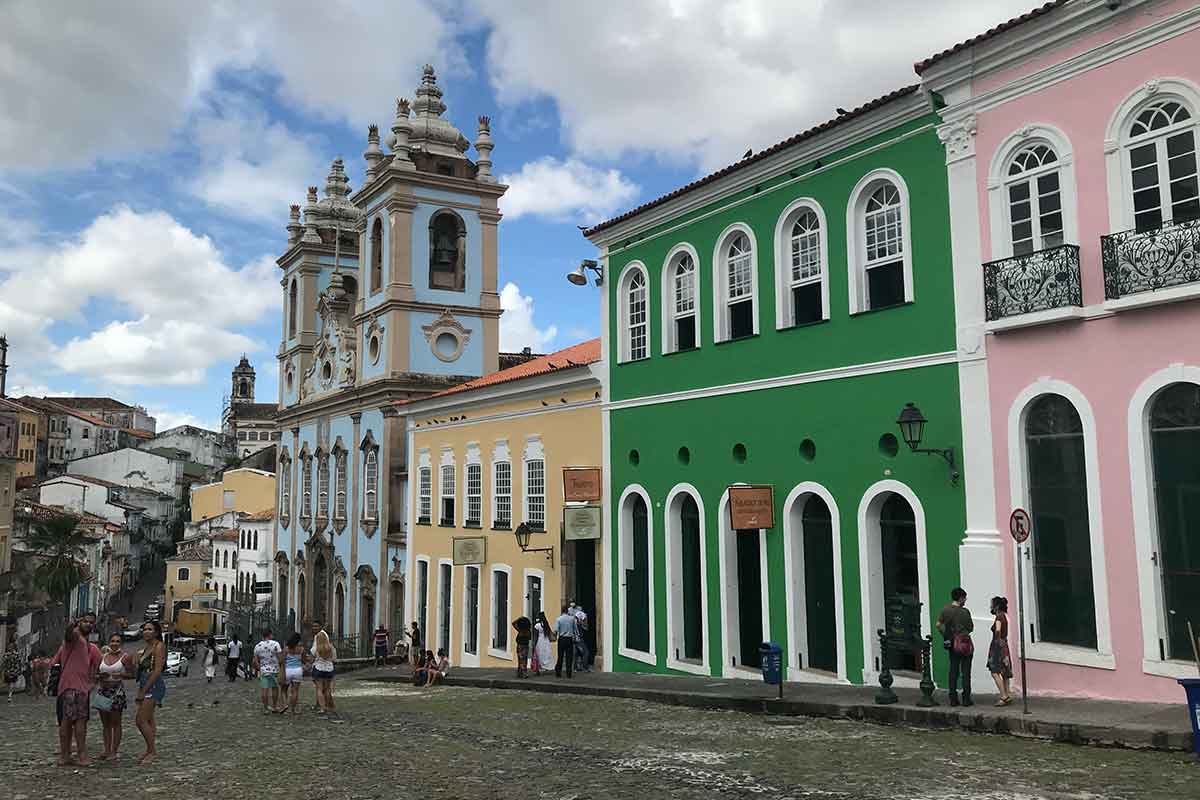
Now whilst it’s quite different, you can actually get away with speaking Spanish in some parts of Brazil, especially in the south like São Paulo and Rio de Janeiro (this mix of languages is locally known as Portuñol ).
Again like when heading anywhere new where you don’t know the local language, even learning just a tiny bit can really enhance your experience.
Locals are already friendly here, but will be even more so when they hear a simple “Bon Dia” or “Cómo está voce?”. You can brush up your Portuguese skills like we did but using Duolingo. Or, if you’re serious about learning carry this Portuguese phrase book with you.
There’s also over 200 indigenous languages spoken throughout the country, although most are found within the deep depths of the Amazon Rainforest .
In Brazil they use the Real , which is amongst the stronger currencies in South America (hence why things are more expensive here compared with countries like Peru and Bolivia).
When budgeting it’s really important to work out exactly how much you’re spending in Real, otherwise you’ll burn through your finances much quicker.
At this current time of writing, $1 US Dollar equals roughly 5 Real , so this should give you a better idea of what you’re spending (of course please look up current rates on Google before and during your trip). You can also check currency sites such as XE who provide up-to-date and accurate exchange rates.
Getting Around Brazil
The easiest (and most common) way for travelers to access Brazil is to fly into São Paulo . This airport is a real giant, and is the best connected in all of Latin America.
Rio de Janeiro is another good one to also look into, given prices can sometimes be cheaper when heading directly here.
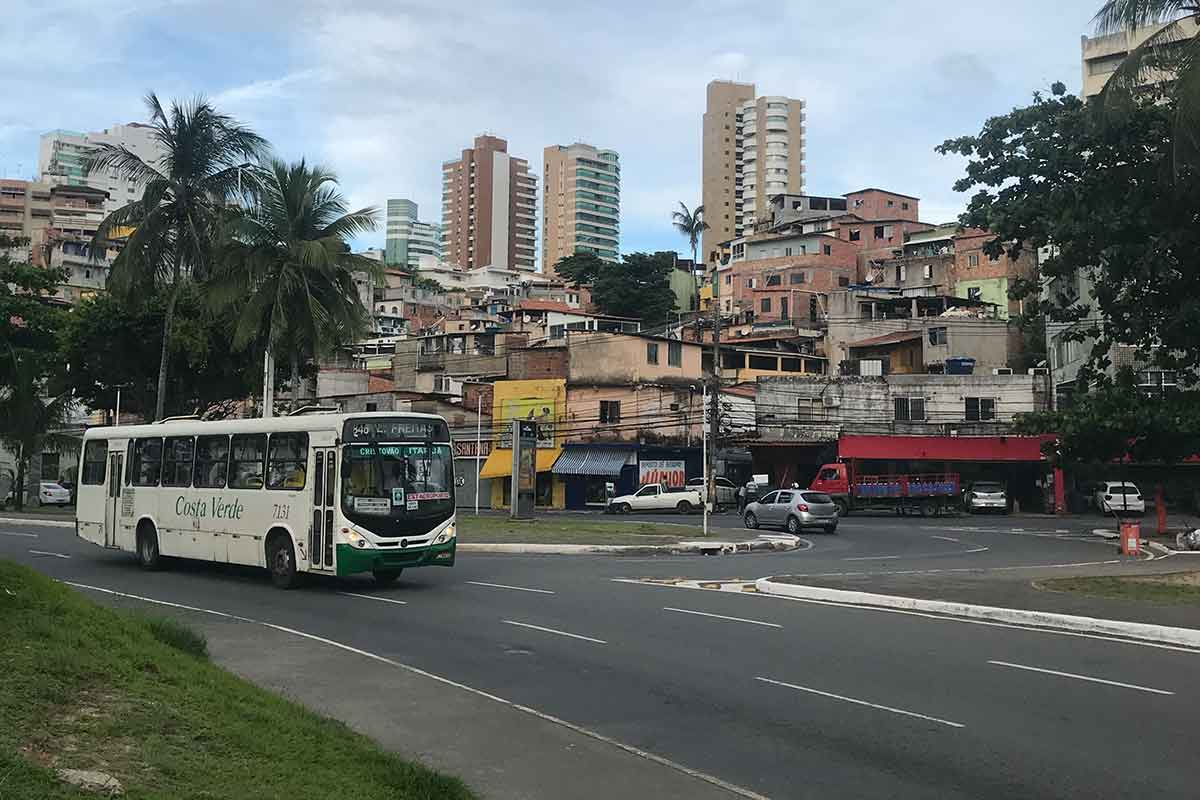
Many travelers can also cross land borders into the country with a bus. The major routes are from Argentina, Paraguay and Uruguay to the south, as well as Bolivia, Peru and Colombia to the north. There’s also crossings from Venezuela and Guyana too.
Buses in Brazil
Getting around the country is best by bus, however travel times can rapidly add-up (anywhere from up to 18-30 hours on the longer legs). It’s wise to make stops along the way, or it’s easy to get burnt out by the distances.
Domestic flights are also a good option given pretty much every major destination has its own airport. You’ll need to fly into Manaus for example, unless you decide to head to or from a memorable boat ride from Belém .
Costs and Budgeting
One of the most important factors to plan before heading off is your budget.
Costs in Brazil can quickly add up given travel distances and the overall fact that it’s more expensive than most other Latin countries.
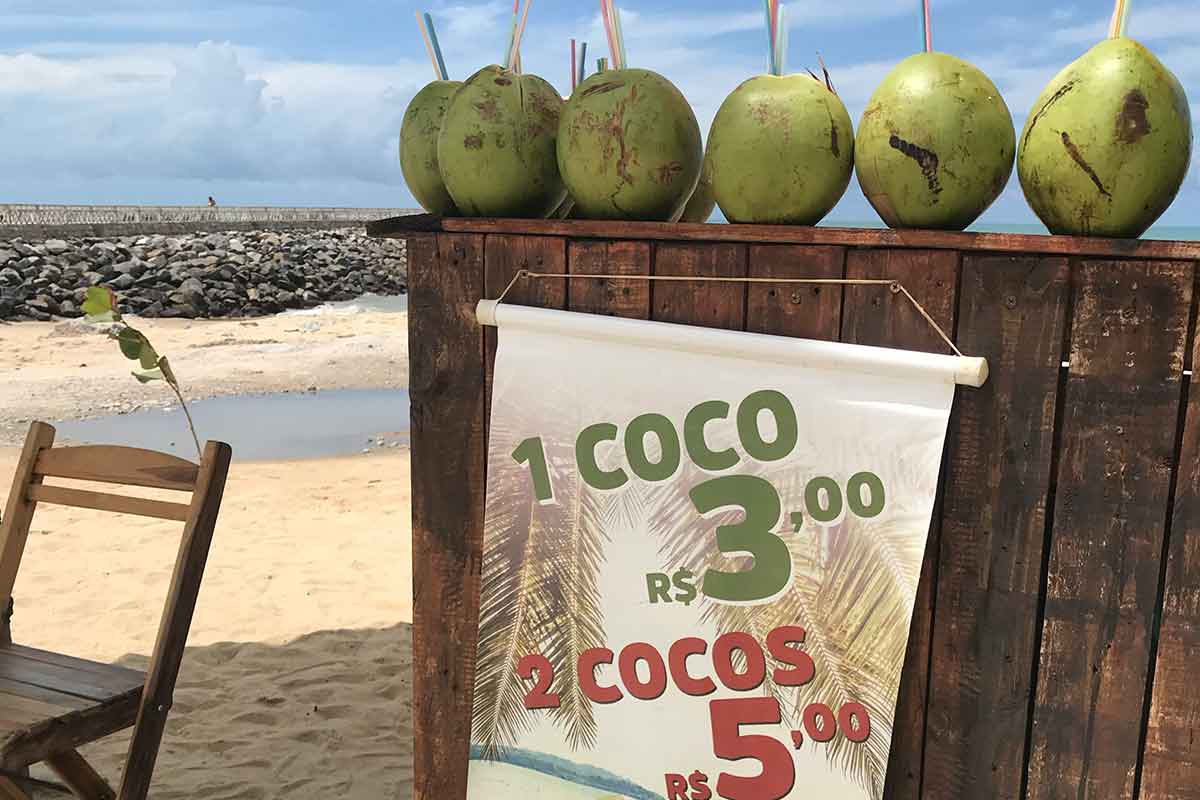
Let’s take a look at how much things tend to be, as well as how to plan a both reasonable and realistic budget. The costs we listed here are correct as of July 2023.
Brazil Travel Costs
Let’s take a look at the typical costs that you’ll be spending on a day to day basis in Brazil.
Remember these can and will vary depending on where you are! For example areas along the north of Brazil tend to be much cheaper than popular districts in the south such as Copacabana and Vila Madalena.
- Average Dorm Bed = £7-13
- Private Single Room in a Hostel = £18-25
- A Street Food Dish = £2-3
- A Meal at an Inexpensive Restaurant = £6-15
- Beer at a Local Bar or Dive = £1-£2.00
- Beer at a Touristy Bar = £2.00-3.50
Brazil Travel Budget
As previously mentioned, it’s important to properly budget before hitting Brazil. This way you’ll be more prepared for the costs, and also know how you can save in certain places.
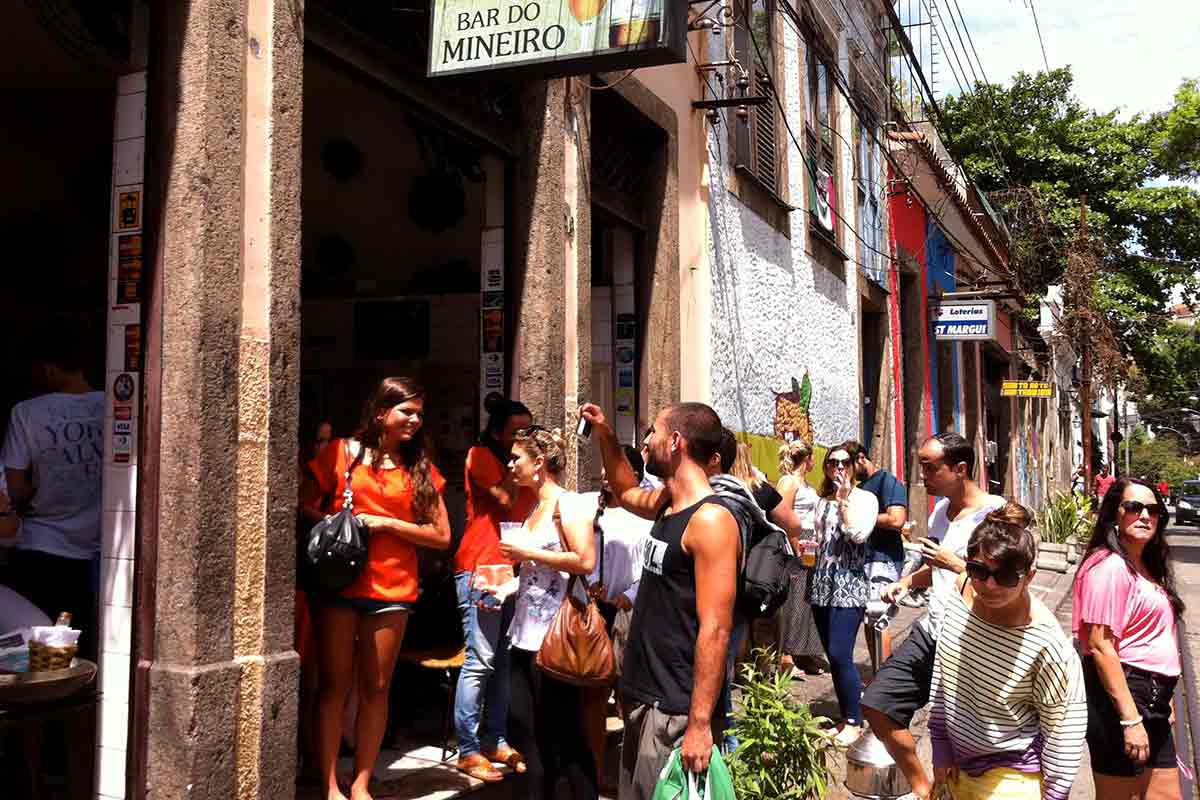
The average backpacker will be spending roughly £25-35 a day . This includes staying in a nice hostel, eating local meals as well as getting around the cities. This is also what we recommend when following our customized 2 week in Brazil itinerary .
Of course some travelers will end up spending more for comfort, whilst others can even go less (George averaged around £20 a day). Always take your own likes and needs into account before deciding on a budget, not just because we say so!
Brazil Trip Planning
Whilst backpacking is definitely about being spontaneous and open to the new, solid planning beforehand really does go a long way.
Below we’ll go through some key things you should get sorted before heading out to Brazil.
What to Pack for Brazil?
Although Brazil is a massive country, temperatures are still pretty hot regardless of where you are . You’ll want to mostly pack light clothes when heading here, and perhaps a jumper when heading to the extreme south (for example in Porto Alegre or near Uruguay).
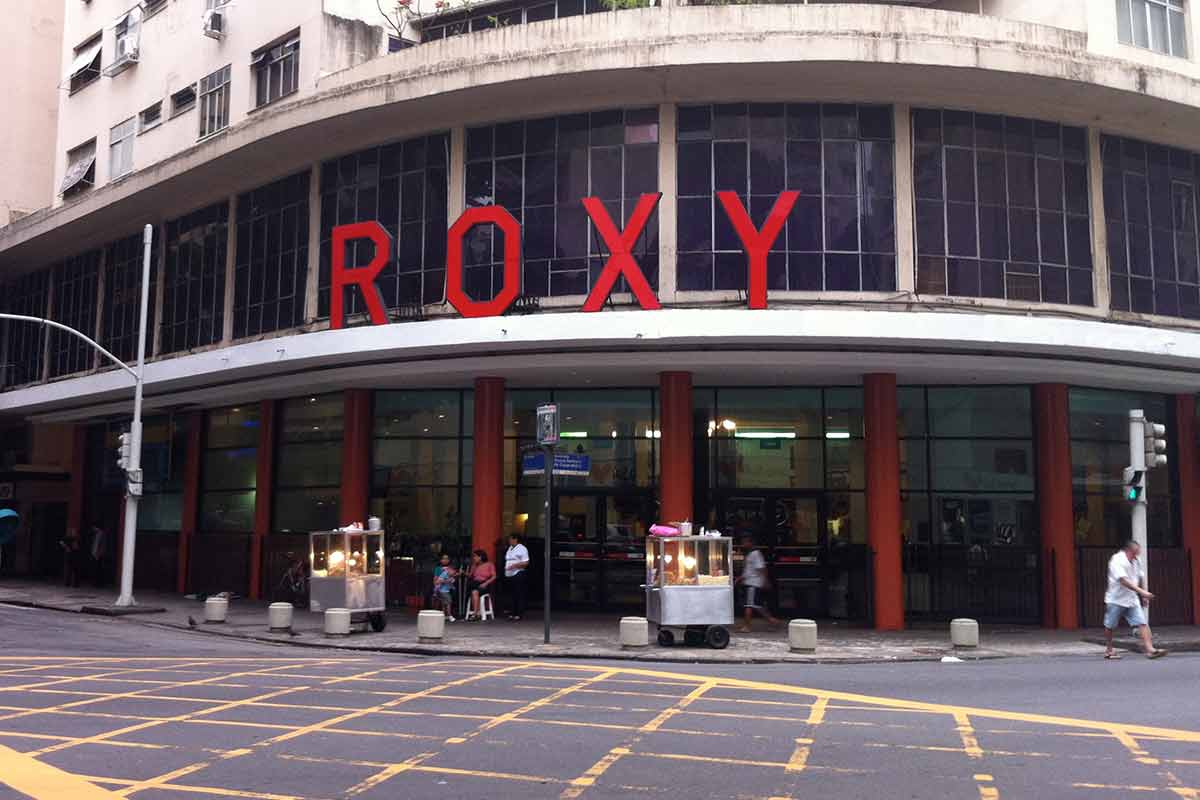
Rainfall can also be heavy in some parts like the Amazon Jungle (or if heading in the wet season), so be sure to carry a solid poncho if either of the two are in your travel plans.
Other things to remember include a solid folder to carry your documents, as well as specific equipment for different activities. Toiletries are also important, although try to pack liquids of less than 100ml , as this way you may be able to fly with just hand luggage saving you some dollar.
If you’re visiting Brazil as part of a longer trip through the continent, then please see this South America packing list.
Below is a basic list of the most common injections that travelers heading to Brazil can get.
As always, please see your doctor as we are not medically trained or qualified to give advice. They’ll tell you exactly what you need for each specific country.
- Hepatitis A
- Yellow Fever
Got travel insurance for Brazil?
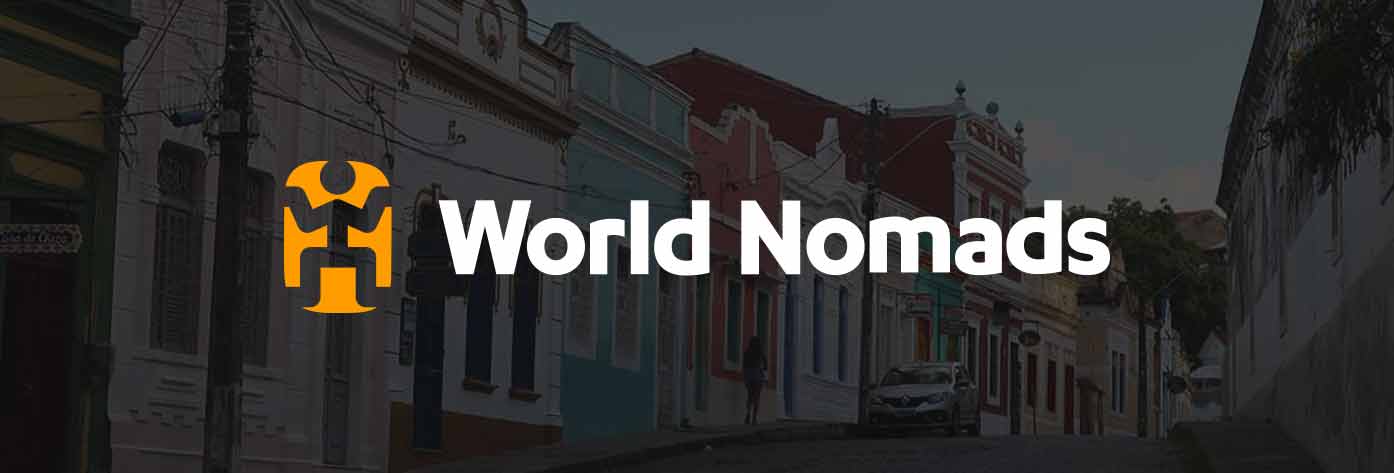
And that’s all for our guide on how to travel Brazil on a budget.
Known as one of the most expensive of the lot, traveling to Brazil doesn’t need to break the bank . With careful planning and following our advice it’s definitely possible to travel Brazil on less than £25 a day, and trust us when we say you’ll want more time here rather than less!
Be sure to read our Brazil Itinerary for more ideas on what to do when in this giant Latin American nation.
👉🏽 P.S. If you’ve found this guide helpful, buy us a coffee here to say thanks! Or, support us by downloading our South America Travel Bible to get our best content.
“ Dear traveler! Some links in this post contain affiliate links. Meaning, if you click through and make a purchase, book a hostel or sign up for a tour, we may earn a small commission at no additional cost to you . Your support means a lot and helps us to carry on traveling and maintaining the quality of this site for you.”
Similar Posts
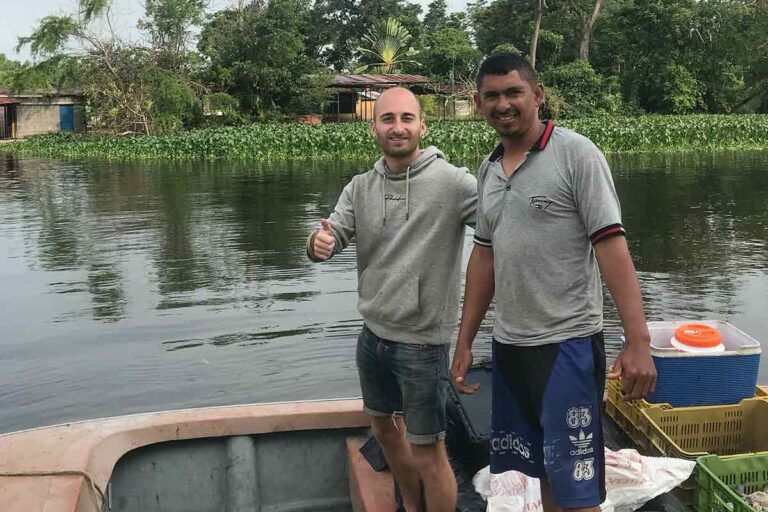
Is Venezuela Expensive?
How much do you need when traveling around Venezuela? Many brave travelers are starting to visit Venezuela, and those who do come will have an unforgettable experience that will re-shape how you think about backpacking. There are of course issues with the money here, so it’s important to read on to learn how to budget…
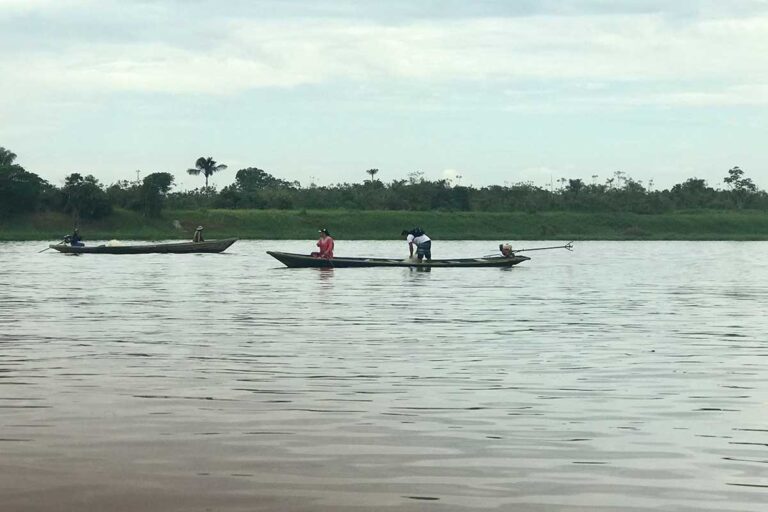
Is Peru worth visiting?
Is Peru worth visiting over other neighboring nations? Let’s be honest, Peru is without a doubt a memorable country to visit in South America. Whilst mostly known for its ancient ruins of Machu Picchu, here you can also find incredible landscapes and some really tasty food. This country is also home to one of the…
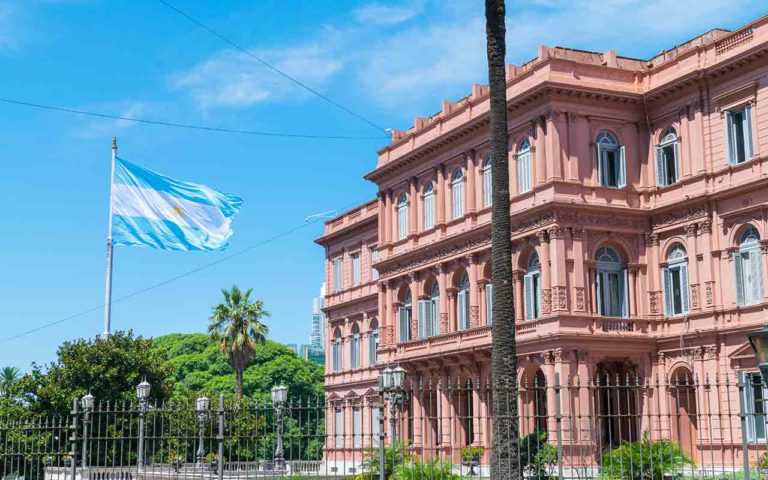
Backpacking Argentina Itinerary
Welcome to this backpacking Argentina itinerary! Argentina is an incredible country to visit because it’s full of exciting cities, a great selection of natural wonders, and many amazing highlights you simply can’t miss. Backpacking Argentina There’s also a passionate, romantic culture, and people are very welcoming (depending on where you go), so it’s truly a…
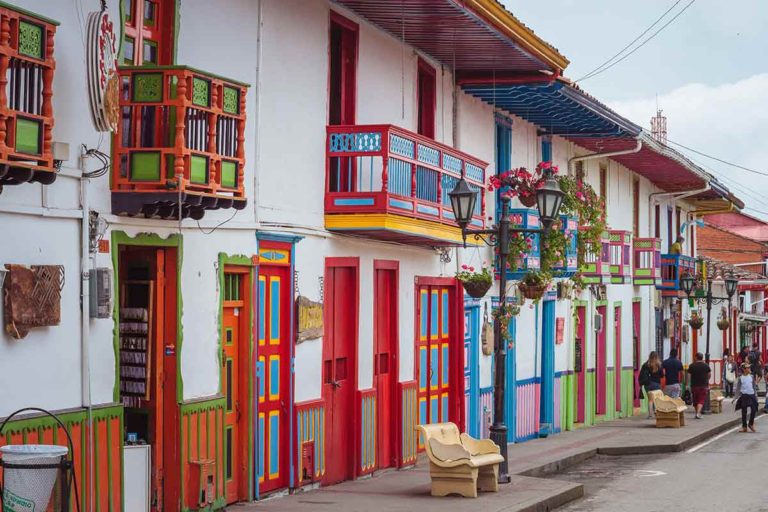
Backpacking Colombia Itinerary
Are you thinking of backpacking Colombia? Colombia is a very popular destination for tourists who want to visit South America. Why? Because it’s one of the most diverse countries in the world. Backpacking Colombia There’s a range of climates, access to two oceans, incredible wildlife, many opportunities for adventure, energetic cities, and super interesting culture….

Backpacking Chile Itinerary
Welcome to our backpacking Chile itinerary. Chile is an amazing destination because it has so much to offer, especially when it comes to natural beauty. If you are backpacking South America as an outdoor enthusiast and nature lover, you will enjoy a Chile travel itinerary. Chile Itinerary You’ll find a diversity of landscapes, such as…
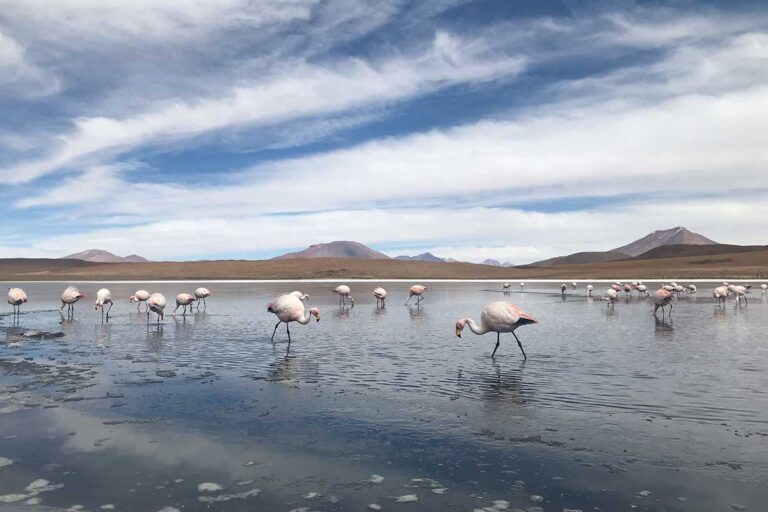
Is Bolivia worth visiting?
Is it worth visiting Bolivia when in South America? A staple along any South American itinerary, Bolivia is a must for those who want a true adventure. Not only is it great for backpackers (given how insanely cheap it is), it also has some truly epic destinations. From the legendary salt flats of Uyuni and…
- Car Rentals
- Airport Transfers
- Attractions & Tours
- Bundle & Save
- Destinations
- Trip.com Rewards
The Ultimate Guide to the Cost of Traveling to Brazil in 2024

by Trip.com
August 25, 2023
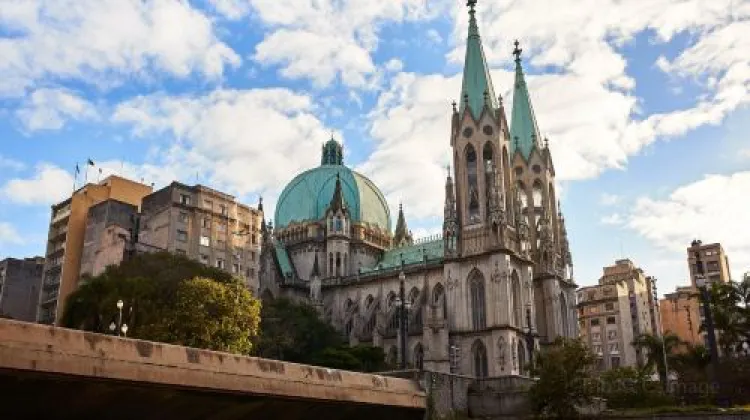
Brazil, a vibrant and diverse country in South America, is a dream destination for many travelers. Planning a trip to Brazil can be an exciting adventure, but it's essential to consider the cost. In this article, we aim to provide you with the best tips for saving money without compromising on quality. From finding affordable accommodations and delicious local cuisine to navigating the transportation system and discovering budget-friendly activities, we've got you covered. So, if you're wondering about the trip to Brazil cost, keep reading to make the most of your travel budget!
When it comes to the cost of a trip to Brazil, it's crucial to consider various factors. The range of flight costs for a round-trip ticket from major cities in the United States to Brazil can vary between $500 to $1500, depending on the season and airline. Accommodation costs also vary significantly, with budget hotels or hostels starting at around $20 per night, while luxury hotels can range from $150 to $500 per night. As for transportation, Brazil has an extensive and efficient public transportation system, with the cost of a one-way subway or train ticket ranging from $0.50 to $1.50.
When it comes to dining, Brazil offers a wide range of options to suit every budget. You can enjoy delicious meals at budget restaurants for as low as $5 per person, while mid-range restaurants may cost around $15 to $30 per person. Now, let's talk about daily expenses. A budget traveler can expect to spend approximately $40 to $60 per day, including accommodation, food, transportation, and activities. On the other hand, a mid-range traveler can expect to spend around $80 to $120 per day. It's important to plan ahead and research activities and costs to create a budget that works for you.
- How much does it cost for 2 nights and 3 days when traveling to Brazil?
Hey there, fellow travel enthusiasts! Planning a trip to Brazil and wondering how much it'll cost you for a quick getaway? Well, you've come to the right place! The cost of a 2-night, 3-day trip to Brazil can vary depending on various factors such as your travel style, choice of accommodation, transportation, and activities. But worry not, I've got you covered with a rough estimate of the cost for a budget traveler.
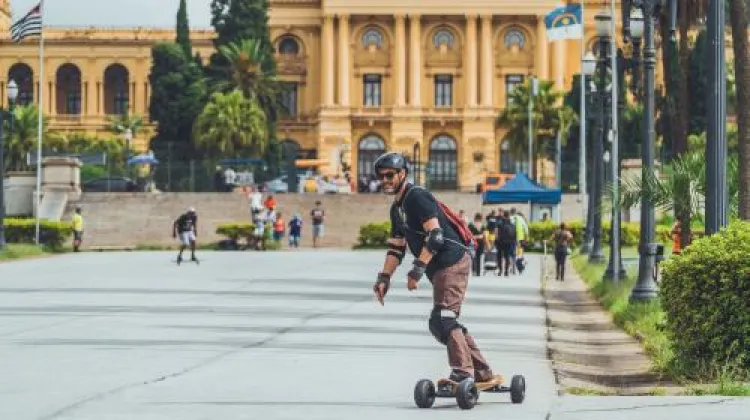
Let's break it down, shall we?
First things first, let's talk about flights. The cost of a round-trip ticket to Brazil from major cities around the world can range anywhere from $500 to $1500 in US dollars. Keep in mind that prices may vary depending on the time of year and availability, so it's always a good idea to book in advance and keep an eye out for deals.
Accommodation
Now, let's find you a cozy place to rest your head. Budget hotels in Brazil can range from $30 to $100 per night in US dollars. So for 2 nights, you can expect to spend anywhere from $60 to $200 on accommodation.
Transportation
Getting around Brazil is a breeze, thanks to its efficient transportation system. A one-way subway or train ticket can cost you around $1 to $3 in US dollars. So for 3 days, you can estimate your transportation expenses to be around $6 to $18.
Food and Drinks
Now let's talk about the best part of any trip - the food! When it comes to dining in Brazil, budget travelers have plenty of options. A meal at a budget restaurant can cost you anywhere from $5 to $15 per person in US dollars. But here's a little secret - street food and convenience store meals can cost even less, so keep that in mind if you're looking to save some extra cash. As for drinks, prices can vary depending on the type of drink and location, but you can expect to spend around $1 to $5 per drink. So for 3 days, you can budget around $60 to $180 for food and drinks.
Sightseeing and Activities
Now let's explore the vibrant attractions Brazil has to offer. There are plenty of popular attractions that won't cost you a dime or may have a small entrance fee ranging from $1 to $10 in US dollars. Some of these include the iconic Christ the Redeemer statue, the breathtaking Iguazu Falls, and the vibrant streets of Rio de Janeiro. However, if you're looking for a more immersive experience, there are other attractions that may cost a bit more. For example, a visit to the Amazon rainforest or a thrilling samba dance class can range from $50 to $200 per person. So for 3 days, you can expect to spend around $30 to $300 on sightseeing and activities.
The Bottom Line
So, how much does a 2-night and 3-day trip to Brazil cost for a budget traveler? Roughly speaking, you can expect to spend anywhere from $657 to $2198 in US dollars. However, please keep in mind that these are just rough estimates and actual costs may vary depending on your travel style, activities, and other expenses. It's always a good idea to plan ahead, do your research, and set a budget that suits your needs. Happy travels!
- How much does it cost for flights when traveling to Brazil?
Planning a trip to Brazil? One of the first things you'll need to consider is the cost of flights. But don't worry, we've got you covered! The cost of flights to Brazil can vary depending on a few factors, including your departure location, the time of year you plan to travel, the airline you choose, and the availability of tickets.
Let's dive into the details and give you a general range of the cost in US dollars for both one-way and round-trip tickets from major cities around the world to Brazil.
Starting with departure locations, flights from popular cities like New York, London, and Sydney tend to have more options and therefore more competitive prices. On average, a one-way ticket from these cities to Brazil can range from $500 to $1500, depending on the class you choose.
Speaking of classes, let's talk about the different options available. If you're looking for a budget-friendly option, economy class is your best bet. One-way economy tickets can start as low as $500, but keep in mind that prices can go up during peak travel seasons.
If you prefer a little more comfort and legroom, premium economy might be the right choice for you. Prices for one-way premium economy tickets can range from $800 to $2000, depending on the airline and availability.
For those seeking the ultimate luxury experience, business class is the way to go. One-way business class tickets can start around $1500 and go up to $5000 or more, depending on the airline and the level of luxury you desire.
Now, let's talk about round-trip tickets. Booking a round-trip ticket can often save you some money compared to buying two separate one-way tickets. The cost of round-trip tickets from major cities to Brazil can range from $1000 to $3000 for economy class, $1500 to $4000 for premium economy, and $3000 to $8000 or more for business class.
Remember, these prices are just a general range and can vary depending on the factors mentioned earlier. It's always a good idea to compare prices from different airlines and use online travel agencies to find the best deals.
So, whether you're planning a beach getaway in Rio de Janeiro or exploring the Amazon rainforest, keep in mind that the cost of flights to Brazil can vary. Take your time to research and find the best option that suits your budget and travel preferences. Bon voyage!
- How much does it cost for hotels when traveling to Brazil?
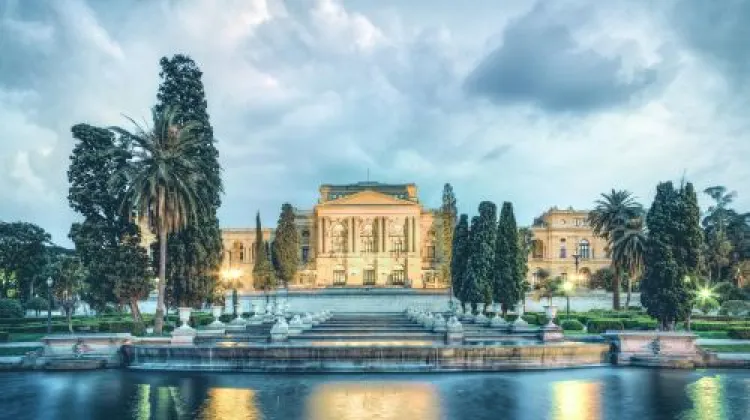
Planning a trip to Brazil? One of the key considerations is the cost of accommodation. The price of hotels in this vibrant country can vary depending on several factors, including the location, season, and the type of accommodation you're looking for.
When it comes to major cities like Rio de Janeiro and Sao Paulo, it's important to keep in mind that hotels tend to be more expensive compared to smaller cities or rural areas. These bustling metropolises offer a wide range of accommodation options, from budget-friendly to luxurious.
In major cities, the average cost range for a mid-range hotel room per night is around $80 to $150. For those seeking a more luxurious experience, the price range for a luxury hotel room can go up to $300 or more per night. These prices may fluctuate depending on the season and availability, so it's always a good idea to book in advance.
On the other hand, if you're planning to explore other cities and smaller towns in Brazil, you'll find that the cost of hotels is generally more affordable. In these areas, the average cost range for a mid-range hotel room per night is around $50 to $100. For a touch of luxury, you can expect to pay around $150 to $250 per night for a luxury hotel room.
It's worth noting that these price ranges are estimates and can vary depending on factors such as location, amenities, and popularity. To get the best deals, it's recommended to compare prices and book in advance. So, whether you're looking for a bustling city experience or a tranquil getaway, Brazil offers a range of accommodation options to suit every budget.
- How much does it cost for food when traveling to Brazil?
Planning a trip to Brazil? One of the things you might be wondering about is the cost of food. Well, let me tell you, the cost of food and dining in Brazil can vary widely depending on several factors. From the type of food you choose to the location of the restaurant, and even the level of formality or luxury, these factors can all influence the price you pay for a meal.
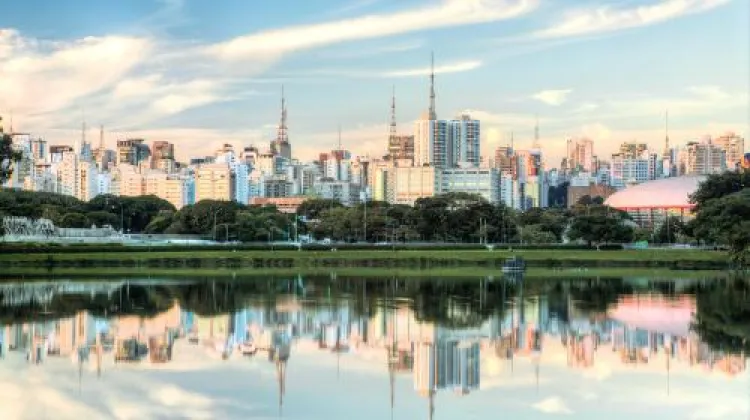
So, let's dive right into it and give you some general price ranges in US dollars per meal. Keep in mind that these are just rough estimates and can vary depending on the specific establishment.
For street food or fast food options, you can expect to pay around $5 to $10 per meal. These quick and tasty bites are perfect for those on the go or looking for a budget-friendly option.
If you prefer a more casual dining experience at a local restaurant, you can expect to spend around $10 to $20 per meal. This is a great way to try out traditional Brazilian dishes and immerse yourself in the local culture.
For those looking for a mid-range dining experience, you can expect to pay around $20 to $40 per meal. These restaurants often offer a wider variety of dishes and a more refined atmosphere.
Now, if you're in the mood to splurge and indulge in a high-end or luxury dining experience, be prepared to spend around $40 and above per meal. These establishments offer top-notch service, exquisite cuisine, and a truly memorable dining experience.
But wait, there's more! If you're looking for more affordable options, Brazil also has convenience stores and supermarkets where you can find a variety of snacks, ready-to-eat meals, and groceries. This can be a great way to save some money while still enjoying delicious food.
Now, let's talk about tipping. In Brazil, tipping is not mandatory, but it is customary to leave a tip if you receive good service. A tip of around 10% of the total bill is generally appreciated. However, always check if a service charge has already been included in the bill before deciding on the tip amount.
So, there you have it! The cost of food in Brazil can vary depending on your preferences and the type of dining experience you're looking for. Whether you're on a budget or ready to splurge, Brazil has a wide range of options to satisfy your taste buds. Enjoy your trip and happy eating!
How much does it cost for souvenirs when traveling to Brazil? Well, let me tell you, amigo, the cost of souvenirs in Brazil can vary like the waves on Copacabana beach. It all depends on what you're after, where you're shopping, and the quality you're seeking. From vibrant carnival masks to sassy Havaianas flip-flops, Brazil offers a plethora of unique keepsakes to bring back home. So, let's dive into the price range of some popular souvenirs, shall we?
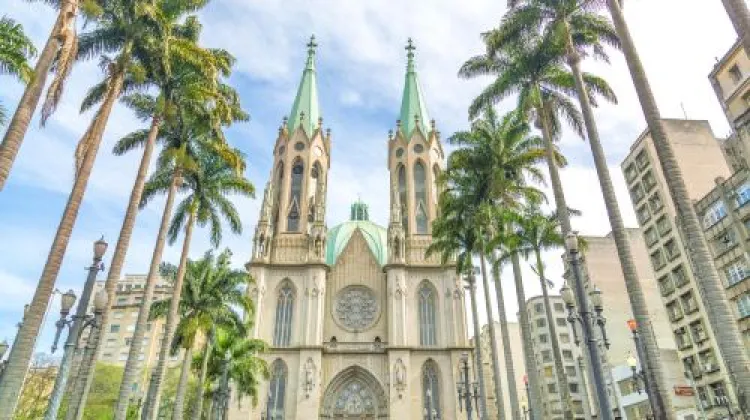
First up, we have those eye-catching carnival masks that can transport you straight to the heart of Rio's samba parade. These beauties can range from $10 to $50, depending on the intricacy of the design and the materials used. If you're more into fashion, you can't miss out on the iconic Havaianas flip-flops. These trendy sandals can cost you anywhere from $15 to $30, depending on the style and limited edition prints.
For the art enthusiasts out there, Brazil is a treasure trove of handcrafted wooden sculptures. From adorable animal figurines to breathtaking religious icons, these masterpieces can range from $20 to $200, depending on the size and level of detail. And let's not forget about the irresistible Brazilian gemstones. Whether it's a dazzling amethyst or a mesmerizing topaz, these precious stones can cost you anywhere from $50 to $500, depending on the size and quality.
Now, when it comes to shopping for souvenirs in Brazil, keep in mind that many tourist areas have fixed prices. However, if you're feeling adventurous and want to test your bargaining skills, head to the local flea markets or antique shops. There, you might just score a fantastic deal on that one-of-a-kind item you've been eyeing. So, my friend, pack your haggling spirit and get ready to bring a piece of Brazil back home!
How much does it cost for transportation when traveling to Brazil?
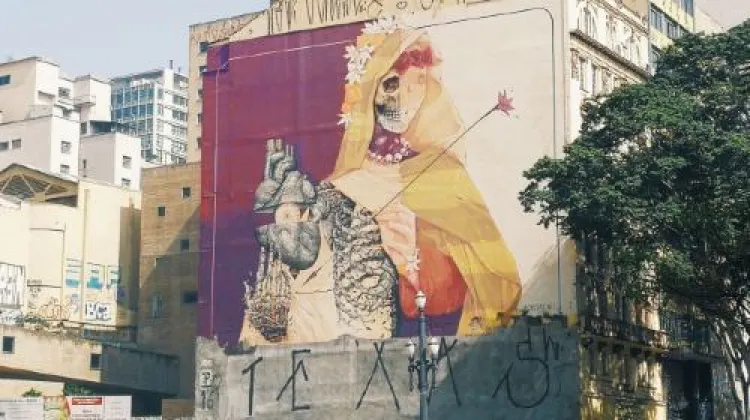
The cost of transportation in Brazil can vary greatly depending on the mode of transportation and the distance traveled. Whether you're exploring the vibrant streets of Rio de Janeiro or venturing into the lush Amazon rainforest, it's essential to plan your transportation expenses accordingly.
Let's dive into some cost ranges in US dollars for different types of transportation options available in Brazil:
Train: Train travel in Brazil is limited, and the cost can vary depending on the route. On average, a train journey can range from $10 to $50, depending on the distance and class of service.
Subway: Major cities in Brazil, such as São Paulo and Rio de Janeiro, have efficient subway systems. The cost of a subway ride typically ranges from $0.50 to $1.50, depending on the distance traveled.
Bus: Buses are a popular mode of transportation in Brazil, offering both comfort and affordability. The cost of a bus ticket can vary depending on the distance and the quality of the bus. On average, a bus ride can range from $5 to $30.
Taxi: Taxis are readily available in urban areas, and the cost can vary depending on the city and the distance traveled. A short taxi ride can cost around $5 to $10, while longer journeys can range from $20 to $50.
Rental Car: Renting a car in Brazil gives you the freedom to explore at your own pace. The cost of renting a car can vary depending on the duration of your trip, the type of car, and the rental company. On average, daily rental rates can range from $30 to $100.
Now, let's talk about transportation passes and discount tickets available in Brazil. For visitors planning to do a lot of traveling in a short period, transportation passes can be a great value. These passes often provide unlimited access to various modes of transportation, including buses, subways, and trains.
One example is the "Bilhete Único" in São Paulo, which offers discounted fares for multiple trips within a certain time frame. Another example is the "RioCard" in Rio de Janeiro, which provides discounted fares for buses, subways, and ferries.
It's important to research and inquire about these transportation passes and discount tickets before your trip to Brazil. They can help you save money and make your travel experience more convenient.
In conclusion, the cost of transportation in Brazil varies depending on the mode of transportation and the distance traveled. By considering the options mentioned above and exploring transportation passes and discount tickets, you can plan your trip to Brazil cost-effectively and enjoy the diverse beauty this country has to offer.
- How much does it cost for sightseeing when traveling to Brazil?
Planning a trip to Brazil? One of the first things you might be wondering is how much it will cost to explore the beautiful sights this vibrant country has to offer. Well, the cost of sightseeing in Brazil can vary widely depending on the location, attraction, and activity you choose. Let's take a closer look at some popular tourist spots and their cost ranges in US dollars.
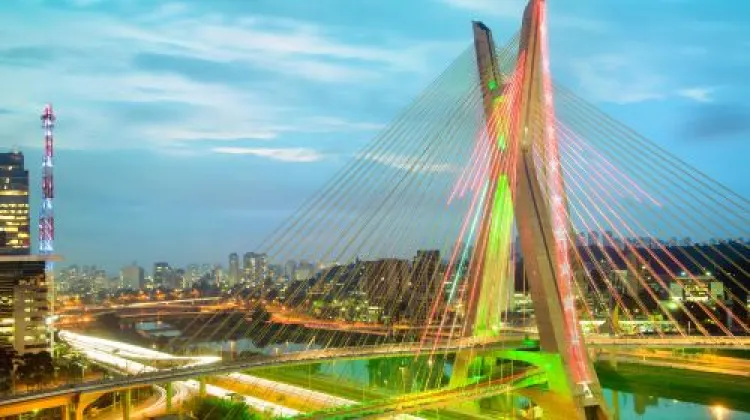
1. Christ the Redeemer - This iconic statue in Rio de Janeiro is a must-visit for any traveler. The cost of a ticket to the top of Corcovado Mountain, where the statue is located, ranges from $15 to $25.
2. Iguazu Falls - Prepare to be amazed by the breathtaking beauty of these cascading waterfalls. The entrance fee to the national park starts at around $20, and additional activities like boat tours can range from $30 to $100.
3. Amazon Rainforest - Immerse yourself in the wonders of nature with a trip to the Amazon. Guided tours can range from $100 to $300, depending on the duration and activities included.
4. Salvador da Bahia - Explore the rich history and vibrant culture of this coastal city. Admission to popular attractions like Pelourinho, a UNESCO World Heritage Site, is often free, allowing you to soak up the atmosphere without breaking the bank.
5. Pantanal Wetlands - Embark on an unforgettable wildlife adventure in this vast wetland area. Guided tours start at around $150 and can go up to $500, depending on the duration and level of luxury.
6. Fernando de Noronha - This stunning archipelago is a paradise for beach lovers and divers. The cost of visiting the national marine park ranges from $100 to $200, and additional activities like snorkeling or diving can incur extra charges.
7. Ouro Preto - Step back in time and admire the colonial architecture of this historic town. Many of the churches and museums offer affordable admission fees, making it a budget-friendly sightseeing option.
8. Bonito - Known for its crystal-clear rivers and vibrant underwater life, Bonito offers a range of activities such as snorkeling and cave exploration. Prices for tours start at around $50 and can go up to $150.
While these popular attractions may come with a price tag, it's important to note that there are also plenty of free or low-cost sightseeing options in Brazil. For example, you can take a stroll along the famous Copacabana Beach in Rio de Janeiro or explore the colorful streets of Pelourinho in Salvador da Bahia, all without spending a dime.
So, whether you're on a tight budget or willing to splurge, Brazil offers a wide range of sightseeing options to suit every traveler's preferences. Start planning your trip to this captivating country and get ready to create unforgettable memories!
- How much does it cost for Wi-Fi & communication when traveling to Brazil?
When planning a trip to Brazil, it's important to consider the cost of Wi-Fi and communication to stay connected while exploring this vibrant country. Let's dive into the options and cost range in US dollars for accessing Wi-Fi in Brazil, ensuring you can stay connected without breaking the bank. One option is to rent a Wi-Fi router, which offers convenience and flexibility. Depending on the rental company and plan you choose, prices can range from $5 to $15 per day. This allows you to have your own personal Wi-Fi hotspot, ensuring a reliable connection wherever you go. Another option is to purchase a SIM card for your smartphone. Prices for SIM cards vary depending on the data plan and provider you select. On average, you can expect to pay around $10 to $30 for a SIM card with a decent data plan. This option is great if you prefer to use your own device and have access to data on the go. If you're looking for a budget-friendly option, free Wi-Fi is available in certain locations throughout Brazil. Many hotels and accommodations offer complimentary Wi-Fi for their guests, so it's worth checking before booking. Additionally, some smartphone apps like "WiFi Map" and "Instabridge" provide access to free Wi-Fi hotspots throughout the country, making it easier for you to stay connected without spending a dime. It's important to note that the cost of Wi-Fi in Brazil can vary depending on the method of access and the data plan you choose. However, with the numerous options available, you can find a solution that suits your needs and budget. So, stay connected and make the most of your trip to Brazil without worrying about expensive communication costs.
- How Much Does it Cost for a Visa When Traveling to Brazil?
Planning a trip to Brazil? Before you pack your bags and board that flight, it's important to know the cost of obtaining a visa. The price range for visa applications varies depending on your country of citizenship and the type of passport application. Let's take a closer look at some specific figures to give you an idea. For example, citizens of the United States can expect to pay around $160 for a tourist visa, while citizens of Canada may have to shell out approximately $100. However, it's worth noting that some countries enjoy visa-free access to Brazil, so be sure to check if you fall into that lucky category.
When it comes to visa applications, fees can differ based on your country of citizenship and the type of application you're submitting. It's also important to keep in mind that certain countries may require additional fees for visa applications or other travel documents. To ensure you have the most accurate and up-to-date information on passport and visa requirements and fees, it's always a good idea to reach out to your local embassy or consulate. They'll be able to provide you with the necessary guidance and ensure a smooth journey to Brazil.
- How much does it cost for insurance when traveling to Brazil?
The cost range of travel insurance for a trip to Brazil can vary depending on several factors. These factors include your age, the length of your trip, the type of coverage you need, and the insurance provider you choose. To give you a general idea, here are some guidelines for travel insurance costs:
For a single trip, the cost of travel insurance can range from around $50 to $200. This range is influenced by factors such as the duration of your trip and the level of coverage you require. It's important to compare different policies from various providers to find the one that best suits your needs and budget.
If you are a frequent traveler to Brazil or plan to take multiple trips within a year, an annual travel insurance policy might be a better option for you. The cost of an annual policy typically ranges from $300 to $600. This type of policy provides coverage for multiple trips throughout the year, offering convenience and potential cost savings.
If you want comprehensive coverage for your trip to Brazil, including medical expenses, trip cancellation or interruption, and baggage loss or delay, a comprehensive travel insurance policy is recommended. The cost of a comprehensive policy can range from $100 to $500, depending on the duration of your trip and the level of coverage you choose.
When comparing travel insurance policies, it's crucial to carefully read the policy details and understand what is covered and what is not. Pay attention to any deductibles or exclusions that may apply. Additionally, consider checking if your credit card or travel booking site offers travel insurance as a benefit or add-on, as this could be a convenient and potentially cost-effective option.
In conclusion, the cost of travel insurance for a trip to Brazil varies based on factors such as your age, trip duration, coverage needs, and insurance provider. To ensure you find the best coverage for your needs and budget, compare policies from different providers and thoroughly review the policy details.
How much does it cost for family, couples or single when traveling to Brazil?
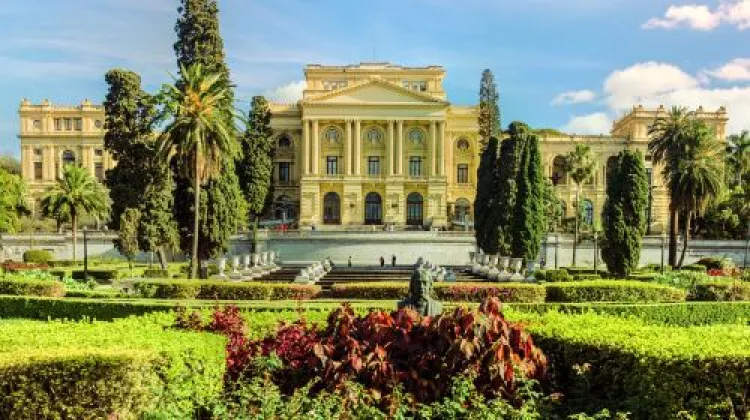
The cost of traveling to the country can vary widely depending on a number of factors, such as the length of the trip, the type of accommodation, the level of luxury, the activities planned, and the number of travelers. Here are some estimated costs for a trip to the country:
Airfare: The cost of airfare to the can vary depending on the departure city and the time of year. You can expect to pay anywhere from a few hundred to several thousand dollars for a round-trip ticket from the United States to Brazil per person.
Accommodation: When it comes to accommodation, the cost can vary greatly depending on your preferences. For budget travelers, a night at a budget hotel or hostel can range from $20 to $50. If you're looking for a bit more comfort, a mid-range hotel can cost you anywhere from $50 to $150 per night. For those seeking luxury, you can expect to pay upwards of $200 per night for luxury hotels and ryokans.
Food and drink: The cost of food and drink in Brazil can also vary depending on your tastes. A budget meal at a local restaurant can cost you around $5 to $10 per person, while a mid-range meal can range from $10 to $30 per person.
Transportation: Getting around in Brazil can be affordable if you choose the right mode of travel. A single metro or train ticket can cost you around $1 to $2, while a long-distance bullet train ticket can range from $50 to $100. Keep in mind that taxis and car rentals can add to your transportation costs.
Overall, the cost of traveling to Brazil can range from a few hundred to several thousand dollars per person, depending on your travel style and preferences. Whether you're traveling with your family, as a couple, or alone, you can expect to spend anywhere from $500 to $5000 for a trip to Brazil. Remember, these are just estimates, and the actual cost may vary based on your choices and the time of year you plan to visit. So start saving up and get ready for an unforgettable adventure in Brazil!
- Methods to Save Money When Traveling to Brazil
Planning a trip to Brazil can be an exciting adventure, but it's no secret that travel expenses can quickly add up. However, with a little bit of knowledge and some smart strategies, you can make your dream trip to Brazil more affordable without compromising on the experience. Here are some tried and tested methods to save money when traveling to Brazil.
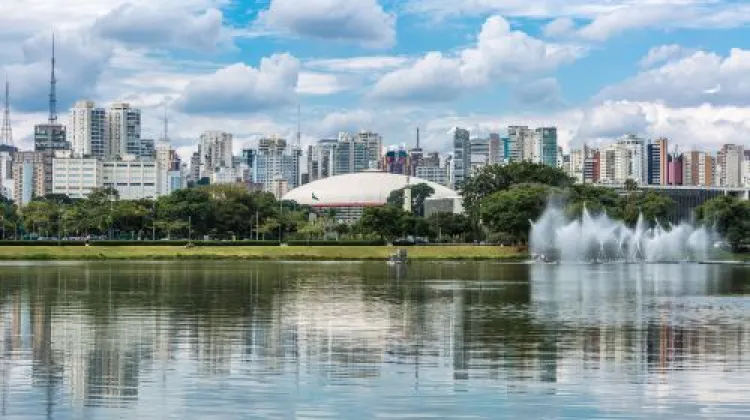
First and foremost, consider traveling during the off-peak season. Brazil's peak tourist season usually falls between December and March when prices for flights and accommodations tend to skyrocket. By opting for a visit during the shoulder or low season, you can take advantage of significantly lower prices and enjoy a more relaxed and authentic experience.
Another great way to cut down on your trip to Brazil cost is to be flexible with your travel dates. Keep an eye out for deals and discounts offered by airlines and hotels. Sometimes, a slight adjustment in your departure or return dates can lead to substantial savings. Additionally, booking your flights and accommodations well in advance can often result in discounted rates, so plan ahead and secure the best deals.
When it comes to accommodations, consider staying in budget-friendly options such as hostels or guesthouses. Not only are these options more affordable, but they also provide an opportunity to meet fellow travelers and share experiences. Alternatively, you can explore the growing trend of vacation rentals, which can offer more space and amenities at a lower cost compared to traditional hotels.
Transportation costs can also eat into your budget, but there are ways to minimize them. Instead of relying solely on taxis or private transfers, make use of Brazil's extensive public transportation network. Buses and trains are not only cheaper but also allow you to immerse yourself in the local culture and interact with the friendly locals. Additionally, consider walking or cycling for shorter distances to save money and explore the city at your own pace.
Lastly, don't forget to indulge in the local cuisine. While it may be tempting to dine at expensive tourist-oriented restaurants, venturing into local eateries and street food stalls can offer a more authentic experience at a fraction of the cost. Brazil is famous for its diverse and delicious street food, so be sure to try traditional dishes like feijoada or acarajé.
By implementing these money-saving methods, you can make your trip to Brazil more affordable without compromising on the incredible experiences and memories that this vibrant country has to offer. So start planning, pack your bags, and get ready for an unforgettable adventure in Brazil!
- Tips for Traveling to Brazil
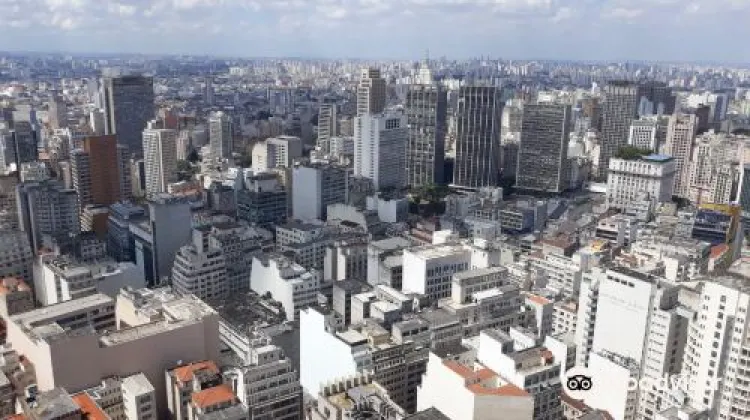
Planning a trip to Brazil? Well, buckle up and get ready for an adventure of a lifetime! Brazil, with its vibrant culture, stunning landscapes, and warm-hearted people, offers an experience like no other. Whether you're heading to the iconic Rio de Janeiro or exploring the mighty Amazon rainforest, here are eight essential tips to ensure your journey is smooth and memorable.
1. Learn the Lingo: While many Brazilians speak English, knowing a few basic Portuguese phrases will go a long way. From ordering food to asking for directions, a little effort to communicate in the local language will be greatly appreciated.
2. Embrace the Local Cuisine: Brazilian food is a delightful fusion of flavors, influenced by African, European, and Indigenous cultures. Don't miss out on trying feijoada, a traditional black bean stew, or the famous churrasco, a mouthwatering barbecue experience.
3. Stay Safe and Smart: Brazil is generally a safe country, but like any other destination, it's important to take precautions. Avoid displaying valuable items, be cautious in crowded areas, and use reputable transportation services to ensure a worry-free trip.
4. Pack for All Occasions: Brazil's vast size means diverse climates. From the tropical beaches of Bahia to the chilly mountains of Serra Gaucha, pack accordingly. Don't forget your swimsuit, comfortable walking shoes, and a light jacket for unexpected weather changes.
5. Explore Beyond the Tourist Hotspots: While Rio de Janeiro and São Paulo are must-visit cities, Brazil has so much more to offer. Venture off the beaten path and discover hidden gems like the colorful streets of Salvador or the enchanting landscapes of Bonito.
6. Respect the Local Customs: Brazilians are known for their warm hospitality and friendly nature. Embrace their customs and traditions, such as greeting with a kiss on the cheek or participating in a lively samba dance. Immerse yourself in the local culture for an authentic experience.
7. Stay Hydrated and Protect Yourself: Brazil's tropical climate can be intense, so staying hydrated is crucial. Carry a reusable water bottle and use sunscreen to protect yourself from the sun's rays. Don't forget insect repellent, especially if you're heading to the Amazon rainforest.
8. Connect with Nature: Brazil is a nature lover's paradise. From the breathtaking Iguazu Falls to the mesmerizing Pantanal wetlands, make sure to include some outdoor adventures in your itinerary. Hike through the lush rainforests, go wildlife spotting, or simply relax on the stunning beaches.
So, get ready to immerse yourself in the vibrant culture, indulge in delicious cuisine, and explore the natural wonders of Brazil. With these tips in mind, your journey will be filled with unforgettable moments and incredible experiences. Bon voyage!
* All user reviews in this article have been translated by machine.
* The information above is subject to change at any time. For the latest information, please check the websites of hotels and attractions.
Table of Content
- Customer Support
- Service Guarantee
- More Service Info
- Website Feedback
- About Trip.com
- Terms & Conditions
- Privacy Statement
- About Trip.com Group
Other Services
- Investor Relations
- Affiliate Program
- List My Property
- Become a Supplier

ROAD TRIP IDEAS & HIKING INSPIRATION FOR OUTDOORSY TRAVELERS
Budget Trip to Brazil?! – Travel Costs and Transportation Tips
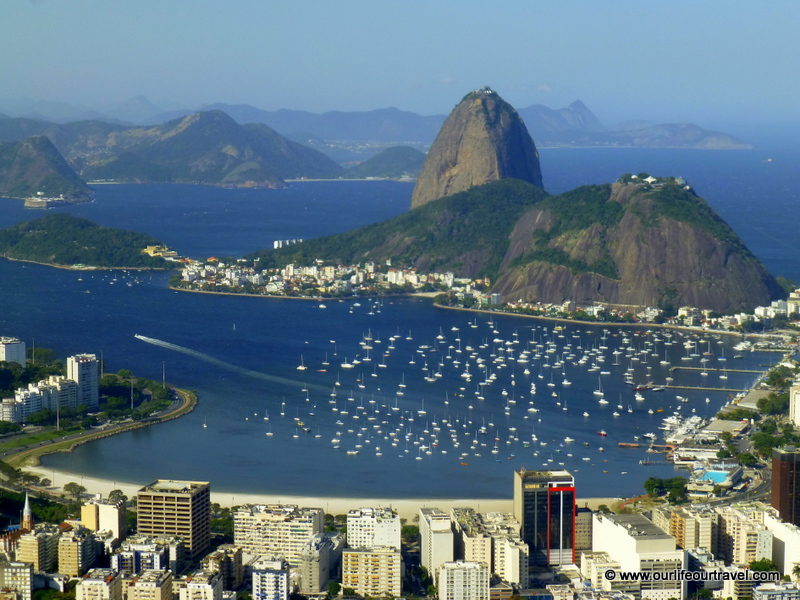
Sharing is caring!
Do you plan a budget are trip to Brazil? You are at the perfect place. We share our best tips and tricks to bring the most out of your Brazil trip. We will walk you through our expenses, flight and accommodation costs, as well as the costs of visiting the Amazon rainforest.
Why did we end up in Brazil if we were planning a budget summer trip?
It seems like a good question, as flying to South America usually isn’t cheap. We have agreed that we do a cheap, budget trip, and we don’t want to travel far for 1-1.5 months during the summer either. I don’t like long flights and many changes.
It is already a challenge to reach Helsinki (the capital where the flights go abroad from). If we do it in a cheap way, it takes 9-10 hours by bus, and usually an extra sleep at Helsinki-Vantaa airport (so let’s say 15 hours). If you add two flights with one change, it easily adds 18 hours more. So you have been already traveling over a day and you didn’t have a decent sleep. I feel like it is wasting time and money to go too far for such a short time, while there are many other places I would like to explore closer to us. And Karol agreed.
This post contains affiliate links .
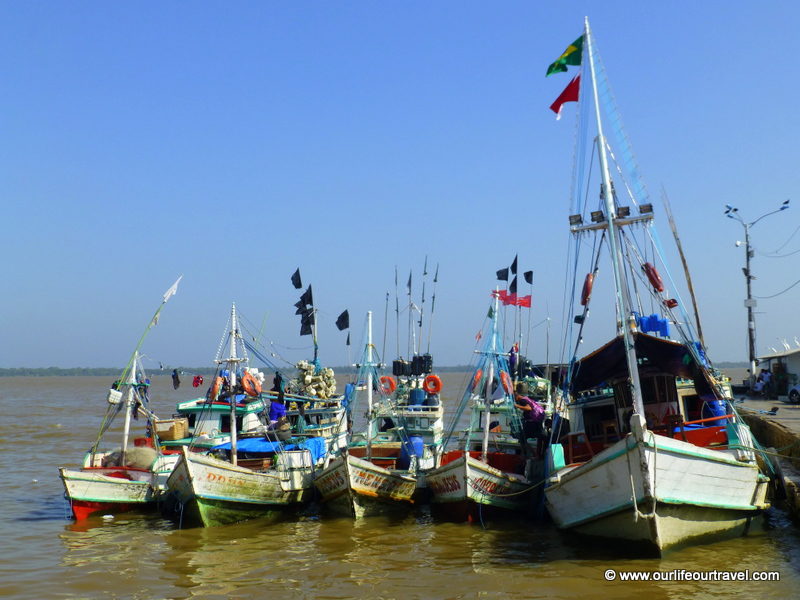
Brazil Trip Costs
Let’s get to the bottom of our wallet 🙂
The major expense is the airfare and accommodation. Food and local transportation are relatively cheap. The tour and activity prices highly vary. If you don’t have much time in Brazil, book your activities in advance, so you don’t need to spend your precious days with finding the best deals and you can fully enjoy your stay.
Local currency for your Brazil Trip
Brazilian real is the local currency and 1R$ is 100 centavos.
1R$ is around 0.25€ or 0.3 USD. It is easy to calculate the prices while traveling, just divide the numbers by 4 or 3.
The cheapest time to travel to Brazil
The summer in the northern hemisphere is a warm winter in the southern part of Brazil. In Amazonia, it’s hot all year round, only the amount of rain changes.
If you want to reduce your spendings, head to Rio, Sao Paulo and the south between June and August . We opted for July, and it seemed like a good choice not only for the south but for Manaus as well. We arrived to the capital of the rainforest after the rainy season.
How Much a Trip to Brazil Cost?
Let’s get to the point. Our one-month-long trip in Brazil cost ~ 1300€ per person for our 31-days-long trip , plus the flight to/from the country. That equals to 42€ per person per day (168R$) that we spent travling in Brazil.
It includes
- local flights, boat, and night buses in Brazil
- local transportation costs
- all accommodation costs
- tour costs (in Lençóis Maranhenses National Park – the most luxurious stay we had!)
- jungle lodge near Manaus with full board and all the programs
- food and beer 😉
It does not include
- our flights to and from Brazil (see the next point for more details)
Budget Flight to Brazil
We were looking for options closer. Iran seemed nice (and was the furthest we have considered): direct flights from Helsinki for about 350€, visa on arrival, no extra fuss. We have already talked with our Iranian friends and asked about ideas. But then, I have just come across an ad of return flights to Brazil that costs even less. From Brussels. But by low-cost airlines, it is less than 50€ to get there from Joensuu. So it is still extra cheap! Iran vs Brazil (the rainforest, a new continent, the Amazon river…). It was an easy decision.
It took about an hour and we have booked our tickets to São Paulo and back. We will have 30 days to explore some parts of the country – we had to choose which one!
How much does it cost to fly to Brazil
You can take a cheap trip to Brazil if you have a bit of luck. We flew from Europe for less than 300€ per person with KLM. Their normal prices are a bit higher, but if you want to do more than beaching or taking part in the Carnival, consider May to August when the prices are usually lower.
Both from the States and from Europe, you can easily get tickets for 450€/$500 . It is worth to check flights to Rio de Janeiro, Sao Paulo, and Manaus as well. Use Skyscanner to find the best flight deals .
* READ about our adventures in Amazonia *
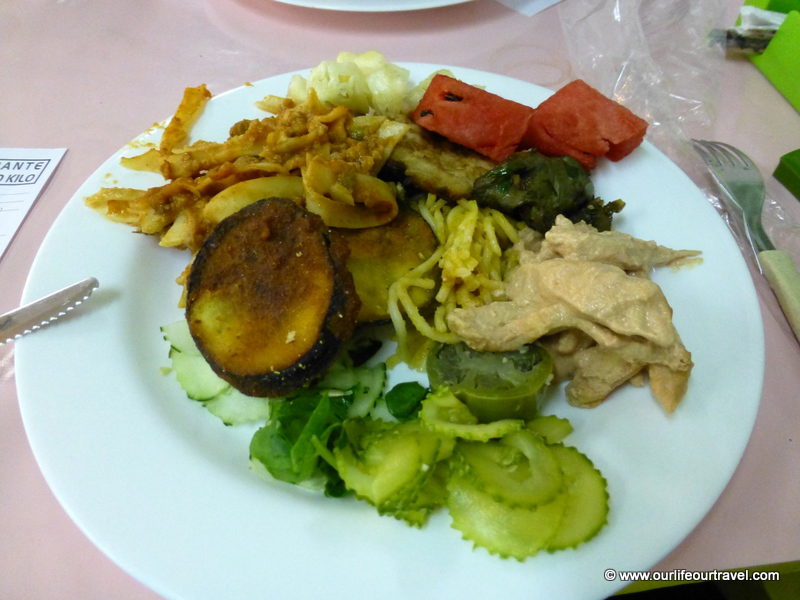
Brazil has similar food prices to Poland or Hungary. So let’s say Central/Eastern Europe. A cheap meal is around 5€ (20R$) and you get a great variety of food in that price range. Fancy (or fancier) dining is around 15-20€ (60-80R$), not that we used that option really having a shoestring budget. We splurged in Atins only 🙂
Rio de Janeiro and Sao Paolo were more expensive than Amazonia , or even cities than Manaus , Belém or Sao Luis .
Beer and the Brazilian cocktail specialty, the caipirinha, is 0,5-2€, depends on the location.
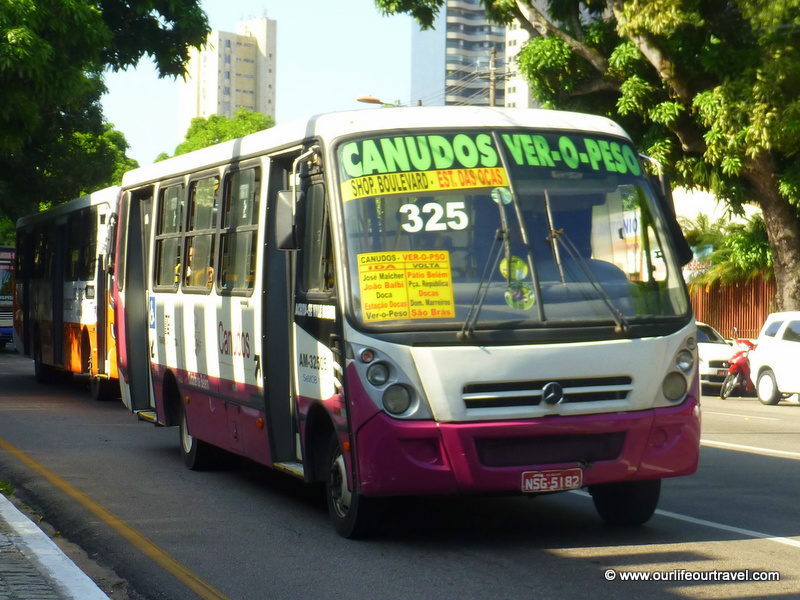
Transportation costs
Local buses.
Local fares are around 0.5-1.5€ (2-6R$) . I considered it expensive compared to the local salaries, but for example, in Rio, you can get passes suitable more for tourists and save on commuting.
Flights in Brazil
Surprisingly the local flights that connect cities even thousand kilometers away are affordable if you buy the ticket ahead. We paid around 100€ per ticket (400R$) at the maximum for our Brazilian flights.
The 3 local flights we took:
- Sao Paolo – Manaus
- Tabatinga (via Manaus) – Belém
- Sao Luis – Rio de Janeiro
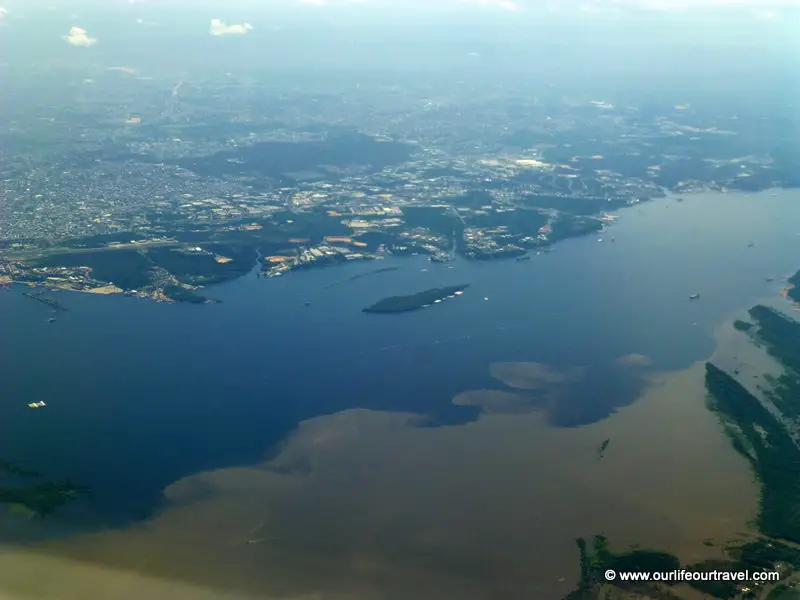
Night Buses Between Cities
A pleasant ride in the big seats on the air-conditioned buses was the best transportation option we could ever choose. 30-40€ (120-160R$) tickets were a bargain! I prefer them over the flights, except that it didn’t give an amazing view to the Amazonian rainforest from above.
We took night buses between Belém and Sao Luis , and from Rio de Janeiro to Sao Paolo .
Boat on the Amazon (Manaus-Tabatinga)
The second biggest sum we paid was for ferry transportation along the Amazonas river than took almost a week upstream. We opted for the air-conned cabin (that cost double than the hammock!). It came with full-board and cost about 250-300€ for two (1000R$+) and gave a life-long experience. You can stay in a hammock for 350-500R$ per person. Not only living on a boat that long was unique, but we got engaged on this route.
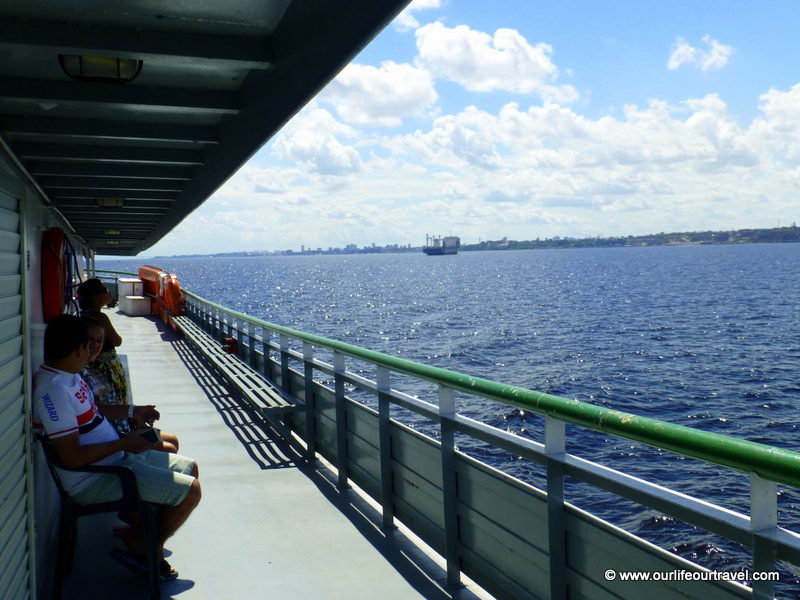
Accommodation
On average we spent 30€ (120R$) per night (per room) , and this was an increased cost due to minor problems. First of all, we made one of our bookings to the wrong day (into the past, ofc) in Belém. The second happened when we got sick, we gave up on our fancy seaside hostel (no refund) and booked a 4-star hotel instead. These two incidents cost us over 100€ extra .
4-star accommodations
We stayed in Sao Luis and Belem in fancier accommodations. Air conditioning, private bathroom, and spacious rooms. While the first one was on purpose, the second one was a need. When we got food poisoning , we simply couldn’t survive in a room with a fan and couldn’t handle well a possible queue to the bathroom.
Both of these rooms cost 50ish€ per night (200R$). Oh, and in Sao Luis , we even had a pool!
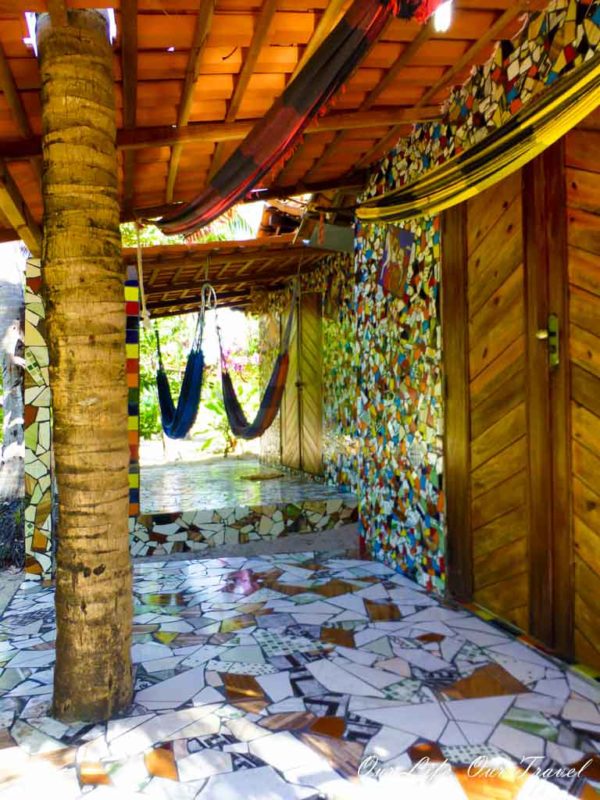
Pousada in Atins
Our second planned luxury took place in Atins, in the middle of Lencois Maranheses National Park , on the seaside of the Atlantic Ocean. That was the cutest place I’ve ever been with a hospitable owner. It was the most expensive place as well. 60€ per night (240R$), with breakfast.
Jungle Lodge at the Rio Negro
We stayed for several days at a jungle longe with full-board and activities near Manaus. You can check their current prices here.
Budget and cheap accommodation in Brazil (hostels and cheap rooms)
Half of our nights were in budget hostels and hotels . Dorm room in Rio and private rooms in the rest of the places. We paid 10-30€ per night (40-120R$) for the two of us. Good deals.
The only thing we were missing was the nets against the mosquitos . We only had them in Atins. The rest of the accommodations had protection neither on the windows nor on the beds. And the little bloodsuckers sometimes even found the way through the aircon system to our room!
Check it in the Transportation chapter or read our adventures on the slow boat we took to sail upstream on the Amazon. 😉
How much does it cost to stay in Rio de Janeiro?
The big cities, such as Rio and Sao Paulo, are significantly more expensive than the remote areas but are still affordable outside of the carnival season.
You should count to spend around R$150-400 ($40-100) per day per person on your vacation in Rio de Janeiro, which depends highly on the choice of your accommodation and travel style. A mid-range hotel for two is around $100 per night.
How much does a hotel cost in Sao Paulo?
A mid-range hotel for two is around $60 per night. In general, you will spend much less in Sao Paulo as the main tourist attractions are not as pricy as in Rio. A daily expense of R$150-400 ($50-100) is a realistic budget.
How much does a hotel cost in Manaus?
You will spend less in Manaus than in Rio, but the tourist excursions and entrance fees will be a noticeable cost. A mid-range hotel for two is around $60-80 per night and a daily budget of R$150-300 ($40-80) is recommended.
Amazon and Brazil must-haves:
- a travel guidebook
- mosquito head net – to avoid all the insects and mosquitos
- mosquito repellent
- hypoallergenic and paraben-free sunscreen
Tours in the rainforest
From Manaus, we headed to a jungle lodge to explore the wildlife and local culture of Amazonia. I have included these costs to the average accommodation prices too, but it deserves a separate point as it was another accommodation with full board plus programs included. We spent 5 full days at the shore of Rio Negro and had a lot of activities nearby (visiting local villages, one of the Indian communities, sleeping in the jungle, spotting animals, fishing and more).
It was 500€ (2000R$) and also included transportation and English guidance . This last item matters a lot, considering our Portuguese knowledge is non-existing. This is a shorter version of the same tour.
Book your jungle tour now!
Pin for later.
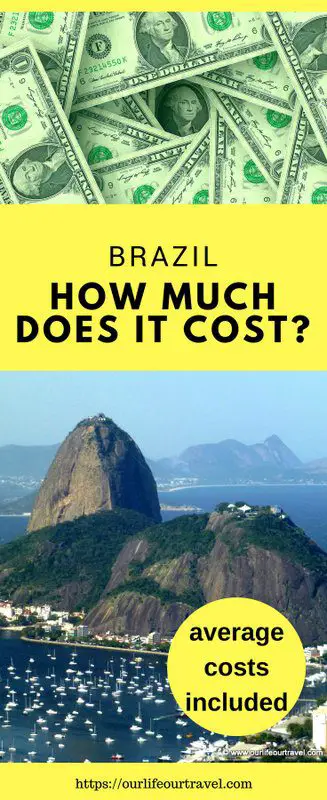
10 thoughts on “Budget Trip to Brazil?! – Travel Costs and Transportation Tips”
This is a super informative blog! Ive always wanted to visit Brazil but have been worried about costs, so this was great to read!
Great info, thanks for sharing this!
Brazil is so high on my bucket list but I’ve always thought it was so expensive. Thank you for sharing this!! Such great tips.
This is such a great guide! I just went to South America for the first time last weekend and I LOVED it and Brazil is top of my list for next places. I’ll definitely be keeping a lot of this in mind!
This is a great guide, and I’ll definitely be keeping it handy – one of the first travel guides I ever read was the Rough Guide to Brazil, and I read it from cover to cover. Have wanted to go ever since, and seeing all of the costs included is brilliant! Thank you!
I really appreciate posts like that as it gives you a short overview about everything you need to know before you start your trip. Seemed like you guys had an awesome time. Thanks for sharing.
This is my lovely country! ♥ I’ve never been to the rainforest, though. Brazil is a huge country and there is SO MUCH to see there! Hope to visit it soon again! Love your post!
You did really good from what I can tell for having gotten to so many different regions in the country in a short span of time. It’s a dream of mine to go to Brazil still, as my sister studied there for 6 months and tells me often of her love of the people and place. Just so much to absorb in one place, giant country. Congratulations on your engagement too!!
Great post! I’ve never been but sure is s great guide to the costs!
Pingback: The traveling Birdie – episode 4. Atins, Brazil – Our life, our travel
Leave a Comment Cancel Reply
Your email address will not be published. Required fields are marked *
Save my name, email, and website in this browser for the next time I comment.
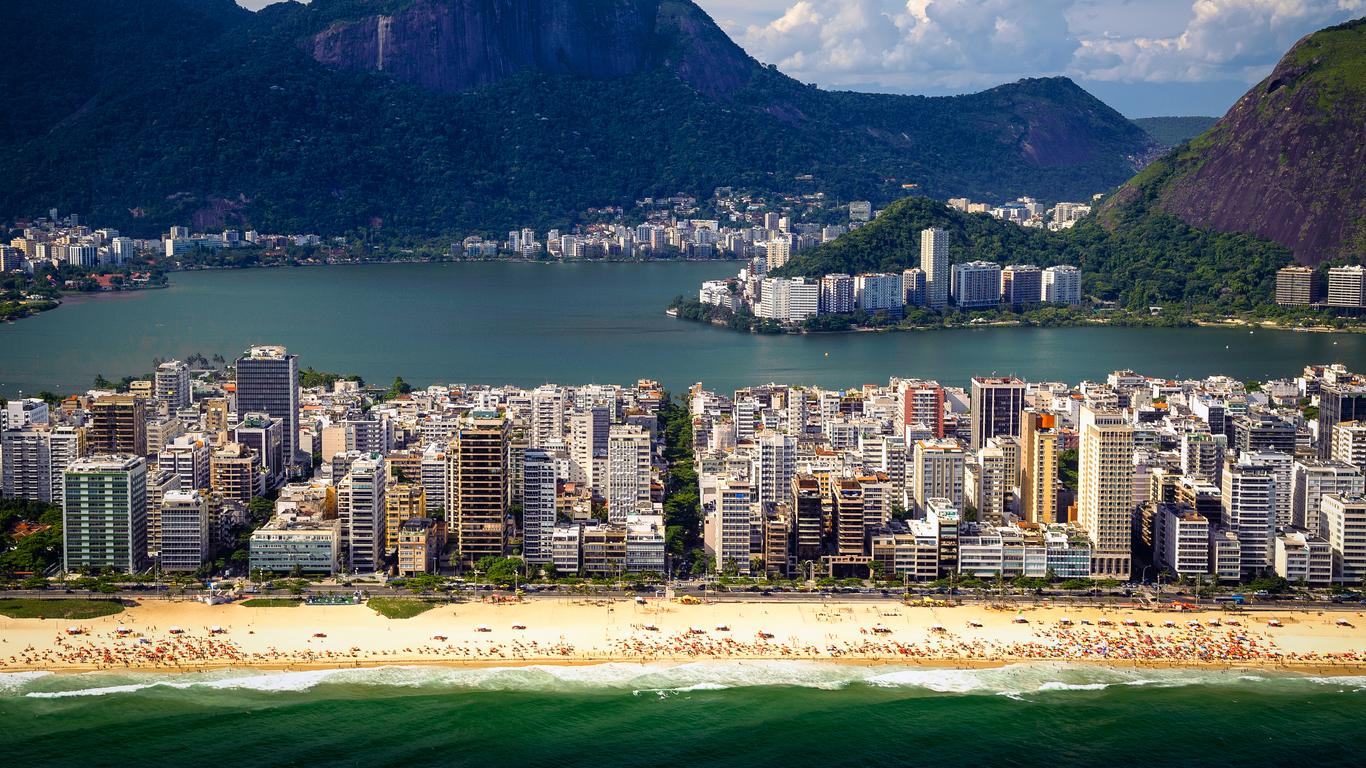
Find cheap flights to Brazil from $220
This is the cheapest one-way flight price found by a kayak user in the last 72 hours by searching for a flight from the united states to brazil departing on 5/15. fares are subject to change and may not be available on all flights or dates of travel. click the price to replicate the search for this deal., search hundreds of travel sites at once for deals on flights to brazil.
Save 22% or more Compare multiple travel sites with one search.
Track prices Not ready to book? Create a price alert for when prices drop.
Filter your deals Choose cabin class, free Wi-Fi and more.
Bundle and save Save money when you bundle your flight + hotel.
Best Brazil Flight Deals
Cheapest round-trip prices found by our users on KAYAK in the last 72 hours
Good to know
Faqs - booking brazil flights, what other cities are accessible to travelers arriving at gru airport from the united states.
Direct flights from the US can get you to Brazil swiftly, where you can explore a few other locations near GRU Airport. Guarulhos, Itaquaquecetuba, Sao Paulo, and Suzano are nearby cities that may be reached from GRU Airport by cab as well as bus. The distance between the cores of each of the abovementioned cities and GRU is under 11 miles.
In case I want to stay closer to athletic events in Italy, which airport should I fly into?
Sports lovers from the US should consider using Rio de Janeiro/Galeo International Airport (GIG) as a point of arrival when traveling to Brazil for vacation. Stadiums like Maracan, Estádio Nilton Santos, and Sã o Januário Stadium are just a few examples of those that host both national and international athletic events in Rio de Janeiro, more so on weekends.
Are there any facilities for pets on the trip from USO to BR0?
Yes. When visiting Brazil, passengers flying on the USO-BR0 route don't need to worry about the safety of their dogs. Most US airports that conduct international flights to Brazil, including MIA, LAX, and JFK, allow travelers to bring their four-legged companions along.
Which airport sees the highest volume of travelers heading from the Northwestern United States to Brazil?
Most passengers flying from the USA's North West regions to Brazil prefer to depart from Seattle Tacoma International Airport (SEA). Sadly, there are no nonstop flights between SEA and BR0. The sole option available to travelers is connecting flights.
Are there nonstop flights to Brazil?
There are flights to Brazil from several cities in the US, including Fort Lauderdale, Boston, Miami, New York, Orlando and more. There are nonstop routes from the US to a handful of international airline hubs in Brazil, including São Paulo, Rio de Janeiro, Brasilia, Belem, Belo Horizonte, Fortaleza and Manaus.
Do I need a visa to enter Brazil?
A Brazilian Visitor’s Visa and a valid passport are required for US nationals to travel to Brazil. The Brazilian Visitor’s Visa can be applied for online or at your local Brazilian consulate.
Where should I fly into to visit Copacabana?
Copacabana is one of Brazil’s most popular areas for international tourists. Because Copacabana itself is one of the neighborhoods that make up the city of Rio de Janeiro, flying into the Galeão International Airport in Rio de Janeiro, which is one of the busiest airports in the country, is the most convenient option.
I want to visit the Iguaçu Falls in Brazil, where should I fly into?
Iguazu Falls is one of Brazil’s natural wonders that draws tourists from all over. If you want to reach the falls, you should fly to Foz do Iguacu International Airport (IGU). Departing from cities like Los Angeles, New York or Atlanta, you can do this route with one layover, making the stop in cities like Sao Paulo or Lima.
How long is the flight to Brazil?
An average nonstop flight from the United States to Brazil takes 12h 40m, covering a distance of 4831 miles. The most popular route is New York - Sao Paulo with an average flight time of 9h 35m.
What is the cheapest flight to Brazil?
The cheapest ticket to Brazil from the United States found in the last 72 hours was $203 one-way, and $436 round-trip. The most popular route is New York John F Kennedy Intl to Sao Paulo Guarulhos Intl and the cheapest round-trip airline ticket found on this route in the last 72 hours was $667.
Which airlines fly to Brazil?
Delta, LATAM Airlines & American Airlines fly the most frequently from the United States to Brazil. The most popular route is from New York to Sao Paulo, and Delta, Japan Airlines and LATAM Airlines fly this route the most.
What are the most popular destinations in Brazil?
The next most popular destinations are Rio de Janeiro (30%) and Brasilia (2%). Searches for flights to Fortaleza (2%), to Salvador (2%) and to Recife (1%) are also popular.
How does KAYAK’s flight Price Forecast tool help me choose the right time to buy?
KAYAK’s flight Price Forecast tool uses historical data to determine whether the price for a given destination and date is likely to change within 7 days, so travelers know whether to wait or book now.

Top tips for finding cheap flights to Brazil
- Enter your preferred departure airport and travel dates into the search form above to unlock the latest Brazil flight deals.
- People with limited mobility traveling from the US to Brazil via air should think about landing at Brasilia International Airport (BSB) from Los Angeles International Airport (LAX). At Los Angeles International Airport, travelers with special needs and mobility concerns can request assistance, including wheelchairs, baggage aid, and medical and safety equipment.
- Airport lounges are believed to be the ideal places to unwind whilst one waits for their flights to various regions. If you intend to unwind at a reasonable lounge before boarding a flight to Brazil from the US, most low-cost travelers opt to depart from Salt Lake City International Airport (SLC). Travelers on a budget can unwind before takeoff in the SLC's Delta Sky Club.
- For US parents who wish to take their children on vacation to Brazil, flying on American Airlines or Delta Airlines from John F. Kennedy International Airport (JFK), Dallas-Fort Worth (DFW), Miami International Airport (MIA) to Sao Paulo Guarulhos international airport (GRU) might be the best alternative. Year-round direct flights from the USA to Brazil are offered at these airports. The likelihood that your children will be fatigued before they arrive in Brazil is reduced by the ability to travel from the US to Brazil within the shortest amount of time thanks to direct flights.
- If you're traveling the MIA-GRU flight route and your flight from the US is scheduled to touch down in Brazil at night, you might want to consider making hotel reservations near the GRU Airport. The TRYP by Wyndham São Paulo Guarulhos Airport, located just a few minutes' walk from the airport, is a good option.
- John F. Kennedy International Airport (JFK) is the widely preferred departure airport for the vast majority of travelers coming from America to Brazil. The high preference for this airport is because it is a hub for numerous well-established carriers offering international flights from the USA. Travelers are likely to enjoy flight deals when flying from this airport to Brazil due to competitive pricing.
- When booking your flight to Brazil, you’ll have several options for cities to fly into. São Paulo and Rio de Janeiro host the most international air traffic in the country, and it’s likely that your flight will go through one of these cities even if it isn’t your final destination.
- Since Brazil takes up nearly all of eastern South America, there are several border countries you can fly into to extend your travels and get the most out of your time on the continent. Flying into Montevideo, Bogota and Lima all give you great access to Brazil’s western border, as well as being popular destinations on their own. All of these cities and their respective countries can be entered visa-free with a valid passport for US citizens.
- Looking for some beaches? Plan a trip to Pernambuco, which has some of the most famous beaches in Brazil. To reach Pernambuco, you should fly to Recife International Airport (REC). You will most likely have one layover, normally in Sao Paulo or Fortaleza.
- Visa and Mastercard are widely accepted in Brazil, but it can be a good idea to carry some denomination of the local currency (Brazilian Reals) for restaurants and other places that don’t accept cards. ATMs are widely available in international airports like São Paulo and Rio de Janeiro, as well as many of the smaller airports.
- For travelers heading to the Amazon Rainforest, there are a few different access points available. One of the most convenient ways of getting to Amazonas is by flying into Manaus, which houses an international airport that operates flights to and from the United States. Manaus is in the middle of the region, so there are reserves and rainforests to explore in every direction.
Top 5 airlines flying to Brazil
Seat back monitors and outlets were dead and not working.
Everything was great except for the seat. The backrest would not stay in the upright position.
I usually have a positive experience with Delta. Complimentary upgrades are always nice!
Flight delayed about 2 hrs so it made it a VERY late night
The crew, food, and entertainment were all good. But my screen had some sort of bug where if I turned it off, it would turn back on after 2-5 minutes. At full brightness. It made it very hard to get any shut-eye on the overnight flight. Also, the older Boeing plane, while nicely cared for (and no doors fell off 😅👏) doesn't have the nice air quality of newer planes. So I felt a bit greasy by the time we landed in Sweden.
It was a crowded flight. They did the best they could.
Service was good for such a short flight. Small plane but smooth flight.
Worst flight in my life. Only was scheduled for a 45 min flight to get our connection flight. It was late by 40 minutes and we missed our connection. Delta was totally useless trying to help and unable to get my family on the next flight because they overbooked it Thus had to get a hotel at my expense and lost a day at Disney as a result. Cost me about a $1000 if you add 2 hotels meals shuttles etc to get thru the day Awful customer service by Delta in Detroit totally useless people
The experience was good and the flight departed on time and landed early
The flight was delayed but we got to our final destination.
Copa performed as expected for the amount of money I was willing to spend for the flight; it wasn’t exceptional but it was not bad in any way either. The crew was good; friendly and straightforward. The food was airplane food, so no expectations there and the entertainment was lacking but that was my fault for owning an IPhone with a charging port that’s not compatible with the rest of the world. I’d fly Copa again.
Left my bags in origin city on a business class ticket , spent about 2-3 days in the same clothes plus the flight .
the planes are not modern there are no phone chargers
As usual, the flight with normal legroom was not very comfortable, but the second flight was much better because we had paid for extra legroom. It was very nice to check our bags without an extra fee.
LOCKED MY BAG WITHOUT CONSENT. Had to have my zippers cut upon arrival in Costa Rica.
Everything was as you would expect in coach - fine. Flight was close to on time.
No air in the middle rows. Had a hard time breathing. Was dying of heat.
Horrific checkin procedure with neither Delta nor Latam figuring out how to check me in. 4 hrs on customer support with both and both airlines pointing to each other who should do checking. I was not checked in until morning of flight, which for international flight is concerning.
It was a good experience, the flight was a little too long & the food was ok
the flight from Boston to Curitiba was on time actually 30 minutes earlier. latam was not able to unload the luggage for custom checkup in Sao Paulo ii took two and half hours . i missed the flight to Curitiba spend the night in hotel and then flying in the morning to Curitiba
Tough flight with turbulence… I was told by a fellow passenger that it is common. Nonetheless, very stressful. Cordial staff.
Very unprofessional staff in the checking and boarding. There was no space for my carry-on bag, which is understandable for a full flight. However, the rudeness in answering my questions about my bag were unnecessary. Shaming and threatening a passenger to be left behind was something I had never experienced (I am 57 years old and a Skymiles member) before. At a minimum, the boarding staff (Krystal Mejia and her manager Dee) should undergo further training on cultural sensitivity and professional skills on speaking with passengers. Krystal, just because I have dark hair and “look Latina” does not mean I can speak Spanish. Your assumption and threatening words until the very ending of my boarding (door of the airplane) were not only unnecessary and stressful but something that a passenger should not experience before boarding.
The flight was overbooked and the solution gave was unrespctful. I arrived 4 hour in advance in the airport and only after 2hous was possible suggest a different ticket with another company LATAM, I have accepted, but when I was checking in at LATAM the tickets was issued without luggage, what it is absurd since I have bought my tickets including it since the beginning. Due to the timing for the next flight was not possible return to Avianca to claim due to the distance between Both companies Avianca and Latam since were located in different terminals. I have insiste to the crew of Latam to call Avianca to solve it, but they could help they were alleging that only paying a thousand pesos Mexicans ($1,000 MXN) to dispatch my luggage would be accepted and I have no money at all. So I had to beg for others passagens, it was an humiliating to exchange luggage with who was platinum in order to return back the luggage in the connection airport in Brazil (GRU). I have no clue that a judicial process would be taken from my side due the lots of stress in sequence by the non professional treatment with a passenger that was just following everything said by Avianca.. Long hours of waiting until next flight and only arrive at final destine in 6hs later..
The flight from PDX to New York was cancelled, and I got rebooked one day later. Because of this I missed a meeting at my final destination, EZE. I now need to stay longer in Argentina, and was told the tariff difference was $780 plus $150 penalty! I am not using my return ticket, and have purchased a one way ticket EZE-PDX for $606 with another airline. SHAMEFUL
No water for a 5 hour flight entertainment not working seats with little room for knees when person in front of me reclined kept bumping my knees.
I don't think anyone actually reads these comments, so I won't spend much time on this submission. If you want to talk, you know how to reach me. The D/FW manager of Avianca (self-identified), Juan Calderon, insisted I buy an onward ticket from San Salvador even though I have diplomatic status in El Salvador and live here. It cost me $1,393 and Mr Calderon would not let me make the ticked flexible so I could get a refund. He went out of his way to be rude to me. He gave me seat 32K -- windowless window seat in the last row and did not offer to let me upgrade even though there were plenty of seats. I have flown well over a million miles in my life and this is the worst experience I have ever had. I would like a refund on the ticket I was forced to buy. Just awful!
This is the Spirit of Latino travel. And don’t even get me started on customer service.
No comfort at all. You should add at least 1 meal or a bottle of water. I wanted to buy one sandwich and everything was gone.
Awful. I checked in online and there was no option to pay for baggage, at the airport when I checked in my baggage was received and Iwas not charged. When I got to LA during the boarding process I was told I didn't pay for baggage, the crew resolved I was let in the plane. When I got to my final destination my baggage was not there. It took me two days to receive my baggage. Bad service ever!
There was no food or drink service, couldn’t even get a glass of water for free. It was a long and expensive flight to not offer food or beverage on the plane.
It is better at the jfk than my home country. It was very easy and everything was on time.
There is no food. There is no in-inflight entertainment. The seats are cardboard. The airline is a living hellscape.
My experience was amazing! They helped my elderly mother board on early through a wheelchair and were accommodating to have us sit together since our seats were in different locations. When landing at the airport in GUA they were very helpful with full of hospitality.
Discomfort has become a feature in Avianca flights. That isn’t terrible on short, local flights (most of them 1-2 Hrs)… but a 7-Hr flight with no water, no coffeee, no nothing (unless you buy it) is just not right. Uncomfortable seats, almost inhuman space between chairs, in long-haul flights needs to be reviewed by airline. And unavailable entertainment system doesn’t help either. Flight was safe and on-time, which isn’t easy to achieve. But all other features aren’t features: they’re a modern way of torture. Avianca really needs to up their game, or bluntly declare: we’re an ultra low-cost airline, and fees will drop accordingly.
Comfort of seats, ease of boarding. Food selection could be better
i suspect i caught flu on this flight as i could hear someone coughing a few rows back and ended up with flu a few days later. also tiresome to have to watch movies on my device by holding up smartphone screen, would have liked to have in seat display.
Flight was fine. It took an unusually long time to have baggage delivered to the carousel in ORD.
No problems with flight. Even though I had a short layover in DFW, I was still able to easily make my connection.
American Airlines continues to price it can provide the least comfortable passenger experience in the air. This legacy carrier rivals the budgets for both terrible seats and inadequate amenities. I am a 5’7” woman who is not wider than a coach seat (even on these narrow bodied aircraft). My 3.5 hour flight was terribly uncomfortable because the leg room is inadequate (my knees hit the seat on front of me even when it was not reclined); the seat barely reclines; and the foam padding is worn thin to the extent one can feel the metal supports of the seat. Add to this the fact that the aisle is super narrow, so that the drink cart literally scrapes the arm rest of the aisle seat. It’s basically torture.
Food options were limited which is absolutely embarrassing for a Flight of this size The staff did not come around as much and I am not accustomed to such poor service from American Airlines Drinks I believe were limited to soda and water
Plane took off without me, my stepdad and a dozen other passengers. It went from an hour delay to boarding in 15 montures without notifying anyone. Names were not called overhead. Now I’m missing a day of work and stuck in Charolette overnight paying for a hotel and Ubers out of pocket
I arrived to the airport 2 hours before my American Airlines flight was scheduled to take off. I have TSA pre-check. The airport was crazy packed when I arrived. After momentarily standing in the pre-check line, the TSA agent said that I am not pre-check. Of course I said that I am because I entered my KTN number on all my traveling sites and programs. I had to get out of line and go back to the AA counter to discover that American Airlines did not add my KTN to my boarding pass. I had to call TSA to find out my number, then have AA enter it onto my boarding pass. The emblem would not load onto my boarding pass. By this time, I decided to use my Clear in order to get through TSA but the line was ridiculous long. By the time I made through TSA, I missed my 11:08am flight and was re-booked for the 5:30pm. This is after the AA employee told me I should have gotten to the airport early. AA use to be a dependable airline not I use them only if I have too.
Average - flew with Jet Blue internal and it was far more comfortable and better food and entertainment. Notable difference
Flight from SBP to DFW 1. They rerouted us through PHX 2. Delayed flight out of SBP for 3 hrs so we missed our connection Downgrade on rerouted flight. Back of the plane, center seats, didn't sit together 4. Return flight out of DFW same exact thing. Delayed, missed connection, Downgrade + they lost our luggage! A complete mess.
Book Cheap Brazil Plane Tickets
Recent round-trip flight deals, search by stops, search by airline, search by price, recent one-way flight deals, last minute flights to brazil, last minute flight, train and bus deals, flights to brazil, return flight deals:.
Brazil - United States
Cabin classes:
Browse origins:.
- Flights »
- United States
Browse destinations:
- Worldwide »
- South America »
Expedia Rewards is now One Key™

Brazil Vacations & Trips from $1,155
Book a hotel + flight or car together to unlock savings.
- Things to do
I only need accommodations for part of my trip
Your Brazil Vacation
Answer the call of adventure with a tailor-made vacation package to Brazil. Wherever it is you're headed and whatever you plan to do, get ready to immerse yourself in a destination with so much to offer. With so much to see and do on a trip to Brazil, it can be tricky to know where to begin. Kick off your travels in Rio de Janeiro at Gávea Hippodrome and Gavea Golf and Country Club — two leading family-friendly attractions here. Another city worth adding to your itinerary is Sao Paulo . Lovebirds seeking a romantic escape here shouldn't miss Municipal Theatre of São Paulo and Gamaro Theater. From the instant you book your Brazil vacation to the second you come back home, Expedia will take care of you each step of the way.
Top destinations in Brazil
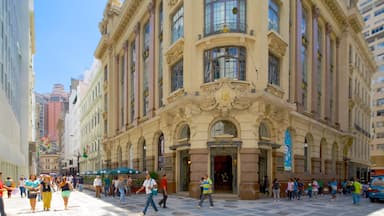
Rio de Janeiro

Florianópolis
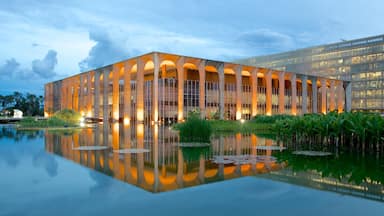
The Latest Brazil Vacation Packages

Grand Palladium Imbassai Resort and Spa - All Inclusive
Reviewed on Sep 6, 2023

Melia Paulista
Reviewed on Jan 26, 2024

Melia Ibirapuera
Reviewed on Feb 18, 2024
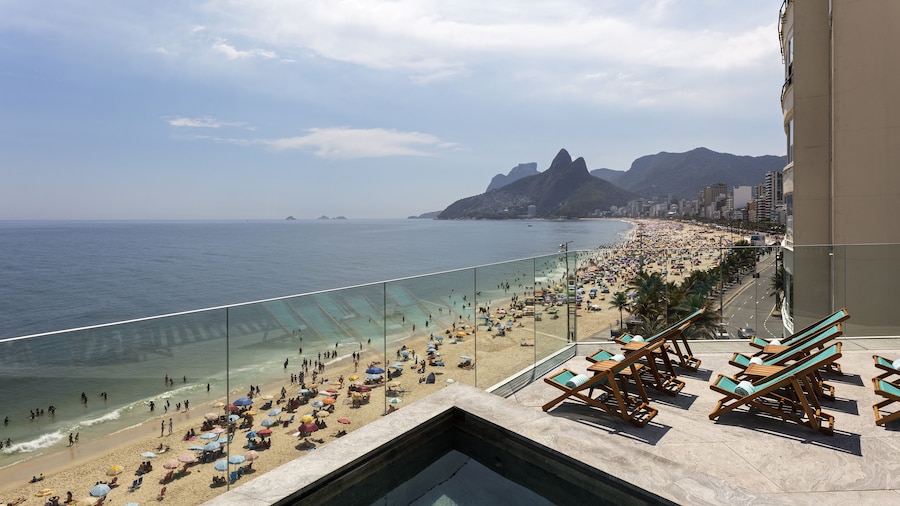
Hotel Arpoador
Reviewed on Mar 9, 2024

Hotel Unique
Reviewed on Mar 27, 2024
Brazil Vacation
The fifth-biggest country in the world and the largest in South America, Brazil is bursting with attractions. From the mighty Amazon Rainforest and pulsing rhythms of Rio Carnival to iconic Ipanema beach, this extraordinary nation is a feast for the senses.
Brazil Hotel + Flights
Be a savvy traveler — save your hard-earned cash by bundling your hotel and flight bookings with Expedia. Starting at $26 a night, there are 58,792 hotels to choose from. Add extras like car rental and experiences to your Brazil Vacation Package and take your savings to the next level. If you’re seeing the sights in Rio de Janeiro, why not get some great views from natural vantage points and add a hiking tour to your package?
Your Brazil Vacation Itinerary
Day 1: Fly into São Paulo-Guarulhos International Airport and start your getaway in the sprawling city of São Paulo. Don’t miss well-known attractions like Mercadão Municipal, Catedral da Sé and Parque do Ibirapuera.
Day 2-5: Consider booking a rental car and driving six hours north to Rio de Janeiro. Immerse yourself in the city’s famous party vibe and enjoy incredible natural attractions like Copacabana and Ipanema beaches and Tijuca National Park.
Day 6-9: Hop on a boat and spend a few days living in the tropical island paradise of Ilha Grande. Pristine beaches and idyllic waterfalls will take your breath away here.
Brazil Information
Join in the celebrations for Brazil’s Republic Day, held November 15 each year. You’ll find festivities in many locations around the country, including Brasilia.
If taking time out in Brazil’s national capital is on your itinerary, browse our Brasilia Vacation Packages for some budget-friendly options.
For a hassle-free vacation, check out our Brazil All Inclusive vacations — there’s bound to be one that’s perfect for your travel plans.
Top Vacation Destinations in Brazil

Relax with Cruz vacation packages
Cruz is a relaxing and quaint city in Brazil that you visit if you're trying to get away from the hustle and bustle of crowds. This city is home to modest shops and eateries that are especially useful for travelers who are trying to keep their trip budget-friendly. Much of the business is local, with community members offering their own artworks and recipes up for sale.

Visit a sanctuary with Fernando de Noronha vacation packages
Fernando de Noronha is an ecological sanctuary where you'll find pristine beaches among an archipelago that isn't linked to the mainland. Snorkeling and diving are popular here, but nothing that overtly disturbs the wildlife is allowed. The entire area is preserved as a UNESCO World Heritage Site, so you'll have to be courteous when exploring its waters and diverse array of marine life.

Find endless fun with Rio De Janeiro vacation packages
Rio De Janeiro is a world-famous city where you can enjoy pretty much anything you might be interested in. You can enjoy natural features by the towering mountain alongside numerous historical sites. Several events also dominate this city, including Carnival. Music lovers can see live performances of samba and bossa nova, 2 genres that this city is especially well-known for.

Explore diversity on a Sao Paulo vacation
Sao Paulo is one of the most diverse cities in the country, where you'll find heavy Arabic, Italian, and Japanese influences. Because of this, you'll find a wide variety of cuisines from the different regions to try along with new creations that result from the combinations available here. The local museums are also quite comprehensive, showcasing history and the Portuguese language.
Brazil Essential Information
Prepare for your brazil vacation with our essential travel info, brazil hotel deals.

Reviewed on Apr 17, 2024

Reviewed on Dec 22, 2023

Reviewed on Apr 16, 2024
Explore other types of vacation packages
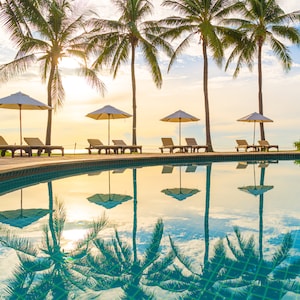
All Inclusive Vacations
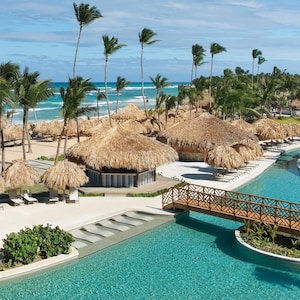
Beach Vacations

Kid Friendly Vacations
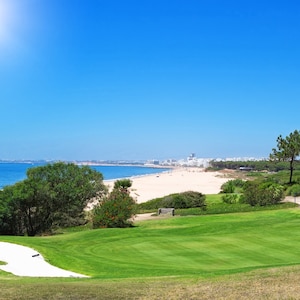
Golf Vacations
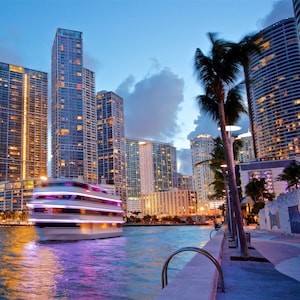
Luxury Vacations

Romantic Vacations
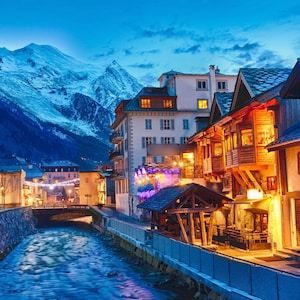
Ski Vacations

Where to go when
Frequently asked questions, discover the most popular places to visit in brazil, paulista avenue.
See the financial and cultural heart of one of South America’s busiest cities before unwinding in a bar full of local business people at the end of the day.
Interlagos Race Track
Interlagos Race Track is one of the more well-known attractions to visit during your trip to São Paulo. Experience the art scene and museums in this culturally rich area.
Copacabana Beach
More than just a stretch of sand, Rio de Janeiro’s most famous beach is where locals and visitors from all over the world come to relax, strut, pose and play.
Other vacations you might like
- Top cities in Brazil
- Vacations and getaways similar to Brazil
- Popular destinations in Brazil
- Best vacation destinations by month
- Expedia's Latest Trends
- Sao Paulo Vacations
- Rio de Janeiro Vacations
- Gramado Vacations
- Salvador Vacations
- Curitiba Vacations
- Fortaleza Vacations
- Belo Horizonte Vacations
- Porto Seguro Vacations
- Campos do Jordão Vacations
- João Pessoa Vacations
- Maceió Vacations
- Foz do Iguaçu Vacations
- Peru Vacations
- Colombia Vacations
- Ecuador Vacations
- Chile Vacations
- Argentina Vacations
- Venezuela Vacations
- Bolivia Vacations
- Paraguay Vacations
- Falkland Islands Vacations
- Uruguay Vacations
- Rio de Janeiro State
- Santa Catarina
- São Paulo State
- Bahia State
- Minas Gerais
- Federal District
- Rio Grande do Sul
- January Vacations and Deals
- February Vacations and Deals
- March Vacations and Deals
- April Vacations and Deals
- May Vacations and Deals
- June Vacations and Deals
- July Vacations and Deals
- August Vacations and Deals
- September Vacations and Deals
- October Vacations and Deals
- November Vacations and Deals
- December Vacations and Deals
- Travel Planning Guide
The Prices of Tours to Brazil

- Package Tour Options
- Typical Tour Costs
- The Best Tours
- Budget Tours
- Luxury Tours
- Three-Day Tours
- Other Types of Tours
Are group tours to Brazil worth it?
Is a group tour cheaper than solo travel to brazil.
- Group Tours vs. Indepenent Travel in Brazil
How far in advance should I book my tour to Brazil?
How many people are in group tours to brazil, how much time do i need for a group tour to brazil.
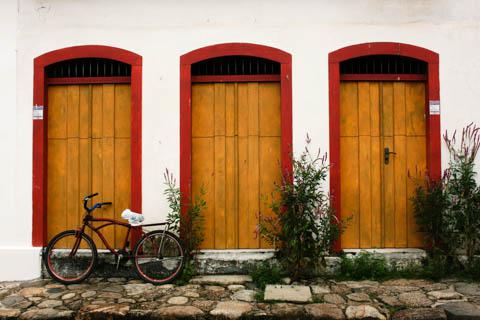
Recommended
Pantanal, bonito & iguazu adventure 9d/8n (from foz…, what are the package tour options in brazil.
You'll be surprised at the array of tours in Brazil, as there is something for everyone. It's no wonder that visitors can't get enough of these tours, boasting an impressive average guest rating of 4.23 out of 5 stars. Picture yourself joining a group of like-minded adventurers, with an average maximum size of 19 people, ensuring a fantastic blend of social and personalized experiences. The average tour length spans 7 days, with tours ranging from 2 to 42 days long. For physical activity , the tours are marked as easy, moderate, relaxing, serious, and heart-pumping, with a prevalent number on easy tours. When it comes to transportation , tour options are organized as coach / bus and self drive, with a majority being coach / bus tours. With our thorough analysis of 88 tours, we've found the best. So rest assured that Brazil has something to captivate every kind of traveler.
- The length of tours range from 2 to 42 days.
- The maximum group size of tours range from 4 to 75 people.
The tour packages are also categorized as follows:
- Moderate (23)
- Relaxing (5)
- Serious (3)
- Heart-pumping (1)
- Coach / Bus (2)
- Self Drive (1)
- Family (66)
- Tours Available 88
- Average Rating 4.23
- Average Group Size 19
- See More See Tours in Brazil
How much do organized tour packages to Brazil cost? Are tours expensive?
When we look at all available tours, there's a world of exciting options for travelers. Considering the financial aspect, the average daily price for tours in Brazil stands at a remarkably economical $245 per day . Analyzing the comprehensive data gathered from 88 tours, the overall average cost of all tours is calculated to be $1,885 . Delving further into the pricing details, the cheapest tour starts at an attractive $171, while the most luxurious experience tops out at an impressive $12,433. So, whether you're looking for a wallet-friendly adventure or aiming to pamper yourself with opulence, Brazil boasts an array of tours that cater to diverse preferences and ensure an unforgettable experience.
- Tours to Brazil range in price from $171 to $12,433, based on data from 88 tours.
How much should I pay for a tour through Brazil?
This table shows the range of guided, organized, and all-inclusive tour prices that visit, start in, or end in Brazil. If you're trying to figure out how much you should pay for an organized tour, this table breaks down the costs by price range.
(All tour prices are in US Dollars before taxes, and come from a base price that is reported by TourRadar. Peak season prices can vary significantly, particularly in destinations where seasonal travel fluctuates dramatically. Price costs can also vary by group size, amenities offered, transportation type, promotional sale prices, and addons not inlcuded in the base prices.)
Prices for the Best Tours to Brazil
What are Brazil's top rated tour packages? And how much do they cost? These tours are the highest rated tours by previous guests.
Considering only the top 25% highest rated tours, a wide range of terrific options in Brazil are offered. Based on data from 22 tours, the average daily price for the highest-rated tours to Brazil is a surprisingly affordable $257 per day , and the overall average total price is $1,854 . The cheapest tour is $299, and the most expensive tour is $6,720. Also, previous customers have mostly enjoyed these tours because the average guest rating is 4.8 out of 5 stars. If you're looking for a the highest-rated tour to Brazil, these are some terrific options.
What are the best tours to Brazil?
These are the highest rated tours from previous customers.
Pantanal, Bonito & Iguazu Adventure 9D/8N (from Foz do Iguacu)
Iguazu discovery air-expedition 12d/11n, rio de janeiro and amazon rainforest sustainable experience, jalapão experience, prices for the best budget tours to brazil.
When looking at tours in the budget category , a wide range of terrific options in Brazil are offered. Based on data from 24 tours, the average daily price for budget tours to Brazil is a surprisingly affordable $182 per day , and the overall average total price is $1,076 . The cheapest tour is $205, and the most expensive tour is $4,100. Also, previous customers have mostly enjoyed these tours because the average guest rating is 3.54 out of 5 stars. If you're looking for a budget tour to Brazil, these are some terrific options.
What are the best budget tours to Brazil?
Amazon jungle - 3 days, manaus amazon jungle adventure 5d/4n, prices for the best luxury tours to brazil.
Considering only luxury level tours, visitors will find a wide range of terrific options when choosing a tour to Brazil. The average daily price for luxury tours to Brazil is a surprisingly affordable $263 per day , with the overall average cost of all tours being $2,044 (based on data from 59 tours). The cheapest tour is $171, and the most expensive tour is $6,596. Also, visitors tend to love all of these tours because the average guest rating is 4.49 out of 5 stars.
What are the best luxury tours to Brazil?
Rio de janeiro and foz do iguazu sustainable experience, 4 days north pantanal - unearthing exotic treasures in the…, prices for the best 3-days or less tours to brazil.
Considering only the shorter 3-days or less tours, a wide range of terrific options in Brazil are offered. Based on data from 11 tours, the average daily price for 3-day tours to Brazil is a surprisingly affordable $195 per day , and the overall average total price is $436 . The cheapest tour is $171, and the most expensive tour is $850. Also, previous customers have mostly enjoyed these tours because the average guest rating is 3.22 out of 5 stars. If you're looking for a 3-day tour to Brazil, these are some terrific options.
What are the best 3-days or shorter tours to Brazil?
Petrópolis x teresópolis crossing - the most beautiful trekking in…, manaus amazon jungle adventure 3d/2n, amazon jungle (air-conditioned) - 2 days, prices for family tours to brazil.
When analyzing this category of tours, in Brazil you'll discover plenty of fantastic family options. Get ready to be pleasantly surprised, as the average daily price in this category is an affordable $243 per day . Furthermore, the overall average cost of all tours stands at a reasonable $1,885 , based on data from 66 available tour options. Now, for the overall price range: the cheapest tour available comes in at a pocket-friendly $205, while the most luxurious option reaches a maximum of $12,433. What's more, visitors can rest assured that these tours are well liked, as they boast an impressive average guest rating of 4.2 out of 5 stars. So, get ready to explore Brazil and embark on an unforgettable journey that will make the memories of a lifetime.
What are the best family tours to Brazil?
Prices for active adventure tours to brazil.
Considering these specific tours, in Brazil you'll discover plenty of fantastic active adventure options. Get ready to be pleasantly surprised, as the average daily price in this category is an affordable $228 per day . Furthermore, the overall average cost of all tours stands at a reasonable $1,593 , based on data from 20 available tour options. Now, for the overall price range: the cheapest tour available comes in at a pocket-friendly $600, while the most luxurious option reaches a maximum of $6,450. What's more, visitors can rest assured that these tours are well liked, as they boast an impressive average guest rating of 4.34 out of 5 stars. So, get ready to explore Brazil and embark on an unforgettable journey that will make the memories of a lifetime.
What are the best active adventure tours to Brazil?
Prices for wildlife tours to brazil.
When we look at this type of tour, the array of tour options available in Brazil is diverse. The average daily price for wildlife tours stands at a very reasonable $244 per day . Drawing from an extensive analysis of 18 tours, we've determined that the overall average cost of all tours is a modest $2,147 . It's worth noting that among these options, the cheapest tour can be enjoyed for as little as $171 per person, while those looking to splurge a bit more can opt for the most expensive tour at $6,450. The popularity of these tours speaks volumes, with an average guest rating of 3.92 out of 5 stars, showcasing the satisfaction and appreciation expressed by previous customers.
What are the best wildlife tours to Brazil?
Manaus amazon jungle adventure 4d/3n, prices for in-depth cultural tours to brazil.
For this specific type of tour, a wide range of terrific options in Brazil are offered. Based on data from 14 tours, the average daily price for in-depth cultural tours to Brazil is a surprisingly affordable $206 per day , and the overall average total price is $1,226 . The cheapest tour is $171, and the most expensive tour is $4,430. Also, previous customers have mostly enjoyed these tours because the average guest rating is 3.87 out of 5 stars. If you're looking for a in-depth cultural tour to Brazil, these are some terrific options.
What are the best in-depth cultural tours to Brazil?
Rio de janeiro: the beach capital of south america, amazon rainforest experience, prices for historical tours to brazil.
For these tours, visitors will find a wide range of terrific options when choosing a tour to Brazil. The average daily price for historical tours to Brazil is a surprisingly affordable $187 per day , with the overall average cost of all tours being $2,003 (based on data from 10 tours). The cheapest tour is $297, and the most expensive tour is $5,362. Also, visitors tend to love all of these tours because the average guest rating is 5 out of 5 stars.
What are the best historical tours to Brazil?
Brazil's natural paradises, prices for sightseeing tours to brazil.
Looking at this type of tour, in Brazil you'll discover plenty of fantastic sightseeing options. Get ready to be pleasantly surprised, as the average daily price in this category is an affordable $276 per day . Furthermore, the overall average cost of all tours stands at a reasonable $2,980 , based on data from 7 available tour options. Now, for the overall price range: the cheapest tour available comes in at a pocket-friendly $230, while the most luxurious option reaches a maximum of $6,450. What's more, visitors can rest assured that these tours are well liked, as they boast an impressive average guest rating of 4.4 out of 5 stars. So, get ready to explore Brazil and embark on an unforgettable journey that will make the memories of a lifetime.
What are the best sightseeing tours to Brazil?
Pure brazil, prices for beach tours to brazil.
For just this category, the array of tour options available in Brazil is diverse. The average daily price for beach tours stands at a very reasonable $197 per day . Drawing from an extensive analysis of 7 tours, we've determined that the overall average cost of all tours is a modest $1,680 . It's worth noting that among these options, the cheapest tour can be enjoyed for as little as $416 per person, while those looking to splurge a bit more can opt for the most expensive tour at $4,752. The popularity of these tours speaks volumes, with an average guest rating of 5 out of 5 stars, showcasing the satisfaction and appreciation expressed by previous customers.
What are the best beach tours to Brazil?
Prices for festival & events tours to brazil.
Considering these specific tours, a wide range of terrific options in Brazil are offered. Based on data from 6 tours, the average daily price for festival & events tours to Brazil is a surprisingly affordable $394 per day , and the overall average total price is $2,473 . The cheapest tour is $1,050, and the most expensive tour is $4,100. Also, previous customers have mostly enjoyed these tours because the average guest rating is 4.8 out of 5 stars. If you're looking for a festival & events tour to Brazil, these are some terrific options.
What are the best festival & events tours to Brazil?
Private experience @ rio de janeiro - carioca spirit and…, rio carnival experience, prices for hiking & trekking tours to brazil.
When we look at this type of tour, visitors will find a wide range of terrific options when choosing a tour to Brazil. The average daily price for hiking & trekking tours to Brazil is a surprisingly affordable $250 per day , with the overall average cost of all tours being $814 (based on data from 6 tours). The cheapest tour is $390, and the most expensive tour is $1,450. Also, visitors tend to love all of these tours because the average guest rating is 4.65 out of 5 stars.
What are the best hiking & trekking tours to Brazil?
While independent travel is an option in Brazil, the complexities of planning and navigating the challenging transportation options can make booking a tour a better choice. Considering the convenience and potential challenges of visting the country, most travelers find the investment in a package tour to be well justified. Given the potential difficulties of creating your own itinerary, verses leaving the transportation, lodging, activities, and meals to experienced experts with a tour ensures a stress-free experience, allowing you to fully enjoy your trip.
Navigating the travel costs of Brazil often reveals that tours can be a pocket-friendly alternative to independent travel, depending on the tour's specifics such as the destinations, travel style, duration, and other factors. Naturally, every tour and independent trip will be different and have its own cost. Typically, tour providers bundle an array of offerings into an attractively competitive price, often rivalling the expenditure of an independent journey with a similar level of luxury. The average daily expenses for a tour in Brazil is calculated to be approximately $245, yet numerous tours fall below this price. Prices for tours in Brazil span from $171 to $12,433. When comparing tour costs against independent trips in Brazil, it's wise to factor in that most organized guided tours include accommodations, transport, guides, meals, entry tickets, and much more. So, when comparing tour packages with trips planned by yourself, keep in mind the differences because it's not always an equal comparison. To paint an accurate picture of the trip and its costs, make sure you know what is included in the tour package before comparing its price against your own trip plans. Also, diving deep into the costs of independent travel in Brazil is also necessary to find an accurate comparison.
Group Tours vs. Independent Travel in Brazil
For many travelers, the decision between an organized tour package and independent travel can be quite challenging. However, considering the variety of enticing deals and sales available, traveling in Brazil during 2024 or 2025 presents an excellent opportunity to explore the benefits of organized tour packages. These packages, which typically cover accommodations, entry tickets, food, and transportation, offer exceptional value. Moreover, the inclusion of knowledgeable guides ensures a seamless and enriching experience, alleviating the need for extensive trip planning. Conversely, independent travel provides the advantage of greater flexibility and control over your travel plans, allowing you to adjust your schedule and budget to suit your preferences. It also facilitates a closer connection with local cultures and enables you to visit destinations that may not be included in organized tours.
What are the benefits of a package tour to Brazil?
Opting for a tour while traveling brings numerous benefits. One of the best parts of a tour is the unmatched convenience of having every aspect of your journey meticulously arranged. With transportation, accommodations, and activities planned out, you can enjoy a stress-free experience, knowing that all the essentials have been taken care of. This eliminates the need to worry about finding suitable accommodations, organizing logistics, or potentially overlooking any key attractions. Furthermore, the majority of tours offer all-inclusive pricing, allowing you to know the exact cost of your trip beforehand. Benefits of a tour include
- fixed budget
- reliable service and schedule
- knowledgeable guides
- comfortable amenities
- not having to plan
- meeting other like-minded travelers
- eliminating risks
What are the benefits of independent travel in Brazil?
Independent travel provides freedom, control, and flexibility that that many travelers love. By traveling on your own, you have the freedom to choose your accommodation, visit the attractions that interest you, eat at your preferred times, and explore the destination at your own pace. This level of independence also allows you to have more control over your budget, schedule, itinerary, and the level of comfort you desire during your travels. Benefits also include:
- flexible budget
- flexible schedules
- in-depth cultural opportunities
- off-the-beaten-path destinations
For your tour to Brazil, it is advisable to plan and book well in advance, ideally a few months or more beforehand. While it is not uncommon for some individuals to secure their tours up to a year in advance, our experience suggests that reserving your spot approximately 6 to 9 months prior to the departure date is usually sufficient. It is important to note that many tours tend to reach full capacity early, so booking early guarantees your place on the trip. Additionally, booking early often comes with the advantage of potentially significant cost savings, as tour companies frequently provide early booking sales and discounted prices. However, it is worth noting that some tour companies may occasionally offer last-minute discounts for tours that have available spots. Yet, waiting for such discounts carries the risk of missing out on a spot if the tour becomes fully booked.
The number of travelers on tours in Brazil can vary greatly, ranging from 4 to 75 individuals, with an average group size of 19 people. However, it is important to note that the size of the tour does not necessarily determine its quality or price.
You'll likely need around 7 days for a tour to Brazil, as this is the average length of most organized tour packages. Tours in Brazil can last anywhere from 2 to 42 days, or sometimes longer. Keep in mind that longer tours tend to cost more money, but will actually get cheaper by the day. Also, longer tours will usually allow you to see more destinations at a reasonable pace, making them a generally better value.
Where do group tours go in Brazil?
When it comes to tours in Brazil, there is no shortage of options that take you to different locations within the country. These tours are known for their popular stops at Rio de Janeiro, Manaus, Foz Do Iguacu, Paraty, Salvador, Fortaleza, Cuiaba, and Campo Grande, giving you the opportunity to discover the variety and allure of the region.
What tour and travel companies offer packages to Brazil?
A wide range of tour companies offer trips to Brazil. Some companies are large international brands, while others are more regionally or locally based. The benefits and challenges of each company can vary based on its size and level of experience. International companies often have well-established reputations, and tours are rarely canceled due to low turnout. However, they might not have the same local perspectives and insights that you'll find with a smaller, locally based company.
The most popular companies offering tours in Brazil are Bamba Travel , Nattrip , Amazon Amazing Tours , Tangol Tours , and Signature Tours . Some are larger than others, while some are focused on specific regions or types of trips.
What is the best tour company offering trips to Brazil?
People Travel and Experience stands out as the top tour operator in Brazil, boasting the highest-rated tours. Their commitment to excellence and memorable adventures has resulted in a large number of rave reviews from satisfied travelers.
More Information
See also The Best Family-Friendly Tours to Brazil , The Best Wildlife Tours to Brazil , The Best Hiking & Trekking Tours in Brazil , The Best Historical Tours in Brazil , The Best 10-Day Tours in Brazil , The Best One Week (7-Day) Tours in Brazil , The Best 3-Day Tours in Brazil , The Best 2-Week Tours in Brazil , Tours for Outdoor and Nature Lovers in Brazil , The Best Christmas & New Years Tours in Brazil , The Best Coach Bus Tours in Brazil , The Best Adventure Tours to Brazil , The Best Eco Tours in Brazil , The Best Sightseeing Tours in Brazil , The Best Cultural Tours in Brazil , The Best Music Tours in Brazil , The Best Romantic Tours for Couples in Brazil , The Best Nightlife Tours in Brazil , The Best Jungle Trekking Tours in Brazil , The Best Tours Under $1000 in Brazil , The Best Luxury Tours to Brazil , The Best Budget Tours to Brazil , The Best Tours for Seniors to Brazil , The Best Contiki Tours to Brazil , or The Best G Adventures Tours to Brazil for more tour ideas. With so many options, there's a guided tour or vacation package for every type of traveler.
Also, if you're departing from a specific destination, see The Best 3-Day Tours from Foz Do Iguacu , The Best One-Week (7-Day) Tours from Rio de Janeiro , The Best 10-Day Tours from Rio de Janeiro , or The Best 2-Week Tours from Rio de Janeiro for more package tour options.
And for more information on Brazil, see Brazil Travel Costs and Brazil Hotel Costs .
Subscribe to our Newsletter
By signing up for our email newsletter, you will receive occasional updates from us with sales and discounts from major travel companies , plus tips and advice from experienced budget travelers!
Budget Your Trip

Some of the links on this website are sponsored or affiliate links which help to financially support this site. By clicking the link and making a purchase, we may receive a small commission, but this does not affect the price of your purchase.
- Privacy / Terms of Use
- Activities, Day Trips, Things To Do, and Excursions

The Best and Not-So-Best Times to Visit Brazil
Are you planning a trip to the South American gem of Brazil? With its tropical and subtropical landscapes and claim to most of the Amazon River basin, Brazil is the fifth largest country in the world and definitely worth a spot on your bucket list. However, to make the most out of a trip, it’s good to know the best and not-so-best times to visit this vast region.
As a general rule, the best time to visit Brazil is between November and March during the country’s summer months. This wet, humid season brings warmer weather with average temperatures between 80°F and 89°F in most parts of the country.
Before we go into the post, we made this video to help you be sure of what’s the best time to come to Brazil, so definetly take a look:
When is the Best Time to Visit Brazil?
Most guidebooks will tell you that the best time to visit Brazil is during its summer months of December to March. There is a lot to do, and the weather cooperates nicely throughout the country.
But that doesn’t mean Brazil is a no-go at other times of the year. It’s really a year-round destination.
When you should visit Brazil depends a lot on where you’re going and what you want to do during your visit. And, as with any destination vacation, several factors play into choosing the best time to visit:
- High or low season
- Things to do
- Cost of travel
Below, we’ll talk about visiting Brazil during high, low, and shoulder seasons and the pros and cons of each.
Pros of Visiting Brazil During the High Season
The Brazilian summer is the country’s high season, which means Brazil puts on a show for visitors and residents alike. The atmosphere is hot, both in temperature and in attitude. As a result, festivals abound in various locations and for all kinds of reasons.

Brazil’s weather seasons are at opposite times from what they are in the United States and Europe. But its travel seasons are similar to ours: everyone wants to go when the lure of events and activities outweighs any negatives of weather or cost.
Summer in Brazil coincides with sunny but wetter months. It’s rainy year-round in much of Brazil, but summer sees an uptick in precipitation in many areas. (Daily afternoon showers can keep things a bit steamy.) The warmest temps of the year are bearably hot, typically averaging between 80°F and 89°F. However, along the coast, you’ll find everything from subtropical Sao Paulo’s 76°F to Rio’s soaring 104°F.
For those wanting to escape the cold and snow of a northern hemisphere winter, the Brazilian summer months from December to March are the perfect time to visit Brazil, particularly the coastal regions.
And if you happen to be in Rio during rainy weather, these are some suggestions of what to do when it rains in Rio , on our YouTube channel :
Things to Do
Brazil comes alive during the high season. Across the country, event calendars are chock full of festivals and religious and cultural celebrations. Then, starting with Carnatal (an off-season Carnival) in December, things stay lively until the Holy Week of Easter.
The Granddaddy of all celebrations, the world-renowned Carnival, is usually held in February or March, depending on when Lent begins. While Carnivals are held in many places in Brazil, the Carnival in Rio de Janeiro is the most famous and most visited of them all. Parades, elaborate costumes, and 24/7 music, drinking and dancing beckon visitors and Brazilians to cut loose and party.
Other events of note include:
- Reveillon: Upwards of two million partiers dressed in white crowd at Copacabana Beach in Rio to welcome the new year.
- Lavagem do Bonfim: Salvador’s festival of washing the church steps includes all-night dancing and revelry.
- Sommerfest: A summer repeat of Blumenau’s famous Oktoberfest has visitors enjoying brews and brats.
- São Paulo Restaurant Week: São Paulo invites everyone to experience the best in Latin dishes by offering great deals and special menus.
By the way, you can check out more of what to do in Salvador in this video right here:
Cons of Visiting Brazil During the High Season
While visiting Brazil during the high season has its benefits, there are downsides to this time of year. For most people, these aren’t deal-breakers but are definitely worth considering before making travel plans.
A few rain showers don’t deter the crowds from gathering on the beaches and in the cities to enjoy the warm weather and exciting events. Statista.com estimates that Rio’s Carnival in 2020 alone attracted 7 million visitors to its festivities: about 5 million locals and 2 million international guests. So if crowds aren’t your thing, find another time to visit!

However, if you do decide to go to Brazil during high season to enjoy the beach, check out this video about beach etiquette on our YouTube channel :
Travel Costs
Because of these huge crowds, the principle of supply and demand comes into play. Hotel rooms are in short supply, which means higher rates. High season can also mean that hotels may require a minimum number of nights for a stay. Therefore, longer stays coupled with higher rates increase the overall cost of your trip during this time.
If you’re headed to Carnival, you’ll likely find flights to Brazil costing much higher as you get closer to the event. Some travel publications recommend booking flights and hotels several months in advance —even up to a year ahead for international visitors.
Pros of Visiting Brazil in the Low Season
The low season in Brazil is winter. Winter in Brazil runs from June through September and is the least popular time for a visit. This is most likely because far fewer festivals and celebrations attract local and international tourists. For some, though, that can be a good thing.
While Brazil’s low season rarely makes the list of best times to visit, it does have a lot going for it that will entice many visitors. For one thing, Rio will be quieter and less crowded for those who want to admire the history and partake of its culture and food scene.
It isn’t easy to pin down Brazil’s climate due to the size of the country and the diversity of its various regions. But winter, for the vast majority of Brazilians, is a welcome relief from the heat and humidity of summer.
Winter in the northern hemisphere may evoke images of snowbound vehicles and frigid temps for days on end. Brazil’s winter offers mild and dry weather in most of the country. Different cities see different temps, so it’s good to check your itinerary against the expected weather.
- Rio de Janeiro: Expect sunny days with highs around 75°F and chilly nights with lows into the 60s. There is very little rainfall.
- São Paulo: June is the coldest month, but even then, temps only average in the mid-60s.
- Brazilia: Daytime temps are a pleasant 77°F – 82°F year-round, although nights can dip into the 40s. Winter days are sunny and dry.
- Salvador: Pleasantly warm year-round; the temps here hang between low 80s and mid-90s. Occasional rain showers cool things off.
- The Amazon: Often called “summer” by locals, the official winter months include unpleasantly high temps that stay in the 90s but often rise above 100°F. June through August is drier, but significant rainfall occurs all year.
- The Pantanal: Temperatures can drop below 70°F, a welcome relief after sweltering heat and humidity during “winter.”
Things to Do During the Low Season
Partygoers might find the low season a bit boring compared to the amped-up vibe that overflows from December to March. Still, there are plenty of exciting activities to do and places to see during the low-key winter months:
- São Paulo Pride: The largest gay pride parade in the world happens in early June.
- Festival Nacional de Forró: Ten days of music concerts and dancing revs up Itaúnas.
- Festival Internacional de Pesca: Nearly half a million fishermen descend on Cáceres, Mato Grosso, to try and earn bragging rights for their catch.
- Festival de Gramado: This film festival highlights the best films from Brazil and Latin America.

Brazil is home to two of the world’s most unique ecosystems: the Amazon River basin and the Pantanal. Both draw visitors to explore their wild and scenic beauty with boat rides and hikes that provide chances to see wildlife in its natural element:
- The Amazon: The dry season is the best time to visit the Amazon . Receding water reveals hiking trails and concentrates animals like pink dolphins into smaller areas, making them easier to spot. Visitors can explore further into the rainforest on the dry trails and enjoy canopy climbing and ziplining in the jungle.
- The Pantanal : The Pantanal is the world’s largest tropical wetland. It’s best to visit t he Pantanal during the dry winter months because much of the wetland is flooded and inaccessible during the rainy summer months. Cooler temperatures prevail but seldom drop below 68°F.
Once the rainy season waters have receded, wildlife emerges from the more remote parts of the Pantanal in search of waterholes. Wildlife viewing is at its best during these dry months.
Without the crowds of visitors vying for hotel rooms and flights into Brazil, prices are typically at their lowest during Brazil’s winter months.
One exception may be the costs of traveling to the Amazon or Pantanal. Since winter is a popular time to visit these natural wonders, properties may charge slightly more. Unlike Carnival, though, the difference is not significant.
Cons of Visiting Brazil in the Low Season
There’s no downside to visiting Brazil during its winter months of June through September. Sure, the weather may be a bit cooler, but in most places, it’s still not low enough to impact the quality of your vacation. Still, there are a couple of points to consider if you want to head to Brazil during the low season.
Limited Services
In some parts of Brazil, the low season may bring limited services for visitors. Local or regional transportation may not be easy to come by. The number of flights or inter-regional bus services within the country may limit travel options once in Brazil.
In the larger cities like Rio de Janeiro or São Paulo, you won’t see this as you might in smaller towns and more remote parts of the country.
School and Vacation Holidays
While not as busy as Rio during Carnival, July and August do see an uptick in the number of travelers throughout Brazil. According to Frommers , schools and universities in Brazil take their winter break for the whole month of July, and many Brazilians indulge in vacation travel. As a result, cities and must-see sites can be crowded.
The Brazilian winter coincides with the European and North American summer. With school out for the summer in those parts of the world, people tend to hit farther-away vacation spots to take advantage of the unencumbered time.
Pros of Visiting Brazil in a Shoulder Season
Shoulder seasons bridge the time between the high (summer) and low (winter) seasons. For Brazil, spring begins towards the end of September and goes through November. Fall lasts from the end of March through May. In general, spring and fall are wonderful times to visit Brazil.
- Spring and fall are much less crowded times throughout Brazil.
- Cooler temps flow into many parts of the country in the fall, but it’s still warm enough to enjoy days on the beach along the coast.
- In the spring, crowds are still smaller than in the high season.
- Many airlines and hotels offer off-season deals to entice visitors to plan a trip to Brazil.
For spring and fall, the number of tourists still remains low, as do the prices of hotels and travel costs.
Cons of Visiting Brazil During a Shoulder Season
Of course, like with any other season, there are a few notable cons to visiting Brazil during this window:
- In autumn, rains are still heavy in the Amazon and Pantanal, making travel there tricky and a lot of places virtually inaccessible.
- The Holy Week of Easter (usually at the end of March or early April) draws considerable crowds to festivals and celebrations. As a result, travel costs increase for this timeframe.
Final Thoughts
Brazil is truly a year-round destination. While the general rule of thumb says the best time to visit is between December and March, there are certainly compelling reasons to stay at other times.
Plan your trip to Brazil based on what you want to do and what works for your schedule. Then, no matter when you go, you’ll come away already dreaming of your return to this South American jewel.
While you’re here, I think we might interest you with these:
Brazilian winter: how cold does it really get? – If you’re planning on visiting Brazil during wintertime, then maybe you’ll need more than a light coat! Check out and see how cold it really gets where you’re going!
A Backpackers Guide To Brazil – When you’re planning a backpacking trip in Brazil, there is a lot to consider in order to make the perfect trip. Luckily for you, we have the ultimate guide right here!
12 Small Amazing Cities to Visit in Brazil – Sure Rio de Janeiro and São Paulo are lovely, but you’ll be amazed by these 12 charming small cities we listed for you to visit in Brazil!
Cover Photo: crowded Copacabana beach – Credit: ID 51749005 © Dabldy | Dreamstime.com
Bruno Reguffe
What's up, everyone! I'm Bruno, and I'm a nutritionist living in Rio de Janeiro. I've been a longtime friend of Ana's, and I'm excited to help her expand on all things Brazilian with y'all, as well as sharing some of our culture and a few personal experiences while living in the country!
Recent Posts
A Complete Guide to Ipanema - Rio de Janeiro
If you've ever heard of the Girl from Ipanema, you probably know a little something about Copacabana's neighbor district. This affluent area located on the south portion of Rio de Janeiro has one of...
Driving Across Brazil? Buckle Up: You Are In For A Road Trip!
Road trips are always a fun experience. You get to see the scenery and explore places that you may not have seen if you were flying. You get to experience the little things that may have been...

Top luxury hotels in Brazil

Emiliano Rio

The Chili Beach Private Resort

Hotel das Cataratas, A Belmond Hotel, Iguassu Falls

Hotel Fasano Boa Vista

Kûara Hotel

Hotel Vila Naià - Corumbau

Vila Santa Teresa

Insólito Boutique Hotel & Spa

Essenza Hotel

Kurotel Centro Contemporâneo de Saúde e Bem Estar

Hotel Fasano Angra dos Reis
Brazil prices guide. how much does a trip to brazil cost the estimated travel expenses for food, public transport, attractions entrance and accommodation..
Currency in Brazil is Brazilian Real
If you are travelling alone to brazil, depending on your expectations, you will pay for an overnight stay from 20 usd (104 brl) for a hostel to 136 usd (710 brl) for a luxury hotel., the other daily costs you have to pay when travelling to brazil are:.
- Food 7.10 USD (37 BRL)
- Meals in restaurants 8.50 USD (44 BRL)
- Bottled water 0.68 USD (3.50 BRL)
- Local transportation 3.80 USD (20 BRL)
- Entrance tickets 20 USD (105 BRL)
- Alcoholic beverages 3.80 USD (20 BRL)
As you can see - a stay for a few days in Brazil can cost 157 USD (815 BRL) or 741 USD (3,800 BRL) , depending on whether you are a frugal tourist or you are planning to spend a luxurious holiday in Brazil.
How much Brazilian Real should I have for one week in Brazil?
If you want to spend a week in Brazil the cost of your stay will be:
- 366 USD (1,900 BRL) - a cheap stay for 7 days in Brazil
- 433 USD (2,200 BRL) - a budget travel for 7 days in Brazil
- 584 USD (3,000 BRL) for a one week of comfortable stay in Brazil
- 1,700 USD (8,900 BRL) for a week of luxury holidays in Brazil
How much money do I need per day to stay in Brazil?
If you are travelling alone to Brazil, 52 USD a day should be enough. If you choose a hotel for your stay in Brazil, the price will rise to 62 USD. A couple will have to pay around 110 USD for one day in Brazil. A family with two children should have 190 USD for one day stay in Brazil.
How to visit Brazil on a low budget? How to travel Brazil cheaply? How to save money while travelling in Brazil?
In order not to exceed reasonable expenses during a trip to Brazil, which we estimate at 62 USD (322 BRL) for a one day, you must comply with the following rules:
- Choose to stay in a hostel (20 USD (104 BRL) ) or in a cheap hotel (21 USD (110 BRL) ).
- Use public transport. The price for a one-way ticket is 0.96 USD (5.00 BRL) and for a monthly pass 43 USD (225 BRL) .
- Make your own breakfast and own dinner. Daily shopping cost in the shop is around 7.10 USD (37 BRL) in Brazil.
- Choose restaurants outside the city centre and close to tourist attractions. Meal in a cheap restaurant cost around 5.80 USD (30 BRL) in Brazil. McMeal at McDonalds (or equivalent meal in other fastfood restaurant) costs approximately 6.70 USD (35 BRL) .
Car-related costs are mainly fuel, road tolls and parking fees. Of course, the price depends on the purpose of the journey and energy efficiency of a vehicle.
In Brazil, you will pay for the fuel accordingly:
- Petrol price in Brazil is around: 1.10 USD (5.50 BRL)
- Diesel fuel price in Brazil is around: 1.00 USD (5.20 BRL)
- 1kg sausage: 13 USD (67 BRL)
- 0,5 kg bread: 1.60 USD (8.20 BRL)
- 10 eggs: 2.20 USD (11 BRL)
- 1kg cheese: 8.90 USD (46 BRL)
- 1 liter milk: 1.00 USD (5.40 BRL)
- 1 kg apples: 2.00 USD (10 BRL)
- Bottle of local beer (0,5 liter): 1.90 USD (10.00 BRL)
Car rental prices in Brazil
- What is the average price for a car rental in Brazil?
- How much does it typically cost to rent a car in Brazil?
- Is it cheaper to rent a car for a week in Brazil?
What is most famous in Brazil? How much does an average entrance to travel attractions in Brazil cost?
The most important tourist attractions in brazil that we recommend:, the museums worth a visit in brazil:, are there any free attractions in brazil what can you do for free in brazil, on warmer days, we recommend walking in parks in brazil. below is a list of the largest and most interesting parks in brazil. parks in brazil:, how much does dinner cost in restaurants of different cuisines in brazil, brazil - prices in restaurants, book the best hotels in brazil - in partnership with booking.com, compare hotel rates in brazil and save up to 80%.
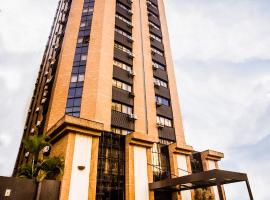
Hampton Park São Paulo Jardins

Hotel Atlante Plaza

Malocas Jungle Lodge

Esplanada Brasilia Hotel e Eventos

Premier Copacabana Hotel

Windsor Plaza Copacabana
Compare travel cost and expenses in specific cities in brazil 2024.
- Search Please fill out this field.
- Manage Your Subscription
- Give a Gift Subscription
- Sweepstakes
U.S. Travelers Won’t Need a Visa to Visit Brazil Just Yet — What to Know
The new visa requirements were most recently set to go into effect on April 10 of this year.
:max_bytes(150000):strip_icc():format(webp)/alison-fox-author-pic-15f25761041b477aaf424ceca6618580.jpg)
Pintai Suchachaisri/Getty Images
Brazil has postponed its travel visa requirements for American visitors until 2025 just as it was set to go into effect.
The new visa requirements for tourists from the United States, which has been postponed several times and was most recently set to go into effect on April 10 of this year, will now go into effect on April 10, 2025, according to the U.S. Embassy & Consulates in Brazil . A visa will also be required for tourists from Australia and Canada, Visit Rio shared with Travel + Leisure.
"We applaud the government's decision… to delay the visa," Joao H. Rodrigues, the U.S. representative for Visit Rio, said in a statement shared with T+L. "In the first two months of 2024, the arrival of Americans in Brazil was 11% higher than in the same period of the previous year. Without the visa requirement, we expect to maintain the growth in the arrival of foreign tourists from these international markets visiting Brazil and [especially] Rio de Janeiro."
When it does take effect, American travelers will need to obtain an electronic visa to enter the country. The e-visa will cost $80.90 per person and will be valid for 10 years, according to the U.S. Embassy & Consulates in Brazil.
The decision to bring back these visa requirements comes about five years after the country eliminated visa rules for U.S. travelers exploring for up to 90 days.
While Brazil is bringing back visa rules for American travelers next year, several countries are dropping them or making it easier for U.S. tourists to visit. Turkey, for example, dropped visa requirements earlier this year for travelers visiting from both America and Canada. And China made it easier for Americans to visit by eliminating the requirement for U.S. travelers to submit proof of a round-trip air ticket, proof of a hotel reservation, proof of their itinerary, or an invitation letter to apply for a tourist visa.
There are also several other countries where American travelers are not required to obtain a visa before going, including many European, Caribbean, Central American, and South American countries.

MyFunkyTravel
Backpacking | Budget Travel | Living Abroad
Brazil Cost of Travel – What is a typical Backpacker Budget?
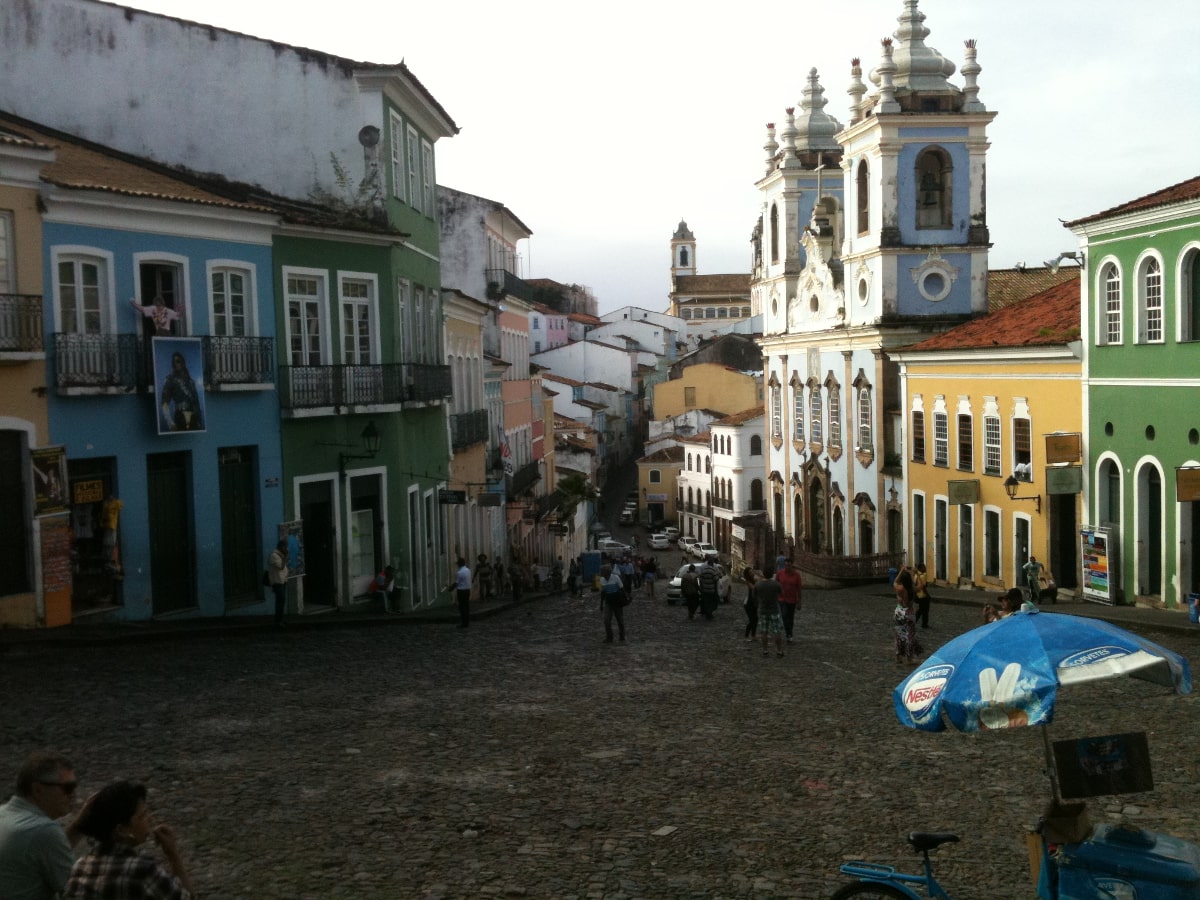
On this page you will find our estimated Brazil cost of travel. Read on for suggested shoestring and more comfortable backpacking budgets in South America’s largest country. We also have info on the local currency and typical prices.
Brazil Cost of Travel in 2023
Shoestring backpacker budget.
- US$40/day | 205 Brazilian Real
Anyone heading to Brazil and expecting to find a budget travel paradise will be sadly mistaken. As far as the cost of travel in South America goes, it is among the most expensive destinations, however the good news for visitors is that the Brazilian Real has lost value against most major currencies over the past decade making it a more affordable country than it once was. A shoestring backpacking budget for Brazil may fall in the region of $40 per day. That puts costs roughly in line with an average to low-end country in Europe.
Given Brazil’s size and the massive inequality that exists, this figure is only really a rough guide though. Spend an afternoon or evening in one of the posher areas of Rio or Sao Paulo and you could easily end up blowing this in a matter of hours. However by venturing into cheaper neighbourhoods not to mention cheaper parts of the country, prices tumble and your budget will stretch much further, especially if you have even a basic grasp of Portuguese.
Hostel beds and basic meals are relatively good value on the whole while there are lots of budget-friendly ways to enjoy a night out. What can really cost a lot in Brazil though is getting around the country. You’d need several months to get anywhere close to seeing most of the main regions and if you try to cram too much into a small space, you’ll be forking out a lot on internal flights (which aren’t cheap) and long-distance buses.
More Comfortable Brazil Backpacking Budget
- US$60/day | 310 Brazilian Real
Upping your daily budget to $60 when attempting to follow a Brazil backpacking route , will open up a lot more opportunities. If you have say a month or less in Brazil but wish to visit Rio and a few places on the coast as well as heading to the famous Iguazu falls and into the Amazon then this might be more realistic. The cost of internal flights can be quite high and you won’t have time to take the more budget-friendly but incredibly time-consuming, multi-day boat journey into the Amazon.
If time is less of an issue and you’re willing to opt for slower but cheaper transport, then this budget will allow you to pay for a few more organised trips such as guided excursions deeper into the Amazon. It will also allow you stay in nicer accommodation and enjoy more meals/drinks in better restaurants/bars in a country that caters for people on all kinds of different budgets.
This may also be a better budget around key festivals and holidays, particularly carnaval when prices do rise. We have a separate post on the best time to visit South America , which features info on the best and worst times to come to Brazil and how the time of year impacts on your likely expenditure.
You may also want to factor in the cost of travel insurance as it’s generally advisable to have pretty decent cover for backpacking around Brazil and South America as a whole.
How much do things cost in Brazil?
These prices may not seem high if you’re from an expensive region like North America or Western Europe, but they do represent a notable hike when compared to the cost of travel in Peru for example. We also have a separate article on the cheapest cities to live in Brazil which includes some more info on typical costs here while demonstrating which regions are cheaper and more expensive.
A smart idea for budget minded backpackers may be to take the chance to volunteer or work in exchange for benefits such as free food and a bed for the night. Brazil is the home of Worldpackers, a platform which allows travellers to search for hosts and take part in a work exchange. This can not only be a rewarding thing to do but it really can help cut down your travel costs and make your trip last longer.
Money – Brazilian Real
£1 = 6.39 BRL
€1 = 5.61 BRL
US$1 = 5.20 BRL
All exchange rates are correct as of March 2023. The Brazilian Real has been quite volatile in recent years so it’s worth checking again when you travel as it will have a big impact on the overall cost of your trip. By law, the only currency accepted is the Brazilian Real so you won’t be able to use Euros or Dollars here.
This Brazil backpacking budget was last updated in March 2023.
One thought on “ Brazil Cost of Travel – What is a typical Backpacker Budget? ”
One more excited thing for the Brazil Travelers that they can use ATMS, Credit cards which are accepted at the most city restaurants, including shops and hotels as well..
Leave a Reply Cancel reply
Your email address will not be published. Required fields are marked *
Save my name, email, and website in this browser for the next time I comment.

U.S. tourists will require a visa to travel to Brazil starting next year
S tarting April 10, 2025, citizens of the United States, Canada and Australia will face new requirements to enter Brazil, according to the latest regulations implemented by the Lula da Silva's government.
The change in visa policy, initially planned for 2024, aims to standardize entry processes into the country and affects visitors for tourism or cruise travel, who will now be required to apply for an eVisa (electronic permit).
The initiative is a shift from Jair Bolsonaro's migratory policies and a return to the traditional principles of the country, which were based on reciprocity and equal treatment. Bolsonaro had abolished visa requirements for citizens of these countries without receiving the same treatment in return, citing the goal of promoting tourism and business.
The Brazilian Ministry of Foreign Affairs emphasized that "Brazil does not unilaterally grant visa exemptions for visitors without reciprocity."
The new eVisa for Brazil will cost $80.90 and will be valid for 10 years, allowing multiple entries into the country while limiting stays to 90 days per year.
To obtain the eVisa, applicants must meet specific requirements, including:
- Providing a letter of intent specifying travel dates and purpose.
- Confirming accommodation and proof of residence.
- Presenting return tickets or a signed return declaration.
- Demonstrating income through bank statements from the last three months or the six most recent pay stubs, with a minimum average income of $2,000.
The company VFS Global will handle visa processing for Brazil, with the average processing time expected to be five business days. Brazilian authorities recommend initiating the process at least two months before the planned travel date to avoid inconvenience or delays.
The visa policy adjustment occurs amid a significant increase in international tourist arrivals in Brazil. In the first nine months of 2023 alone the country welcomed nearly 6 million foreign visitors, with U.S. citizens being the second-largest group, surpassed only by Argentine visitors.
Related Articles
- Interview: Camila Mendes and Rudy Mancuso Reflect on Brazilian-American Culture and Love
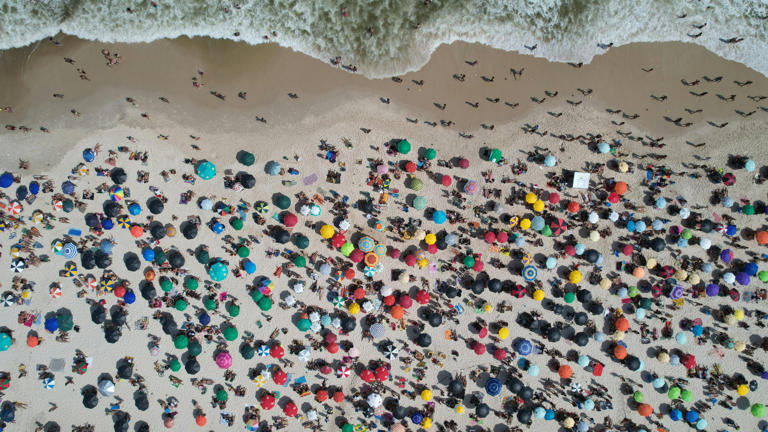
Eagles know opponent for 1st-ever NFL game in Brazil. How to get tickets, travel packages

The Eagles will have a marquee matchup when they open the 2024 season with the first-ever NFL game in Brazil.
That's because the NFL announced Wednesday that the Eagles will face the Green Bay Packers on Friday night, Sept. 6, at Sao Paulo's Corinthians Arena.
The Eagles were announced as the home team back in February. Sao Paulo is Brazil's largest city in population with about 12 million residents.
FUTURE THINKING: Why Fletcher Cox's Eagles retirement was all about budding stars Jalen Carter, Jordan Davis
TRAVEL TIPS: Philadelphia Eagles are opening the 2024 season in Brazil. Here are travel tips for fans
NFL DRAFT HUB: Latest NFL Draft mock drafts, news, live picks, grades and analysis.
A storied rivalry
The Packers, of course, are one of the NFL's most storied franchises. They finished 9-8 last season and made the playoffs as a wildcard team. They upset the No. 2 seeded Dallas Cowboys 48-32 in the first round of the playoffs before losing 24-21 to the San Francisco 49ers the following week.
Green Bay is led by quarterback Jordan Love, a first-round pick in 2020 who sat for three seasons behind Aaron Rodgers. But Rodgers was traded to the Jets last season, giving Love the chance to start.
The Eagles, meanwhile, are coming off an 11-6 season in which they lost five of their last six games, followed by a first-round loss to the Tampa Bay Buccaneers. They revamped a good part of their roster, signing running back Saquon Barkley and adding free agent edge rusher Bryce Huff, linebacker Devin White and safety Chauncey Gardner-Johnson among other moves.
The two teams have met 46 times with the Packers holding a 28-18 edge. They last met on Nov. 27, 2022, at Lincoln Financial Field. The Eagles won that game 40-33.
Why the Eagles-Packers are playing in Brazil
The Eagles last played overseas in 2018, when they beat the Jacksonville Jaguars 24-18 in London. Last season, the NFL issued a directive that it wants its teams hosting an overseas once every eight years.
That's because the NFL is planning to have as many as eight overseas games beginning in 2025. The NFL can do this after going to a 17-game schedule in 2021. That enabled AFC and NFC teams to alternate between having an extra home game each season.
Eagles chairman and CEO Jeffrey Lurie said at the NFL owners' meetings two weeks ago that the team was willing to give up one of its nine home games this season in order to play the first-ever game in Brazil.
"As part of the international priority, every team is going to host a neutral game," Lurie said. "We stepped up and thought, ‘Let’s do it in South America and Brazil, a really dynamic country ... We are big supporters in trying to make the NFL a more popular game around the world."
The Eagles will still have eight games at Lincoln Financial Field this season. The Eagles know all of their opponents , but the dates and times will be announced sometime in early May.
Eagles home games 2024
Dallas Cowboys
Washington Commanders
New York Giants
Carolina Panthers
Atlanta Falcons
Pittsburgh Steelers
Cleveland Browns
Green Bay Packers (Brazil)
Jacksonville Jaguars
Eagles away games 2024
Tampa Bay Buccaneers
New Orleans Saints
Cincinnati Bengals
Baltimore Ravens
Los Angeles Rams
Travel, ticket information
At last check, round-trip airline fares from Philadelphia to Sao Paulo will cost at least $1,000. The trip takes about 8½ hours of flight time. Sao Paulo is two hours ahead of Philadelphia.
Fans can check for ticket and travel packages through On Location, the official hospitality partner of the NFL, at onlocationexp.com/nfl/nfl-brazil-tickets. The packages aren't available yet, but they can include game tickets, deluxe hotel accommodation, game day transportation. Those fans placing a deposit can get access to the packages before they go on sale to the general public.
Contact Martin Frank at [email protected]. Follow on X @Mfranknfl.
Brazil again extends visa exemptions for U.S., Canada and Australia, this time until 2025
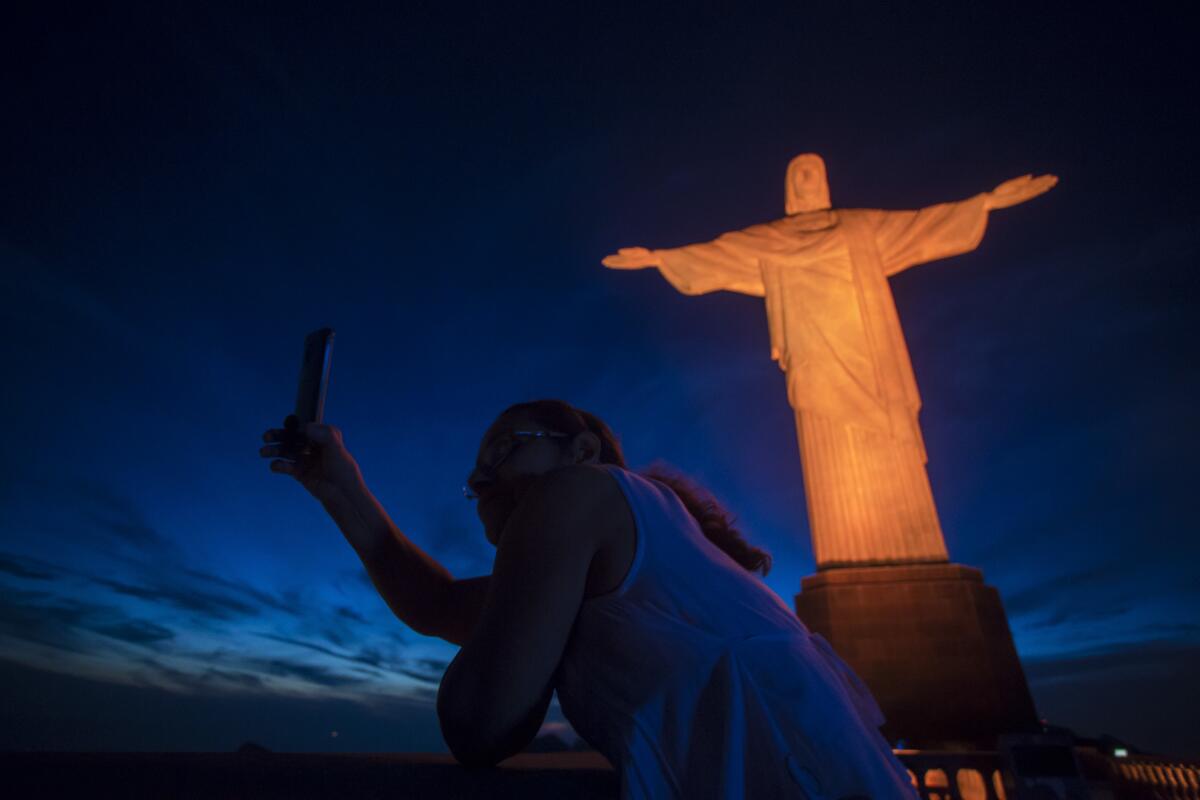
- Show more sharing options
- Copy Link URL Copied!
Brazil’s government extended exemptions to tourist visa requirements for citizens of the U.S., Australia and Canada until April 2025, extending a program aimed at boosting tourism that had been scheduled to end Wednesday.
The decision, issued by Brazilian presidency and the Ministry of Foreign Relations late Tuesday, marks the third time Brazil has delayed the visa requirement since President Luiz Inácio Lula da Silva took office in 2023.
His predecessor, Jair Bolsonaro, exempted the countries from visas as a means to boost tourism — although all three countries continued to demand visas from Brazilians.
That went against the South American country’s tradition of requiring visas from travelers based on the principle of reciprocity and equal treatment, and prompted Lula’s Foreign Ministry to say it would scrap the exemptions.
Travel & Experiences
Brazil dropping its visa requirement for U.S. citizens
U.S. citizens will no longer need a visa to get into Brazil, Brazil Tourism said Wednesday.
March 21, 2019
“Brazil does not grant unilateral exemption from visiting visas, without reciprocity, to other countries,” the ministry said at the time, while noting that the government stood ready to negotiate visa waiver agreements on a reciprocal basis. It did reach a deal with Japan to ease travel provisions.
The decision to maintain exemptions for the three countries is important for boosting tourism in Brazil, notably from the U.S., Brazil’s official tourism board Embratur said in a statement Tuesday.
Official data shows that nearly 670,000 Americans visited Brazil in 2023, making the U.S. the second-largest country of origin after neighboring Argentina.
The government initially postponed the reinstatement of the visa requirement in October, then again in January. At the time, the government said it was still finalizing a new visa system and wanted to avoid implementing it close to the high season, mainly during the New Year’s celebrations and Carnival festivities in February, which attract tens of thousands of tourists.
Sá Pessoa writes for the Associated Press.
More to Read

Judge dismisses states’ challenge to Biden program allowing entry to migrants from 4 countries
March 8, 2024

U.S. restricting visas for nearly 300 Guatemalan lawmakers for ‘undermining democracy’
Dec. 11, 2023
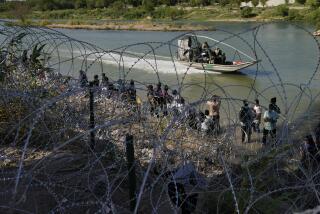
Illegal border crossings into U.S. drop in October after 3 months of increases
Nov. 14, 2023
Start your day right
Sign up for Essential California for news, features and recommendations from the L.A. Times and beyond in your inbox six days a week.
You may occasionally receive promotional content from the Los Angeles Times.
More From the Los Angeles Times

House Republicans send Mayorkas impeachment articles to the Senate, forcing trial
April 16, 2024

World & Nation
Venezuela closes its embassy in Ecuador to protest raid on Mexico’s embassy there

Unfazed by danger and power, Guatemalan cardinal keeps up fight for migrants and the poor
April 14, 2024
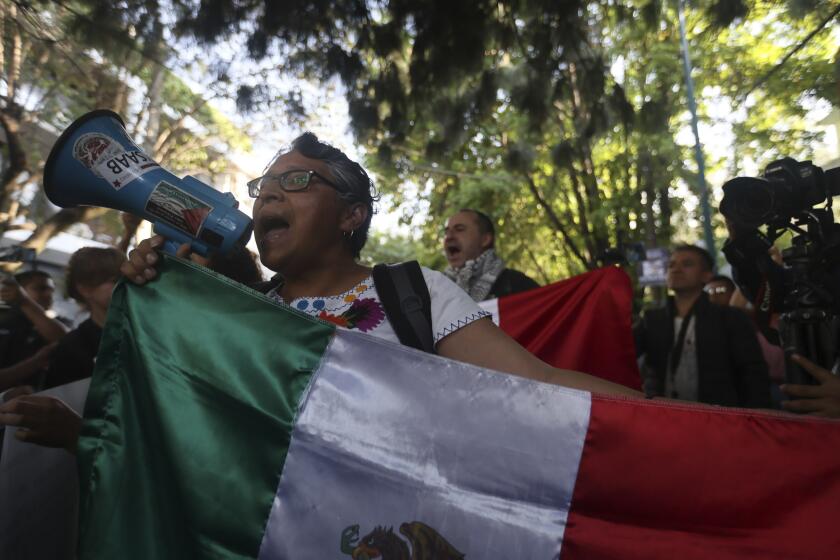
Mexico asks U.N. to expel Ecuador over its police raid on the Mexican embassy in Quito
April 11, 2024

IMAGES
VIDEO
COMMENTS
How much does it cost to travel to Brazil? You should plan to spend around $85 (R$435) per day on your vacation in Brazil. This is the average daily price based on the expenses of other visitors. Past travelers have spent, on average for one day: $20 (R$100) on meals; $12 (R$63) on local transportation; $83 (R$427) on hotels
Brazil Travel Costs. Accommodation - Brazil is a huge country (it's the 7th-largest in the world) and accommodation prices fluctuate from city to city and from season to season (with huge increases during Carnival). Prices in places like Rio de Janeiro and Salvador are pretty consistent, but for beachy destinations like Florianópolis ...
South America / Brazil /. Visitors to Brazil usually spend between $33 and $247 per day on average for one person and $66 to $495 for two people. While this is a wide range, the average daily cost averages $88 (R$435) per person. This average includes sightseeing, hotel, food, and local transportation expenses from other travelers.
Average Trip to Brazil Cost in 2024. A week in Brazil costs around $2,100 for two people: Average Accommodation Cost: $50 per night. Average Flight Cost: $550 per person. Food, Drink & Activities: $30 per person, per day. Transportation: $10 per day. Total Cost: $2,100. Of course, how much you are going to spend depends a lot on the time of ...
Budget trip to Brazil cost: $55-70/day. While the average cost of living in Brazil is relatively high when considering local salaries-that is especially true in São Paulo and Rio de Janeiro -the average cost of a trip to Brazil can be very low. Thanks to the 4-to-1 exchange rate, you can easily travel to Brazil on a shoestring budget.
The average cost for one person to visit Brazil for a week is $1,018-$2,243 ($145-$320 per day) Food, Travel, and Sightseeing: $29 to $59 per day for one person's daily expenses. Flights: $545 to $1,416 for economy. Lodging: $45 to $61 per night for one 2 or 3-star hotel room. or $57 to $69 per night for a 1-bed vacation rental.
Call us in Washington, D.C. at 1-888-407-4747 (toll-free in the United States and Canada) or 1-202-501-4444 (from all other countries) from 8:00 a.m. to 8:00 p.m., Eastern Standard Time, Monday through Friday (except U.S. federal holidays). See the State Department's travel website for the Worldwide Caution and Travel Advisories.
A one-way from the USA to Brazil can cost just $200-300, with São Paulo usually the most popular arrival point (it's the biggest city in Latin America after all). Other popular routes are to Manaus, Rio de Janeiro and Fortaleza.
Brazil travel costs. Unfortunately, Brazil is the 2nd most expensive country in South America, only losing to Chile. Prices here are considerably high in tourist capitals, such as Rio de Janeiro and São Paulo. Also, some guided tours to remote areas tend to be pricey too, such as the Amazon River Cruises. But overall, the four-to-one exchange ...
Remember these can and will vary depending on where you are! For example areas along the north of Brazil tend to be much cheaper than popular districts in the south such as Copacabana and Vila Madalena. Average Dorm Bed = £7-13. Private Single Room in a Hostel = £18-25. A Street Food Dish = £2-3.
Key Takeaways - Is Brazil Expensive To Travel. Takeaway 1. Brazil is pricier than its neighbors, but that doesn't mean it's not worth it. Sure, you're going to spend a bit more, about $84 per day on average. But, budget travel is possible, and with some careful planning, you can get by on around $20 a day. Just remember to factor in ...
Train: Train travel in Brazil is limited, and the cost can vary depending on the route. On average, a train journey can range from $10 to $50, depending on the distance and class of service. Subway: Major cities in Brazil, such as São Paulo and Rio de Janeiro, have efficient subway systems. The cost of a subway ride typically ranges from $0.50 ...
A mid-range hotel for two is around $60-80 per night and a daily budget of R$150-300 ($40-80) is recommended. Amazon and Brazil must-haves: a travel guidebook. mosquito head net - to avoid all the insects and mosquitos. mosquito repellent. sun hat. hypoallergenic and paraben-free sunscreen.
Detailed 14-day itinerary for traveling around Brazil, the largest country in South America. Tips on the best things to do, must-visit places, how to get around, when to visit, where to stay, and safety advice. Explore in two weeks Rio de Janeiro, Sao Paulo, Iguazu Falls, Florianopolis, Paraty, Ouro.
The cheapest ticket to Brazil from the United States found in the last 72 hours was $203 one-way, and $437 round-trip. The most popular route is New York John F Kennedy Intl to Sao Paulo Guarulhos Intl and the cheapest round-trip airline ticket found on this route in the last 72 hours was $618. Which airlines fly to Brazil? Delta, LATAM ...
per person. Jun 19 - Jun 26. Roundtrip flight included. Newark (EWR) to Rio de Janeiro (RIO) 8.8/10 Excellent! (670 reviews) great smaller hotel right on Ipanema beach. excellent food at restaurant, dining indoors or out. staff very friendly and helpful. would return for certain. ps: enjoyed the morning yoga sessions. Reviewed on Mar 9, 2024.
Local Weather. Brazil has tropical weather. The average annual temperature is 28°C in the North region and 20°C in the South of the country. Brazilian winter is between June and September, and in some cities in the South and Southeast of the country, temperatures drop below 0°C, with frost and snow.
The average daily price for historical tours to Brazil is a surprisingly affordable $188 per day, with the overall average cost of all tours being $2,011 (based on data from 10 tours). The cheapest tour is $297, and the most expensive tour is $5,449.
As a result, travel costs increase for this timeframe. Final Thoughts. Brazil is truly a year-round destination. While the general rule of thumb says the best time to visit is between December and March, there are certainly compelling reasons to stay at other times. Plan your trip to Brazil based on what you want to do and what works for your ...
How much does dinner cost in restaurants of different cuisines in Brazil? Brazil - Prices in restaurants If you like Italian cuisine, lunch will cost you 10 USD (54 BRL) in an Italian restaurant in Brazil. Dinner at a pizza place in Brazil costs money: 10.00 USD (52 BRL). Meal in a Mediterranean restaurant costs: 17 USD (86 BRL).
The average cost of travel insurance for a Brazil trip is $184, according to a Forbes Advisor analysis of plans purchased so far in 2022. The average trip cost for Brazil is $2,517.
Brazil has postponed its travel visa requirements for American visitors until 2025 just as it was set to go into effect. ... The e-visa will cost $80.90 per person and will be valid for 10 years ...
From $7/night. Budget private room. From $12/night. Christ the Redeemer Ticket (including train ride) $18. Travel insurance for backpacking Brazil. Varies according to length of trip, your age & some other factors - Get a quick quote from Heymondo in 60 seconds!
Silver. $42. $0 / $500. $25k / $100k. A travel insurance policy that also includes trip cancellation and trip interruption coverage will cost you a bit more. We found these plans cost from around ...
The new eVisa for Brazil will cost $80.90 and will be valid for 10 years, allowing multiple entries into the country while limiting stays to 90 days per year. To obtain the eVisa, applicants must ...
Eagles know opponent for 1st-ever NFL game in Brazil. How to get tickets, travel packages. ... At last check, round-trip airline fares from Philadelphia to Sao Paulo will cost at least $1,000. The ...
April 10, 2024 9:54 AM PT. RIO DE JANEIRO —. Brazil's government extended exemptions to tourist visa requirements for citizens of the U.S., Australia and Canada until April 2025, extending a ...